

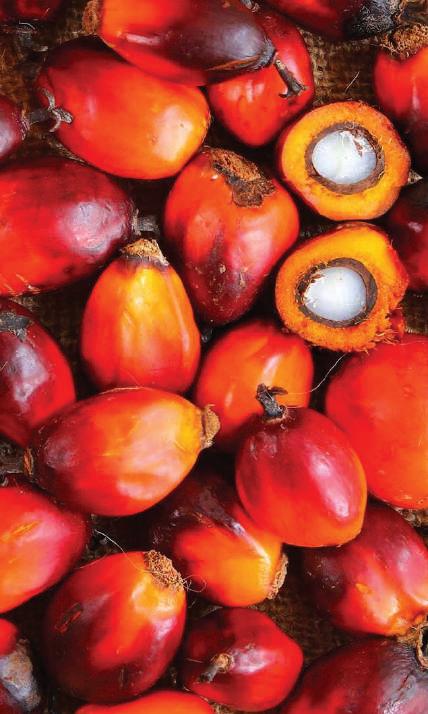





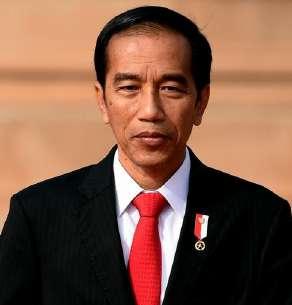

fireworks business information Indonesia Affiliated With : A Publication of : Vol.4 No.3 July - September 2023 JOKOWI: MALAYSIA, INDONESIA AKAN MENJADI PRODUSEN KELAPA SAWIT TERBESAR DI DUNIA JIKA MEREKA BEKERJA SAMA OCTOBER 2023 4-6 SANTIKA PREMIERE DYANDRA HOTEL & CONVENTION MEDAN - INDONESIA THE WORLD'S LARGEST PALM OIL EVENT AT THE HEART OF THE INDUSTRY! INDUSTRY NETWORKING LUNCH Technology Seminars International Conference highlights of the event www.palmoilexpo.com 9th INDONESIA INTERNATIONAL PALM OIL CONFERENCE 2023 Incorporating : MORE ABOUT INDONESIA’S LARGEST PALM OIL EVENT TURN TO PAGE 9 +62 21 5088 2917 info@fireworksid.com JOKOWI: MALAYSIA, INDONESIA WOULD BE WORLD’S LARGEST PALM OIL PRODUCERS IF THEY TEAM UP TANZANIA MENEMUKAN BIJI KELAPA SAWIT YANG MENGHASILKAN TINGGI YANG SIAP UNTUK MENINGKATKAN PRODUKSI TANZANIA DISCOVERS HIGH YIELDING PALM OIL SEEDS POISED TO BOOST PRODUCTION










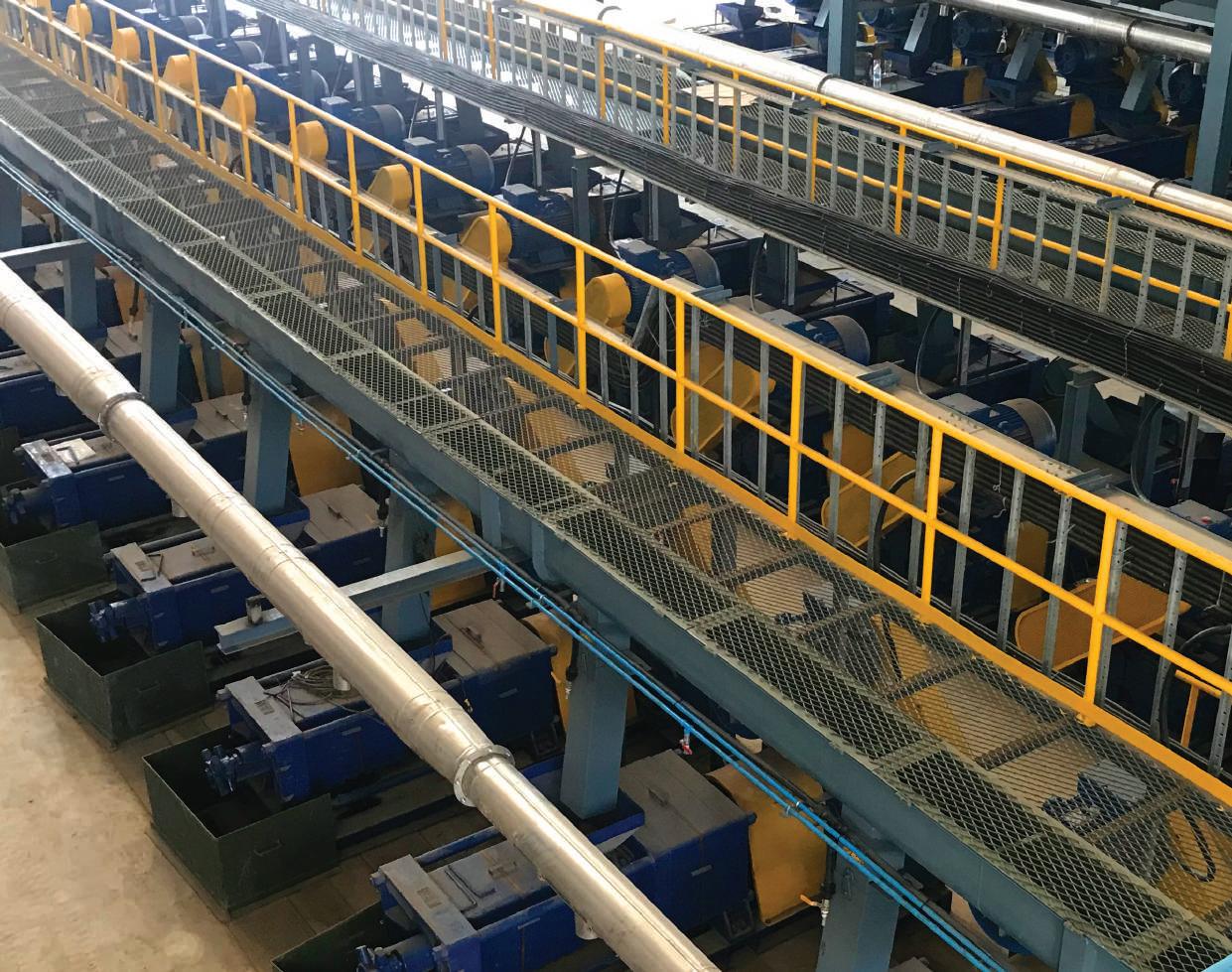

































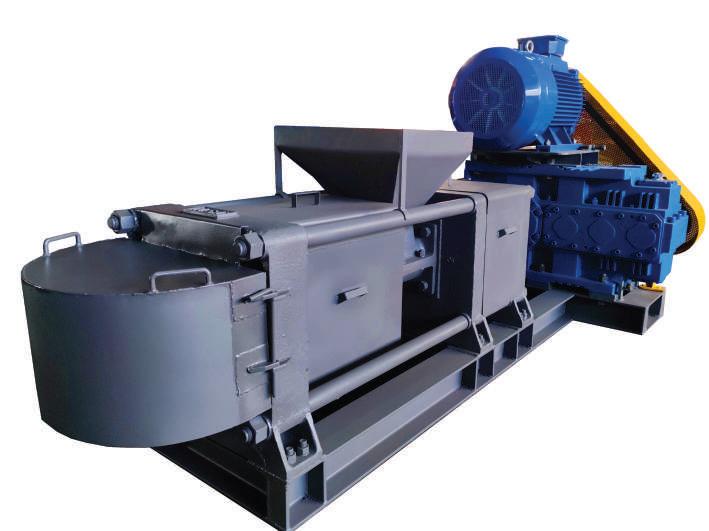



SPARE PART www.nst-intl.com O ce: Lot 2977, Batu 3 1/2, Jalan Salleh, 84000 Muar, Johor Darul Takzim Telephone: +06 952 2364/ +606 951 6298 Fax: +06 951 6549 Email: info@neesoonteknik.com.my NEE SOON TEKNIK SDN BHD (680264-U) Long Life Usage Economical Viable Compatible SINCE 1980 TM PALM KERNEL OIL EXPELLER LEADING INNOVATION | CRUSHING EXTRACTION PALM KERNEL OIL EXPELLER MANUFACTURER NST35PK
Dear Readers,
We proudly present our latest bilingual magazine, covering the palm oil industry, latest technology, and plantation news in Indonesia and other countries.
Indonesia plays a crucial role as a leading producer and exporter of palm oil globally. Indonesia President Jokowi had highlighted Malaysian and Indonesia would be world's largest palm oil producers if they team up! Could this be really happening? Join us this edition as we provide in-depth coverage of the palm oil industry in Indonesia, along with insights from other important countries. uncovering the challenges and opportunities faced by farmers and managers. Gain a deeper understanding of the role and contribution of plantation communities in the global palm oil industry
We sincerely thank our contributors, advertisers, and loyal readers for their support. Without you, this magazine would not be possible. Expect high-quality content and editorial standards from us.
We hope you will enjoy this edition of Palm Oil Today Indonesia
Happy reading!
Yours truly,
Susan Tricia
Managing Editor
Susan Tricia
Publications Manager
Amelia Lim amelia@fireworksid.com

Editorial Consultant
Kenny Yong
Content Editor

Kristina Yang
Media Executives
Paulina Shu
Veronica Anugrah
Graphic Designer
Felicia Zhang
Palm Oil Indonesia Toda y Digital Editions Available! Log on to: www.indopalmoil.com reworks business information Indonesia
Jakarta
+62 778 4173 552 indo@asiafbi.com c/o PT. Fireworks Indonesi a Fireworks Business Information (FBI) Indonesia
The content of Palm Oil Indonesia Today Magazine (and website) does not necessarily reflect the views of the editor or publishers and are the views of its contributors and advertisers. The digital edition may include hyperlinks to third-party content, advertising, or websites, provided for the sake of convenience and interest. The publishers accept no legal responsibility for loss arising from information in this publication and do not endorse any advertising or products available from external sources. Palm Oil Indonesia Today Magazine and its website does not warrant that the information in it will be error-free or will meet any particular criteria of performance or quality. Your use of the information contained in the Palm Oil Indonesia Today magazine and website is at your own risk. You assume full responsibility and risk of loss resulting from the use of this website or information in it. None of Palm Oil Indonesia Today, PT Fireworks Indonesia or its affiliates, or any partners, principals, stockholders or employees of any thereof will be liable for any special, indirect, incidental, consequential or punitive damages or any other damages whatsoever, whether in an action of contract, statute, tort (including, without limitation, negligence) or otherwise, relating to the use of this website or information contained in it. No part of this publication may be reproduced or stored in a retrieval system without the written consent of the publishers. All rights reserved. DISCLAIMER
Batam Publisher :
EDITOR’S NOTE



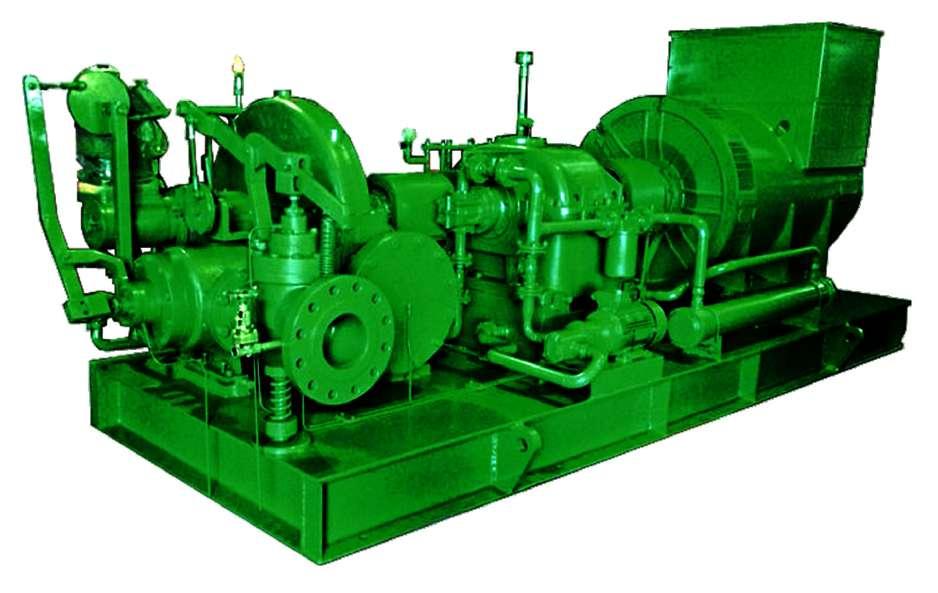
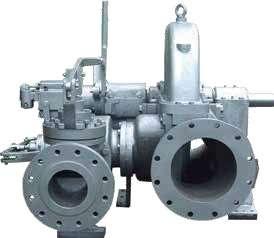




www.indopalmoil.com Designed in the USA with over 70 years of total steam turbine experience Jasa Aman Engineering SDN BHD Jasa Aman Sales and Services SDN BHD 39/39A, Jalan 23, Taman Bukit Kuchai, Batu 8, Jalan 47100 Puchong, Selangor Darul Ehsan, Malaysia Tel: +603-8075 6521, 8075 6750 Fax: +603-8070 2436, 8075 6485 Email: primeturbine@jasaaman.com Web: www.jasaaman.com 3500 7000 20 28M
CONTENTS
Biz Group Meminta Pbbm Untuk Meninjau Impor
Kelapa Sawit Bebas Pajak
Biz Group Asks Pbbm To Review Tax-Free Importation Of Palm Oil
Industri Minyak Kelapa Sawit Menyumbang Sebesar
US$5,29 Biliun Dalam Valuta Asing: GAPKI
Palm Oil Industry Contributes US$5.29 Billion In Forex: GAPKI
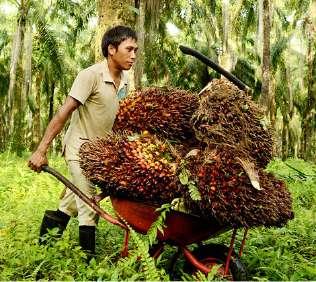
Malaysia Ingin Memiliki Pusat-Pusat Kelapa Sawit Di
Mesir, Arab Saudi: Wakil Perdana Menteri
Malaysia Wants Palm Oil Hubs In Egypt, Saudi Arabia:
Deputy PM
Jokowi: Malaysia, Indonesia Akan Menjadi Produsen
Kelapa Sawit Terbesar Di Dunia Jika Mereka Bekerja
Sama
Jokowi: Malaysia, Indonesia Would Be World’s Largest
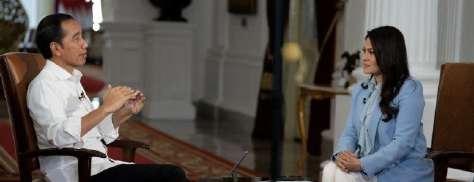
Palm Oil Producers If They Team Up
BERITA DUNIA / WORLD NEWS
Produsen Minyak Kelapa Sawit Di Kolombia
Mengincar Pasar SAF
Colombia’s Palm Oil Producers Eye SAF Market
Para Ahli Mencari Peningkatan Investasi Guna
Menghentikan Impor Kelapa Sawit
Experts Seek Increased Investment To Halt Oil Palm Importation
Dewan Minyak Sawit Menyambut Honduras sebagai
Anggota Ketiga
Palm Oil Council Welcomes Honduras as the Third Member
Misi Minyak Sawit Berakhir Dengan Catatan Positif
Saat Inggris Siap Mengakui Sertifikasi MSPO
Palm Oil Mission Concludes On High Note With UK Set To Recognise MSPO
COMMENTARY
Merugikan Petani Kelapa Sawit ?
Could an EU Law to Save the Rainforest Destroy Palm Oil Farmers?
Tanzania Menemukan Biji Kelapa Sawit Yang
Menghasilkan Tinggi Yang Siap Untuk
Meningkatkan Produksi
Tanzania Discovers High Yielding Palm Oil Seeds Poised To Boost Production
Seberapa Berkelanjutan Transisi Keberlanjutan di Sektor Kelapa Sawit Indonesia?
How Sustainable Are Sustainability Transitions in the Indonesian Palm Oil Sector?
Model Pengembangan Kelapa Sawit Yang
Berkelanjutan Untuk Papua
A Sustainable Palm Oil Development Model For Papua
Meskipun Terdapat Laporan tentang Tren
Positif, Industri Minyak Kelapa Sawit Masih Berjuang
Despite Reported Positive Trend, Palm Oil Industry Still Struggling
INOVASI DAN TEKNOLOGI / INNOVATION & TECHNOLOGY
Dabeeo telah menandatangani nota kesepahaman (MOU) untuk memantau perkebunan kelapa sawit di Malaysia
Dabeeo Signs MOU for Monitoring Palm Oil Plantation in Malaysia

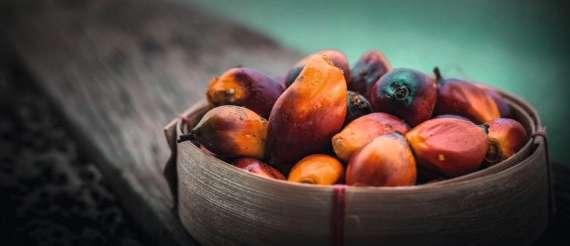
Pemerintah Dukung Teknologi Pengolahan Sawit, Pengembangan SDM
Govt Supporting Palm Processing Technology, HR Development
Palm Oil Today Indonesia July - September 2023 www.indopalmoil.com
// JULY - SEPTEMBER 2023
7
8
11
14
15
18
19 (BHS)
(ENG)
21 (BHS) : (ENG) :
(BHS)
(ENG)
36 (BHS)
(ENG)
(BHS)
(ENG)
(BHS)
(ENG)
48 (BHS)
(ENG)
50 (BHS)
(ENG)
6 (BHS) : (ENG) :
(BHS) : (ENG) :
(BHS) : (ENG) :
(BHS) : (ENG) :
(BHS) : (ENG) :
(BHS) : (ENG) :
(BHS) : (ENG) :
:
:
32
:
:
:
: 28
:
: 40
:
:
:
:
:
:
Apakah Hukum Uni Eropa Yang Bertujuan Untuk Menyelamatkan Hutan Hujan Tropika Berpotensi
BERITA KELANJUTAN / SUSTAINABILITY NEWS
BERITA PERKEBUNAN / PLANTATION NEWS
BERITA UTAMA / COVER STORY
BERITA REGIONAL / REGIONAL NEWS


























BIZ GROUP MEMINTA PBBM UNTUK
MENINJAU IMPOR KELAPA SAWIT BEBAS PAJAK
MANILA - Federasi Industri Filipina (FPI) telah mendesak Presiden Ferdinand R. Marcos Jr., yang juga menjabat sebagai Menteri Pertanian (DA), untuk memeriksa kembali kebijakan agensi terkait impor palm olein bebas pajak dan bea masuk yang digunakan sebagai bahan baku pakan ternak. Ketua FPI, Jesus Arranza, mengatakan kepada wartawan pada hari Selasa bahwa sebagian dari palm olein impor yang bebas pajak dan bea masuk diduga digunakan untuk tujuan lain selain pencampuran pakan ternak. “DA juga harus memeriksa kembali kebijakan ini yang memungkinkan impor palm olein tanpa PPN (pajak pertambahan nilai) dan bebas bea masuk karena jelas merugikan petani dan produsen kelapa sawit lokal,” katanya.
Arranza mengatakan bahwa DA harus memiliki sistem pemantauan yang efektif untuk mengetahui di mana impor palm olein ini sebenarnya digunakan. “Kita perlu adanya persyaratan pelaporan dan pemeriksaan untuk melihat apakah volume impor tersebut benar-benar digunakan untuk pakan ternak,” tambahnya.
Arranza mengatakan bahwa meskipun terjadi kasus African Swine Fever sebelumnya, impor palm olein untuk pencampuran pakan ternak tetap meningkat. Ia mengatakan bahwa Biro Industri Hewan, yang mengeluarkan sertifikasi untuk palm olein bebas pajak dan bea masuk untuk pakan ternak, juga harus bertanggung jawab atas pemantauan penggunaan produk impor ini. Arranza mengatakan bahwa sejak FPI mengangkat masalah ini, impor palm olein telah melambat sehingga menyebabkan kenaikan harga di tingkat lokal, bahkan lebih tinggi daripada harga minyak kelapa sawit.
“Masalah ini belum ditutup. Kita membuka masalah ini dan kita harus menyelesaikannya dengan adil, cepat, dan mengungkap semua tindakan ilegal terkait dengan masalah ini, jika tidak akan ada ruang bagi penafsiran lain, dan saya berterima kasih kepada Presiden karena memperhatikan permohonan saya,” tambahnya. (PNA)
BIZ GROUP ASKS PBBM TO REVIEW TAX-FREE IMPORTATION OF PALM OIL
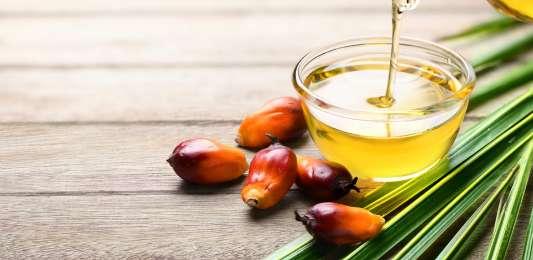
MANILA – The Federation of Philippine Industries (FPI) has urged President Ferdinand R. Marcos Jr., who is also the Department of Agriculture (DA) Secretary, to revisit the agency’s policy on tax- and duty-free importation of palm olein to be used as ingredient for animal feeds. FPI chair, Jesus Arranza told reporters Tuesday that some of the imported palm olein that are tax- and duty-free were allegedly used for other purposes other than compounding of animal feeds. “The DA should also revisit this policy of allowing zero VAT (value-added tax) and duty-free importations of palm olein as this is clearly hurting the local coconut and palm oil farmers and producers,” he said.
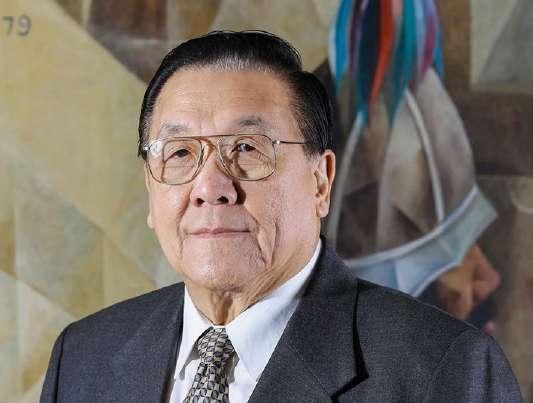
Arranza said the DA should have effective monitoring on where these palm olein imports were actually utilized. “We need a reportorial requirement and checking to see if the volume that they import were actually used for animal feeds,” he added. Arranza said that even with the past incidents of African swine fever, imports of palm olein for compounding of animal feeds still increased. He said the Bureau of Animal Industry, which issues the certification for tax- and duty-free palm olein for animal feeds, should also be responsible for monitoring where these
imported products were utilized. Arranza said that since FPI brought up this issue, imports of palm olein have slowed down which caused local prices to increase and even higher than the price of coconut oil.
“There is no closure yet on this issue. We opened it and we have to close it fairly, expeditiously, and ferret out all illicit acts attendant to this issue otherwise, there’ll be room for other interpretations, and I thank the President for giving importance to my plea,” he added. (PNA)
Palm Oil Today Indonesia July - September 2023 www.indopalmoil.com 6 REGIONAL NEWS
INDUSTRI MINYAK KELAPA SAWIT MENYUMBANG
SEBESAR US$5,29 BILIUN DALAM VALUTA ASING: GAPKI
PALM OIL INDUSTRY CONTRIBUTES
US$5.29 BILLION IN FOREX: GAPKI
akarta (ANTARA) - Ketua Gabungan Pengusaha Kelapa Sawit Indonesia (Gapki), Eddy Martono, telah mengungkapkan bahwa industri minyak kelapa sawit dalam negeri berkontribusi sebesar US$5,29 biliun dalam valuta asing dalam periode Januari hingga Februari tahun ini. “Ekspor minyak kelapa sawit dalam neraca perdagangan Indonesia memberikan kontribusi positif, hingga Februari tahun ini mencapai US$5,29 biliun. Hal ini menyebabkan neraca perdagangan kita menjadi positif,” katanya dalam acara pertemuan dengan media yang diadakan di Jakarta pada hari Jumat.
Nilai ekspor meningkat dari US$2,60 biliun pada bulan Januari menjadi US$2,68 biliun pada bulan Februari, tambahnya. Kenaikan ini terutama disebabkan oleh peningkatan ekspor minyak kelapa sawit olahan dari 2,121 juta ton pada bulan Januari menjadi 2,254 juta ton pada bulan Februari (harga produk olahan lebih tinggi daripada harga bahan baku CPO), kata Martono.
Menurut Gapki, konsumsi domestik secara bertahap meningkat menjadi 20,9 juta ton pada tahun 2022 dari 18,4 juta ton pada tahun 2021. Konsumsi pada tahun 2020 dan 2019 tercatat masing-masing sebesar 17,35 juta ton dan 16,7 juta ton. “Jika kita melihat produksi dalam empat tahun terakhir, trennya stagnan, sementara dari grafik konsumsi, sebenarnya meningkat,” jelasnya.
Dia mengatakan bahwa dia percaya peningkatan konsumsi akan terjadi pada tahun 2023 karena program B35 yang wajib, yang diharapkan dapat meningkatkan konsumsi hingga 3 juta ton. Untuk mencapai target ini, dia meminta pemerintah untuk segera melaksanakan program peremajaan kelapa sawit rakyat (PSR) tanpa penundaan. Gapki juga mencatat tren penurunan volume ekspor sebesar 2,91 juta ton pada bulan Februari 2023, sedangkan pada bulan Januari, jumlahnya tercatat sebesar 2,94 juta ton.
Jakarta (ANTARA) - Chairperson of the Indonesian Palm Oil Association (Gapki) Eddy Martono has revealed that the domestic palm oil industry contributed US$5.29 billion in foreign exchange in the period from January to February this year. “Palm oil exports in Indonesia’s trade balance have a positive contribution, as of February this year, it was still US$5.29 billion. This causes our trade balance to be positive,” he said at a media gathering held in Jakarta on Friday.
The value of exports increased from US$2.60 billion in January to US$2.68 billion in February, he added. This increase was mainly due to an increase in the exports of refined palm oil from 2.121 million tons in January to 2.254 million tons in February (the price of refined products was higher than the price of CPO raw materials), Martono said.
According to Gapki, domestic consumption gradually increased to 20.9 million tons in 2022 from 18.4 million tons in 2021. Consumption in 2020 and 2019 was recorded at 17.35 million tons and 16.7 million tons respectively. “If we look at production in the last four years, the trend has been stagnant, while from the consumption graph, it has actually increased,” he explained.
He said he believes that an increase in consumption will occur in 2023 because of the mandatory B35 program, which is expected to boost consumption by up to 3 million tons. To achieve this target, he asked the government to carry out the people’s oil palm rejuvenation (PSR) program without delay. Gapki also recorded a downward trend in export volume of 2.91 million tons in February 2023, while in January, it was recorded at 2.94 million tons.
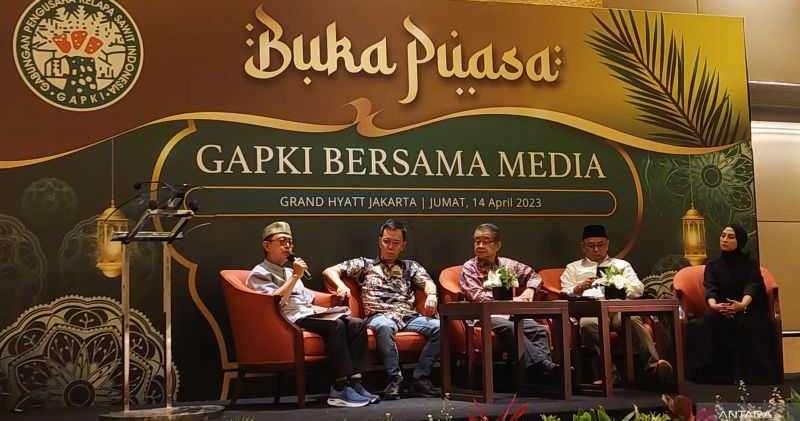
Palm Oil Today Indonesia July - September 2023 www.indopalmoil.com 7 REGIONAL NEWS
J
“Ini Menyebabkan Neraca Perdagangan Kita Menjadi Positif” “ This causes our trade balance to be positive”
MALAYSIA INGIN MEMILIKI PUSAT-PUSAT KELAPA SAWIT DI MESIR, ARAB SAUDI: WAKIL PERDANA MENTERI
UALA LUMPUR - Malaysia berencana untuk memperluas ekspor minyak kelapa sawit ke pasar Timur Tengah dan Afrika dengan menciptakan pusat-pusat ekspor baru di Mesir dan Arab Saudi, kata Wakil Perdana Menteri Malaysia, Fadillah Yusof, dalam wawancara dengan Nikkei Asia.
Fadillah, yang juga Menteri Komoditi dan Industri Perkebunan, mengatakan bahwa kementeriannya dan Dewan Minyak Kelapa Sawit Malaysia (MPOC) sedang berupaya untuk lebih memasuki pasar-pasar baru yang baru-baru ini melihat peningkatan re-ekspor minyak kelapa sawit. Malaysia adalah eksportir minyak kelapa sawit terbesar kedua di dunia setelah Indonesia. Beberapa negara importir utamanya termasuk India, Tiongkok, dan Filipina. “Ada beberapa strategi yang sedang kami perhatikan. Pertama, menjelajahi pasar-pasar baru dan pada saat yang sama memperkuat hubungan dengan semua negara yang dekat dengan kami dalam hal pasar,” kata wakil perdana menteri kepada Nikkei.
Fadillah berbicara dengan duta besar Mesir untuk Malaysia, yang mengatakan bahwa Mesir “bersemangat” untuk menjadi pusat regional distribusi minyak kelapa sawit. “Mereka ingin mengimpor lebih banyak dari kami dan mereka ingin Mesir menjadi pusat sehingga mereka dapat menyebarluaskannya ke Afrika.” “Hal yang sama berlaku untuk pasar-pasar di Timur Tengah. Arab Saudi, misalnya, juga tertarik [menjadi pusat] seperti Qatar.” Ekspor minyak kelapa sawit Malaysia ke Timur Tengah meningkat 32% tahun lalu dan ke Afrika Utara meningkat 51%.
Michalis Rokas, duta besar Uni Eropa untuk Malaysia, bertemu dengan Fadillah minggu lalu dan meyakinkannya bahwa regulasi tersebut tidak akan memengaruhi ekspor minyak kelapa sawit Malaysia dari lahan pertanian yang sudah ada atau membebani petani kecil yang memiliki sertifikasi Minyak Kelapa Sawit Berkelanjutan Malaysia dengan biaya tambahan.
Menurut laporan terbaru dari Financial Times, Britania Raya akan menghapus tarif impor untuk minyak kelapa sawit dari Malaysia setelah negara Eropa tersebut dan Kesepakatan Kemitraan Komprehensif dan Progresif untuk Trans-Pacific mencapai kesepakatan mengenai masuknya Britania Raya ke dalam blok tersebut.
Fadillah mengatakan kepada Nikkei bahwa pemerintah bertekad untuk memastikan perkebunan kelapa sawit yang berkelanjutan sambil mematuhi standar internasional yang bertujuan melindungi lingkungan. “Kami ingin cakupan hutan kami tidak kurang dari 50% di Malaysia,” katanya. “Cakupan hutan saat ini sekitar 54% di Malaysia. Untuk kelapa sawit, [luas lahan yang dialokasikan untuk perkebunan] adalah 6,5 juta hektar,” dengan hanya sekitar 5,8 juta hektar yang saat ini digunakan.
Malaysia dan Indonesia tahun lalu mengumumkan bahwa kedua negara akan mengirim delegasi ke Brussels untuk membahas dampak regulasi UE. Fadillah mengatakan bahwa keduanya akan fokus pada menjelaskan posisi mereka kepada UE mengenai mekanisme keberlanjutan dan program untuk membatasi deforestasi.
Dia menambahkan bahwa kedua negara membutuhkan UE untuk memahami bahwa petani kecil terdiri dari kelompok adat yang cukup besar yang melakukan rotasi tanaman dan membiarkan sebagian lahan tetap tidak digarap. Fadillah berharap UE akan mempertimbangkan untuk membebaskan petani kelapa sawit kecil dari regulasi tersebut.
Sementara itu, Fadillah mengatakan bahwa Malaysia berencana untuk memperkuat posisi pasar dengan fokus pada ekspor produk hilir dan produk bernilai tambah tinggi, termasuk oleokimia, lemak khusus, dan suplemen kesehatan.
Fadillah berpendapat bahwa Tiongkok juga tertarik untuk meningkatkan impor. “Minyak kelapa sawit adalah komoditas yang stabil yang akan memberikan kontribusi besar terhadap (GDP) Malaysia, meskipun dunia sedang menghadapi beberapa krisis dan gangguan pada rantai pasokan global,” kata Fadillah.

Komentar wakil perdana menteri mengenai diversifikasi pasar datang saat ekspor ke Eropa menunjukkan tren penurunan. Malaysia mengekspor 181.379 ton minyak kelapa sawit ke Uni Eropa, atau 8% dari total ekspor, pada periode JanuariFebruari tahun ini - penurunan 22% dibandingkan dengan tahun sebelumnya, menurut MPOC. Penurunan terbesar terjadi di Italia, yang mengurangi impornya sebesar 59%, diikuti oleh Swedia sebesar 37%.
Belakangan ini, Malaysia menuduh Uni Eropa merugikan para petani kecil dengan implementasi Peraturan Penghancuran Hutan milik blok tersebut. Undang-undang baru ini diperkirakan akan berlaku pada akhir tahun ini.
Fadillah adalah pemimpin senior Gabungan Parti Sarawak (GPS), sebuah partai politik yang berbasis di Borneo dan mewakili pengaruh yang semakin berkembang dari wilayah tersebut dalam pemerintahan federal. Setelah pemilihan umum pada bulan November tahun lalu, koalisi Pakatan Harapan yang dipimpin oleh Perdana Menteri Anwar Ibrahim membentuk blok pemerintahan yang mencakup GPS dan partai-partai lain yang berbasis di Borneo. “Saat ini, saya bisa mengatakan bahwa sejauh pemerintahan persatuan ini berkaitan, saya yakin bahwa [pemerintahan] akan terus stabil dan kuat,” kata Fadillah. “Setiap orang telah memberikan komitmennya untuk memastikan bahwa pemerintahan ini akan bertahan demi stabilitas dan fokus untuk mengembalikan Malaysia ke jalur yang benar.”
Palm Oil Today Indonesia July - September 2023 www.indopalmoil.com 8 REGIONAL NEWS
K



















OCTOBER 2023 4-6 SANTIKA PREMIERE DYANDRA HOTEL & CONVENTION MEDAN - INDONESIA Brought To You By : Endorsed and Suppor ted By : INDUSTRY NETWORKING LUNCH Technology Seminars International Conference Join the World's Largest Palm Oil Event at the Heart of the Industry! highlights of the event www.palmoilexpo.com +62 21 5088 2917 info@fireworksid.com 9 th INDONESIA INTERNATIONAL PALM OIL CONFERENCE 2023 Incorporating : 2023 13thEdition O cial Lunch Sponsor :
MALAYSIA WANTS PALM OIL HUBS IN EGYPT, SAUDI ARABIA: DEPUTY PM
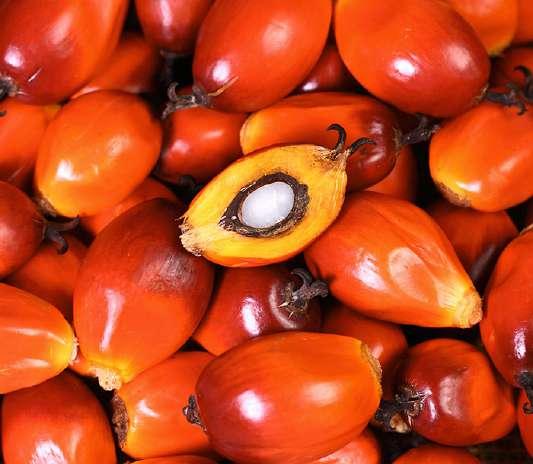
KUALA LUMPUR - Malaysia plans to expand palm oil exports into Middle East and African markets by creating new export hubs in Egypt and Saudi Arabia, Malaysian Deputy Prime Minister Fadillah Yusof said in an interview with Nikkei Asia.
Fadillah, who is also Minister of Commodities and Plantation Industries, said his ministry and the Malaysian Palm Oil Council (MPOC) are trying to push further into emerging markets, which have recently seen their re-exports of the oil rise. Malaysia is the world’s second-largest exporter of palm oil after Indonesia. Its top importers include India, China and the Philippines. “There are a few strategies that we are looking at. Firstly, exploring new markets and at the same time strengthening relations with all the countries that are close to us as far as markets are concerned,” the deputy prime minister told Nikkei.
Fadillah spoke with the Egyptian ambassador to Malaysia, who said that Egypt is “keen” on being the regional hub for palm oil distribution. “They want to import more from us and they want Egypt to be the hub so they can spread it out to Africa.” “The same goes for the markets in the Middle East. Saudi Arabia, for example, is also interested [in being a hub] like Qatar.” Malaysia’s palm oil exports to the Middle East increased 32% last year and those to North Africa 51%.
Fadillah thinks China is also interested in increasing imports. “Palm oil is a stable commodity that will contribute immensely to Malaysia’s (GDP), although the world is facing several crises and disruption to the global supply chain,” Fadillah said.
The deputy prime minister’s comment on market diversification comes as exports to Europe trend down. Malaysia exported 181,379 tons of palm oil to the European Union, or 8% of its total, in the January-February period this year -- a decline of 22% from a year earlier, according to the MPOC. The largest dip was in Italy, which decreased its imports 59%, followed by Sweden at 37%.
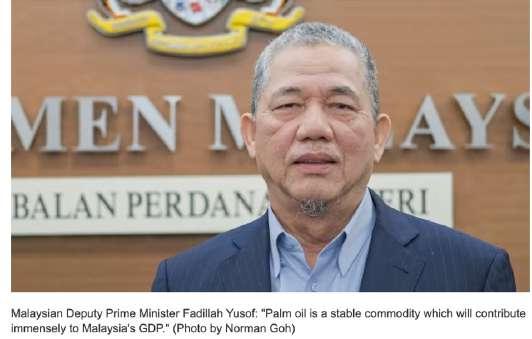
Malaysia recently accused the EU of hurting small growers with the implementation of the bloc’s Deforestation Regulation. The new law is expected to be in force by the end of the year.
Michalis Rokas, the EU ambassador to Malaysia, met Fadillah last week and reassured him that the regulation will not affect Malaysia’s palm oil exports from existing agricultural land or burden small growers holding Malaysia Sustainable Palm Oil certification with extra costs.
According to a recent Financial Times’ report, Britain would eliminate import tariffs on palm oil from Malaysia once the European nation and the Comprehensive and Progressive Agreement for Trans-Pacific Partnership reach an agreement on Britain’s entry to the bloc.
Fadillah told Nikkei that the government is committed to ensuring sustainable palm oil plantations while adhering to international standards aimed at protecting the environment. “We want our forest coverage to be not less than 50% in Malaysia,” he said. “Forest coverage stands at about 54% in Malaysia. For palm oil, [land allocated to plantations] is 6.5 million acres,” with only about 5.8 million acres currently being used.
Malaysia and Indonesia last year announced that the two countries will send a delegation to Brussels to discuss the impact of the EU regulation. Fadillah said that both will focus on explaining their position to the EU on sustainability mechanisms and programs for limiting deforestation.
He added that the two countries need the EU to understand that small farmers comprise sizable indigenous groups who rotate crops and let some land remain fallow. Fadillah hopes the EU will consider exempting small palm oil farmers from the regulation.
In the meantime, Fadillah said that Malaysia plans to strengthen its market position by focusing on exports of downstream and high-value-added products including oleochemicals, specialty fats and health supplements.
Fadillah is a senior leader of Gabungan Parti Sarawak (GPS), a political party based in Borneo and one that represents the growing influence of the region in the federal government. After the general election last November, the Pakatan Harapan coalition led by Prime Minister Anwar Ibrahim formed a ruling bloc that includes the GPS and other Borneo-based parties. “For now, I would say as far as the unity government is concerned, I am confident that [it] will continue to be stable and strong,” Fadilah said. “Everyone has given their commitment to making sure that this government will stay for the sake of stability and focus on putting Malaysia back on track.”
Palm Oil Today Indonesia July - September 2023 www.indopalmoil.com 10 REGIONAL NEWS
JOKOWI: MALAYSIA, INDONESIA AKAN MENJADI
PRODUSEN KELAPA SAWIT TERBESAR DI DUNIA JIKA
KUALA LUMPUR: Malaysia dan Indonesia - negara produsen kelapa sawit terbesar di dunia, seharusnya bekerja sama untuk melawan kebijakan perdagangan diskriminatif Uni Eropa (UE).
Presiden Indonesia, Joko Widodo, mengatakan Malaysia dan Indonesia akan menjadi produsen minyak kelapa sawit mentah (CPO) dan minyak kelapa sawit terbesar di dunia dengan bekerja sama, sehingga memudahkan penetrasi pasar dan pengelolaan harga.
Dalam wawancara dengan Media Prima menjelang Asean Summit di Jakarta bulan ini, Jokowi mengatakan bahwa tanpa kerja sama yang kuat, kedua negara akan menghadapi kesulitan dalam mengelola praktik diskriminatif UE. “Janganlah kita melihat Indonesia dan Malaysia bersaing satu sama lain, kita akan kalah bersama-sama. Kita perlu bersatu. “Saya yakin bahwa kita dapat menghadapi dan menyelesaikan masalah ini jika kita bersatu,” katanya.
Ia mengatakan bahwa Indonesia, yang menjadi ketua ASEAN tahun ini, akan terus menjadi penggagas upaya untuk meyakinkan UE bahwa praktik mereka sesuai dengan peraturan baru yang ketat mengenai deforestasi. “Sebanyak 16 juta orang bekerja di industri kelapa sawit di Indonesia. “Indonesia akan terus menjadi penggagas dalam hal ini, kami tidak ingin melihat adanya praktik diskriminatif,” katanya.
Pada bulan Desember tahun lalu, UE menyetujui undangundang baru yang mengharuskan perusahaan memastikan komoditas yang dijual di UE tidak berasal dari lahan yang ditebangi hutan. Komoditas seperti kayu, karet, daging sapi, kulit, kakao, kopi, minyak kelapa sawit, dan kedelai tidak akan masuk ke pasar UE kecuali terbukti “bebas deforestasi”
Indonesia dan Malaysia - yang menyumbang sekitar 80 persen produsen kelapa sawit dunia - telah mengajukan kasus terpisah ke Organisasi Perdagangan Dunia, dengan mengatakan bahwa langkah ini bersifat diskriminatif dan merupakan hambatan perdagangan.
Produsen kelapa sawit mengatakan bahwa mereka telah mengambil langkah untuk memenuhi persyaratan UE, termasuk meningkatkan standar sertifikasi minyak kelapa sawit berkelanjutan nasional dan meningkatkan perlindungan lingkungan dan standar keamanan pangan, tetapi blok tersebut terus memberlakukan pembatasan baru.
Data dari Malaysian Palm Oil Board menunjukkan bahwa pada tahun 2022, Malaysia mengekspor 15,72 juta metrik ton (MT) minyak kelapa sawit dengan total pendapatan sebesar RM135 biliun.
India, China, Turki, Belanda, Kenya, Filipina, Pakistan, Jepang, Arab Saudi, dan Iran adalah pembeli utama Malaysia, dengan total 9.809.271 MT produk kelapa sawit, yang merupakan 62,4 persen dari total ekspor minyak kelapa sawit negara tersebut. Negara-negara UE secara total hanya mengimpor 1.329.352 MT dari total ekspor minyak kelapa sawit negara tersebut.
Wakil Perdana Menteri dan Menteri Perkebunan, Fadillah Yusof, setelah bertemu dengan Menteri Koordinator Bidang Perekonomian Indonesia, Airlangga Hartarto di Jakarta awal tahun ini, mengatakan kedua negara telah sepakat untuk mengirim misi bersama guna menyampaikan fakta-fakta ilmiah, manfaat ekonomi, dan praktik terbaik industri kepada UE.
Perdana Menteri Datuk Seri Anwar Ibrahim, setelah pertemuan dengan Jokowi, mengatakan kedua negara telah sepakat untuk memperkuat kerjasama melalui Dewan Negaranegara Produsen Minyak Kelapa Sawit guna meningkatkan pasar minyak kelapa sawit dan melawan diskriminasi.
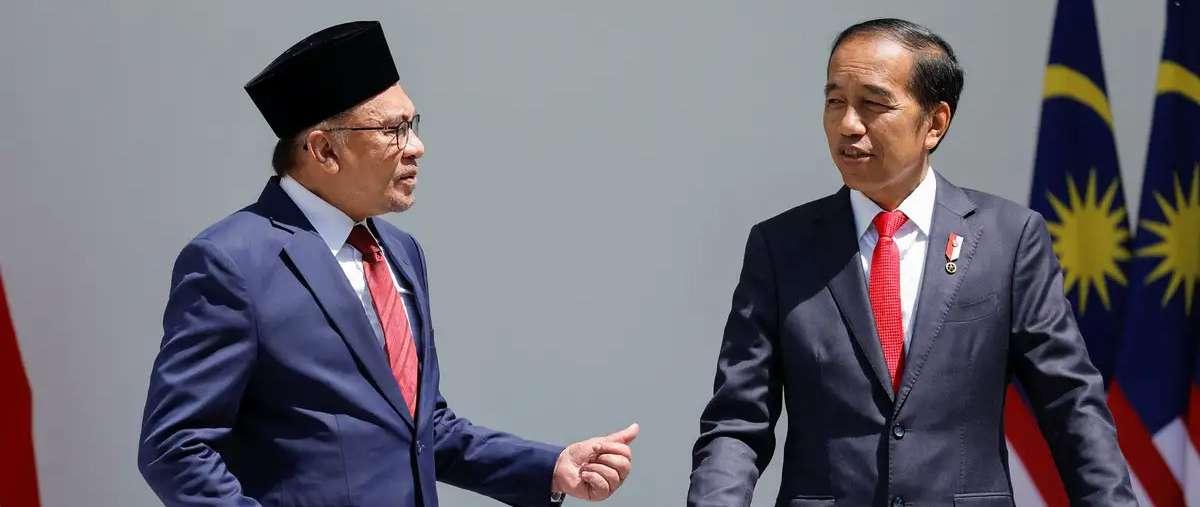
www.indopalmoil.com
11 REGIONAL NEWS
MEREKA BEKERJA SAMA
JOKOWI: MALAYSIA, INDONESIA WOULD BE WORLD’S LARGEST PALM OIL PRODUCERS IF THEY TEAM UP
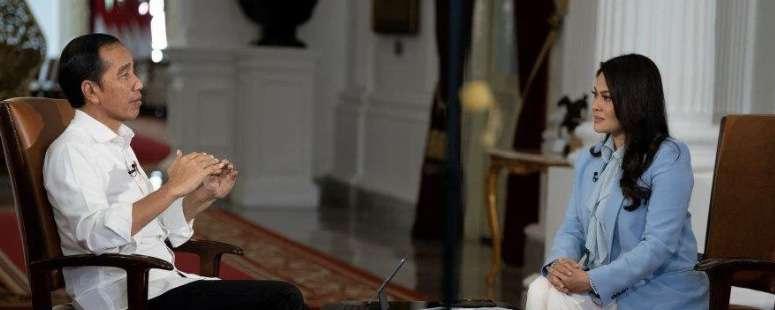
KUALA LUMPUR: Malaysia and Indonesia - the world’s largest palm oil-producing nations, should and work together to counter the European Union’s (EU) discriminatory trade policies.
Indonesian President Joko Widodo said Malaysia and Indonesia would become the world’s largest crude palm oil (CPO) and palm oil producers by working together, making market penetration and pricing management easier.
Speaking to Media Prima ahead of the Asean Summit in Jakarta this month, Jokowi said that without strong cooperation, both countries would face difficulties in managing the EU’s discriminatory practices. “Let’s not see Indonesia and Malaysia compete with each other, we will both lose in the end. We need to stand united. “I am confident that we can face and resolve this if we stand together,” he said.
He said Indonesia, which is the Asean chair this year, would continue to champion efforts to convince the EU that their practices conform to their rigorous new regulations on deforestation. “A total of 16 million people in Indonesia work in the oil palm industry. “Indonesia will continue to champion this, we don’t want to see any discriminatory practices,” he said.
Last December, the EU agreed on a new law that requires companies to ensure that commodities sold in the EU do not come from deforested land.
Commodities such as wood, rubber, beef, leather, cocoa, coffee, palm oil and soy would not make it to the EU market unless proven to be “deforestation-free”.
Indonesia and Malaysia which account for about 80 per cent of the world’s palm oil producers have launched separate cases with the World Trade Organisation, saying the measure is discriminatory and constitutes a trade barrier.
The palm oil producers say they have taken steps to meet EU requirements, including stepping up their national sustainable palm oil certification standards and improving environmental protection and food safety standards, but that the bloc keeps imposing new restrictions.
Data from the Malaysian Palm Oil Board showed that in 2022, Malaysia exported 15.72 million metric tons (MT) of palm oil for a total revenue of RM135 billion.
India, China, China, Turkiye, Netherlands, Kenya, Philippines, Pakistan, Japan, Saudi Arabia and Iran are Malaysia’s main importers, accumulating a total of 9,809,271MT of palm oil products, which constituted 62.4 percent of the country’s palm oil exports. EU countries in total imported only 1,329,352MT of the country’s palm oil exports.
Deputy Prime Minister and Plantations Minister Fadillah Yusof, after meeting with Indonesia Coordinating Economic Affairs Minister, Airlangga Hartarto in Jakarta earlier this year, said the two countries have agreed to send a joint mission to present scientific facts, economic benefits and industry best practices to the EU.
Prime Minister Datuk Seri Anwar Ibrahim, following his meeting with Jokowi, said both countries have agreed to strengthen cooperation through the Council of Palm Oil Producing Countries to increase the market for palm oil and fight discrimination.
Palm Oil Today Indonesia July - September 2023 www.indopalmoil.com 12 REGIONAL NEWS





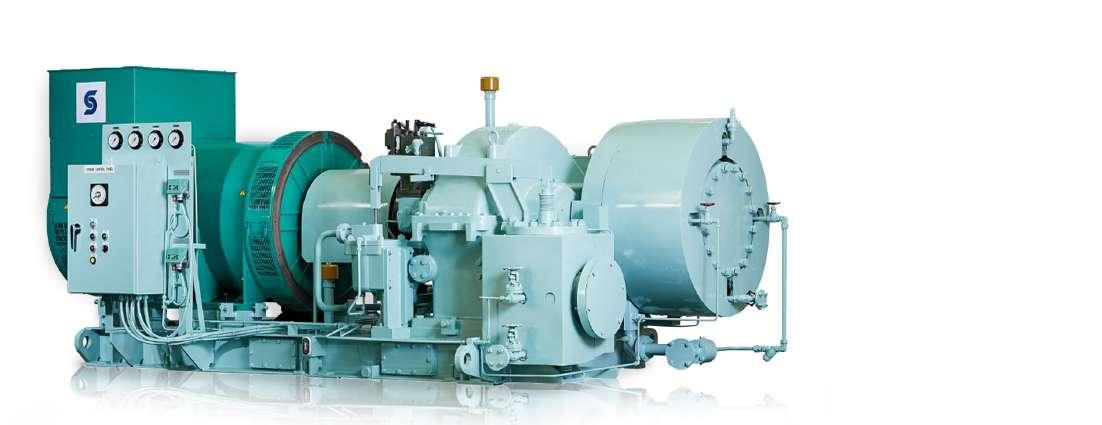

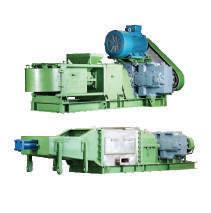


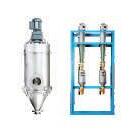



www.pmt-grp.com pmtenquiry@pmt-grp.com +603 5525 7555 Sandakan Shah Alam Bintulu Medan Banjarbaru Colombia Clean Energy for A Better Future Steam Turbine Condensing Palm Kernel Oil Machine Screw Press Palm Kernel Oil Filter KCP Dust Collecting System KCP Monitoring System Decanter Separator (High Speed) Purifier Bowl Disc Rotary Brush Strainer Automatic Desanding Cyclone System Circular Vibro Separator Specialised In Replacement Par ts Biomass Palleting Plant Biomass Fuel Drying System Auxiliaries Equipment
PRODUSEN MINYAK KELAPA SAWIT DI KOLOMBIA MENGINCAR PASAR SAF
egara ini, produsen minyak kelapa sawit terbesar di Amerika Latin, berencana untuk memproduksi sekitar 1,8 juta ton/tahun minyak kelapa sawit pada tahun 2023, tetapi produksi dapat ditingkatkan menjadi sekitar 2,5 juta ton/tahun pada tahun 2028 jika pasar SAF terbukti menguntungkan secara ekonomi bagi produsen minyak kelapa sawit, kata Nicolas Perez Marulanda kepada Argus di sela-sela Konferensi Internasional ke-IV tentang Bahan Bakar Hayati di Cali, Kolombia.
“Yang diekspor saat ini, yang merupakan 2% dari total produksi, dapat tersedia dalam jumlah besar untuk pasar SAF baru,” kata Marulanda. “Namun, SAF harus membuktikan bahwa itu lebih menarik [bagi minyak kelapa sawit] daripada ekspor. Berdasarkan apa yang kami dengar, harga bahan baku untuk SAF sangat menarik.” ISCC, sebuah sistem sertifikasi keberlanjutan global, sedang mengembangkan sebuah studi yang didanai oleh Bank Dunia untuk menunjukkan bahwa produksi minyak kelapa sawit di Kolombia dilakukan secara berkelanjutan, tanpa deforestasi. Studi ini, yang dijadwalkan selesai pada bulan Oktober, dapat membuka jalan bagi persetujuan penggunaan minyak kelapa sawit untuk SAF di bawah Organisasi Penerbangan Sipil Internasional (ICAO).
Minyak kelapa sawit Kolombia diproduksi dengan cara yang berkelanjutan dan menciptakan lebih dari 200.000 pekerjaan formal. Tidak mengandalkan tenaga kerja migran, tidak mempekerjakan anak-anak, dan tidak menyumbang pada deforestasi, tambahnya. Kolombia memiliki 600.000 hektar yang diperuntukkan bagi minyak kelapa sawit, tetapi dengan menanam tanaman yang menghasilkan lebih tinggi, meningkatkan pemupukan, dan menerapkan praktik pertanian yang lebih baik, produksi dapat ditingkatkan dalam luas yang sama. Kolombia dapat meningkatkan produktivitas dari 3,5 ton per hektar saat ini menjadi 5 ton per hektar dalam lima tahun. Perusahaan minyak negara Kolombia, Ecopetrol, dan produsen biodiesel Bio D telah menyatakan kemungkinan menggunakan sekam kelapa sawit sisa dari produksi minyak kelapa sawit - untuk memproduksi SAF.
Di Kolombia, sekitar 400.000 ton per tahun dari produksi minyak kelapa sawit sudah digunakan untuk memproduksi biodiesel, yang memiliki campuran 10% yang diwajibkan dalam solar konvensional. Sebanyak 430.000 ton per tahun minyak kelapa sawit diekspor dan sisanya digunakan untuk konsumsi domestik.
COLOMBIA’S PALM OIL PRODUCERS EYE SAF MARKET

The country — Latin America’s largest palm oil producer is set to produce around 1.8 mn t/yr of palm oil in 2023, but it could boost production to around 2.5 mn t/yr by 2028 if the SAF market proves to be economically profitable for palm oil producers, Nicolas Perez Marulanda told Argus on the sidelines of IV International Conference on Biofuels in Cali, Colombia.
“What is exported today, which is 2pc of the total production, that bulk could be available for the new SAF market,” Marulanda said. “But SAF needs to prove that it is more attractive [for palm oil] than exports. From what we have been hearing, the prices for the raw material for SAF are very interesting.” The ISCC, a global sustainability certification system, is developing a study financed by the World Bank to demonstrate Colombia’s palm oil production is done sustainably, without deforestation. The study, set to conclude in October, could pave the way for approval of palm oil’s use for SAF under the International Civil Aviation Organization (ICAO).
Colombia’s palm oil is produced in a sustainable manner generating more than 200,000 formal jobs. It does not rely on a migrant labor force, employ children or contribute to deforestation, he added. Colombia has 600,000 hectares dedicated to palm oil but planting higher yielding crops, improving fertilization and implementing better agricultural practices could increase production in the same footprint. Colombia could boost productivity from 3.5t/per hectare today to 5t/ hectares in five years. Colombia’s state-controlled oil company Ecopetrol and biodiesel refiner Bio D have said they would likely use palm husks a residual of palm oil production to produce SAF.
In Colombia, about 400,000t/yr of palm oil output already goes to produce biodiesel, which has a mandated 10pc blend into conventional diesel. Some 430,000t/yr of palm oil is exported and the balance covers domestic consumption.
Palm Oil Today Indonesia July - September 2023 www.indopalmoil.com 14 WORLD NEWS
N
PARA AHLI MENCARI
PENINGKATAN INVESTASI GUNA
MENGHENTIKAN IMPOR KELAPA SAWIT
Para ahli pertanian telah menyerukan peningkatan investasi dalam produksi kelapa sawit untuk meningkatkan pertumbuhan dan perkembangan sektor tersebut. Mereka menyatakan hal ini dalam wawancara terpisah dengan Badan Berita Nigeria pada hari Selasa di Lagos.
Para ahli tersebut berbicara sebagai tanggapan terhadap laporan yang diterbitkan minggu lalu yang menyebutkan bahwa Nigeria mengimpor minyak kelapa sawit sebesar N299,6 miliar dari tahun 2017 hingga 2022. Publikasi tersebut mengandalkan laporan triwulanan oleh Biro Statistik Nasional yang menunjukkan bahwa ‘Minyak Mentah Sawit’ sering menjadi salah satu dari lima produk pertanian impor teratas yang masuk ke negara tersebut.
Prof. Adetunji Iyiola, seorang rekan di Layanan Penelitian dan Penghubung Ekstensi Pertanian Nasional, menggambarkan impor kelapa sawit oleh sebuah negara agraris seperti Nigeria sebagai sebuah anomali. Iyiola mengatakan para ahli perlu mengembangkan strategi baru untuk meningkatkan produksi kelapa sawit lokal di negara ini. “Strategi untuk mendorong sektor kelapa sawit adalah dengan kembali ke dasar-dasarnya.”
“Yang kita butuhkan adalah membiasakan diri untuk berinvestasi dalam produksi kelapa sawit di Nigeria. Ini adalah bisnis yang sangat menguntungkan.” “Kita juga harus berinvestasi lebih banyak dalam pengolahan kelapa sawit secara lokal.” “Dalam jangka waktu empat hingga lima tahun, investasi dalam kelapa sawit akan mulai menghasilkan keuntungan; oleh karena itu, kita perlu kembali ke dasar-dasar.” “Kita memiliki orang-orang kaya yang seharusnya berinvestasi di sektor ini, kita harus melihat penanaman kelapa sawit sebagai investasi jangka panjang dan harus melibatkan seluruh rantai nilai mulai dari produksi, pengolahan, hingga ekspor.” “Kita seharusnya tidak mengimpor minyak kelapa sawit sebagai sebuah negara, kita memiliki tanah yang sangat subur untuk produksi kelapa sawit mulai dari Benin hingga Osun hingga Ondo kita memiliki kelapa sawit yang baik yang dapat tumbuh dengan baik,” kata Iyiola kepada NAN.
Menurutnya, kelapa sawit dapat ditanam dan dipertahankan di semua negara bagian di wilayah Selatan Nigeria. Ia mendesak pemerintah untuk berinvestasi dalam ekstensi pertanian terutama dalam budidaya kelapa sawit. “Para petani perlu dilengkapi dengan informasi tentang budidaya kelapa sawit untuk meningkatkan produksi lokal.”
“Pemerintah juga harus mendukung pengolahan kelapa sawit lokal, seluruh rantai nilai harus ditingkatkan agar dana yang kita buang untuk impor minyak kelapa sawit dapat diinvestasikan kembali ke dalam ekonomi,” katanya.
Di pihak lain, Akin Alabi, salah satu pendiri Corporate Farmers International, mengatakan upaya ekstra harus dilakukan dalam produksi, pengolahan, dan pemasaran hasil produksi kelapa sawit. Alabi mengatakan bahwa negara ini perlu mengatasi masalah seputar produksi dan pengolahan komoditas tersebut untuk mengembangkan sektor ini. “Dalam hal produksi, kita tidak memiliki bibit unggul. Lembaga penelitian kita perlu bekerja keras dalam pengembangan bibit unggul di seluruh rantai nilai kelapa sawit.” “Bibit yang kita miliki saat ini bukanlah bibit standar yang kita butuhkan untuk meningkatkan produksi sektor ini secara lokal dibandingkan dengan negara lain seperti Malaysia dan negara-negara Asia lainnya.” “Selain itu, kita memiliki masalah lain dalam hal produksi kita tidak memiliki cukup produsen kelapa sawit.” “Kita memiliki kelompok produsen kelapa sawit di wilayah Tenggara, Selatan, dan Barat daya.” “Kita membutuhkan produsen kelapa sawit dalam skala besar untuk menghasilkan minyak kelapa sawit karena tanah kita cukup subur untuk hasil produksi ini,” katanya.
Ia mencatat bahwa Nigeria belum sepenuhnya mengoptimalkan seluruh rantai nilai produksi kelapa sawit. “Masalah lainnya adalah pengolahan kelapa sawit lokal. Sebagai sebuah negara, kita belum sepenuhnya mengoptimalkan seluruh rantai nilai produksi kelapa sawit.” “Kita masih mengandalkan metode produksi lokal untuk konsumsi domestik kita.” “Kita harus melampaui produksi kelapa sawit untuk konsumsi dan beralih ke penggunaan industri.”
“Jika kita dapat melakukan ini dengan benar, maka kita akan dapat mengembangkan penciptaan kekayaan di seluruh rantai nilai kelapa sawit,” ujar Alabi.

www.indopalmoil.com 15 WORLD NEWS
EXPERTS SEEK INCREASED INVESTMENT TO HALT OIL PALM IMPORTATION
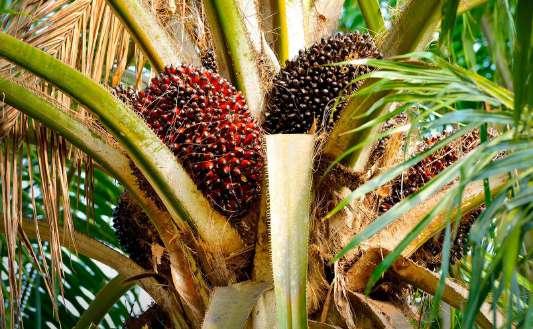
Agriculture experts have called for more investment in oil palm production to enhance the growth and development of the sector. They said this in separate interviews with the News Agency of Nigeria on Tuesday in Lagos.

They experts spoke against the backdrop of report published last week that Nigeria imported N299.6 billion of palm oil from 2017 to 2022. The publication which relied on quarterly reports by the National Bureau of Statistics indicates that ‘Palm Crude Oil’ is often among the top five imported agricultural products into the country.
Prof. Adetunji Iyiola, a fellow at the National Agriculture and Extension Research Liaison Service, described the importation of oil palm by an agrarian country like Nigeria, as an anomaly. Iyiola said experts need to develop new strategies to boost local oil palm production in the country. “The strategy to boost the oil palm sector is to go back to the basics.” “What we need is to make a new habit of investing in oil palm production in Nigeria. It is a very lucrative business. “We should also invest more in the local processing of oil palm. “Within the space of four to five years, an investment in oil palm would have begun yielding returns; therefore, we need to go back to the basics. “We have money bags that should invest in the sector, we should see cultivating oil palm as a long-term investment and should include the entire value chain from production, to processing and export. “We should not import palm oil as a nation, we have a very fertile land for oil palm production from Benin to Osun to Ondo we have good palm that can grow well,” Iyiola told NAN.
According to him, oil palm can be grown and sustained in all the South-South states of the country. He called on the government to invest in agriculture extension especially in oil palm cultivation. “The farmers need to be equipped with information on oil cultivation to boost local production.”
“Government should also aid the local processing of oil palm, the entire value chain should be boosted for the funds we waste in palm oil importation to be invested back into the economy,’’ he said.
On his part, Mr Akin Alabi, co-founder Corporate Farmers International, said extra effort must be done in the production, processing and marketing of the produce. Alabi said that the country needs to tackle the issues around production and processing of the commodity to grow the sector. “In terms of production, we do not have premium seeds. Our research institutes need to work hard in the development of premium seeds around the entire oil palm value chain. “The seeds we have currently are not the standard seeds we require to boost the sector’s production locally compared to other countries such as Malaysia and other Asian countries. “Also, we have another problem in terms of production we do not have enough oil palm producers. “We have clusters of oil palm producers in the South-East, South-South and South-West. “We need oil palm producers in large scale to produce palm oil because our land is fertile enough for the produce,” he said.
He noted that Nigeria was yet to tap into the entire value chain of oil palm production. “Another issue is the local processing of oil palm. As a country, we have not properly tapped into the entire value chain of oil palm production. “We still rely on local production methods for our domestic consumption. “We must go beyond oil palm production for consumption to industrial use. “When we can get this right then we will be able to expand wealth creation across the oil palm value chain,” Alabi said.
Palm Oil Today Indonesia July - September 2023 www.indopalmoil.com 16 WORLD NEWS
15.00 - 16.00
Tackling EU's Negative Stance Towards the Palm
Dewan Minyak Sawit Indonesia (DMSI)


Indonesian Palm Oil Board (IPOB)
Indonesia's Aggressive Push in Biodiesel, What It Means for the Palm Oil Industry?
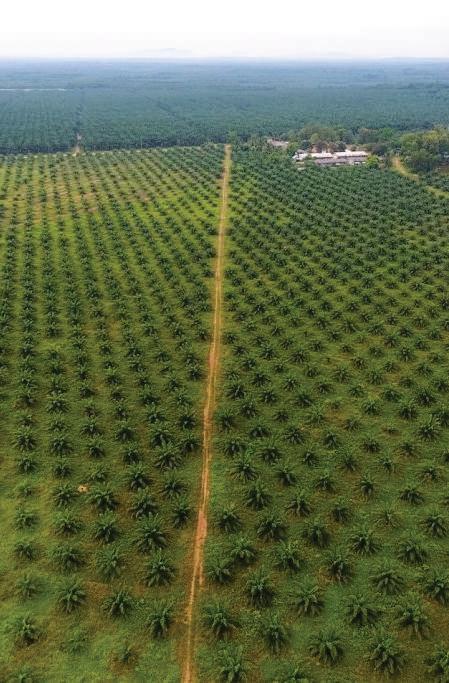
Promotion

Communication
KEMENTERIAN PERTANIAN Direktorat Jenderal Perkebunan Director General of Estate Crops
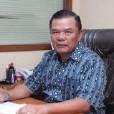

Asosisasi Produsen Biofuel Indonesia (APROBI)

Indonesia Biofuel Producer Association
* Please note this is a tentative agenda and is subjected to changes*

9 th INDONESIA INTERNATIONAL PALM OIL CONFERENCE 2023 Incorporating : 2023 13thEdition
DAY 1 : 4 OCTOBER 2023 www.palmoilexpo.com
Collaboration for a
Oil
OCTOBER 2023 4-6 SANTIKA PREMIERE DYANDRA HOTEL & CONVENTION, MEDAN - INDONESIA Opening Ceremony Opening Remarks TBA Overview of Indonesia's Palm Oil Industry and What the Future Holds? Government
“Innovations and
Sustainable Palm
Future”
Oil Industry
13.00 - 14.00 10.00 - 10.40
14.00 - 15.00
Mr. Andi Nur Alam Syah, STP, MT Direktur Jenderal Perkebunan Director General of Estate Crops
Panel Discussion: Addressing Challenges in Indonesia's Palm Oil Industry on Expansion 16.00 - 17.00 TBA TBA
Mr. Sahat M. Sinaga Ketua Umum Chairman
TIME TOPIC SPEAKER ORGANIZATION
Mr. Catra De Thouars Wakil Ketua Umum Bidang Promosi dan Komunikasi Deputy Chairman for
and
Dewan Minyak Sawit Menyambut Honduras sebagai Anggota Ketiga
Palm Oil Council Welcomes Honduras as the Third Member

Kuala Lumpur - Dewan Negara-Negara Penghasil Minyak Sawit (CPOPC) menyambut keanggotaan negara ketiga yang mewakili wilayah Amerika Selatan, yaitu Honduras. “Ini adalah sejarah, jumlah anggota CPOPC telah meningkat,” kata Menteri Koordinator Bidang Perekonomian Indonesia, Airlangga Hartarto, dalam konferensi pers setelah Pertemuan Menteri CPOPC ke-11 di Kuala Lumpur, Malaysia, pada hari Rabu, 17 Mei 2023. Di masa depan, tambahnya, Papua Nugini akan menjadi anggota baru.
Sebelumnya, anggota negara CPOPC yang dipimpin oleh Malaysia tahun ini hanya Indonesia dan Malaysia. Namun, perwakilan dari negara-negara lain sering menghadiri banyak pertemuan sebelumnya, seperti pertemuan terakhir di Kuala Lumpur pada 17 Mei yang dihadiri oleh perwakilan dari Ghana, Papua Nugini, dan Nigeria, baik sebagai pengamat maupun tamu.
Keanggotaan Honduras sebagai anggota baru akan lebih memperkuat kerja sama di antara negara-negara penghasil minyak sawit. “Pengembangan ini akan membuka jalan bagi negara-negara penghasil minyak sawit lainnya untuk bergabung dengan CPOPC dan memanfaatkannya sebagai platform strategis dalam meningkatkan upaya untuk mencapai tujuan keberlanjutan,” seperti dikutip dari pernyataan tertulis CPOPC. Dalam pertemuan tersebut, Menteri Airlangga Hartarto, Menteri Perkebunan dan Komoditas Malaysia yang juga
Wakil Perdana Menteri Malaysia, dan Menteri Pertanian dan Peternakan Honduras menekankan pentingnya memperkuat peran strategis CPOPC dalam menyediakan kolaborasi dan upaya yang terpadu di antara para produsen minyak sawit.
Airlangga Hartarto berbagi optimisme bahwa produksi, permintaan, dan harga minyak sawit akan tumbuh tahun ini meskipun ada tantangan dalam industri ini. “Kami pasti melihat tantangan terhadap produk CPOPC di Eropa, India, dan banyak negara lain,” katanya.
Pada akhir tahun lalu, Uni Eropa mengeluarkan Regulasi
Produk Bebas Deforestasi yang sangat berdampak pada industri minyak sawit. Mereka juga merumuskan aturan-aturan yang akan mempengaruhi industri minyak sawit, seperti regulasi tentang tenaga kerja paksa, direktif klaim hijau, dan direktif energi terbarukan ketiga. Oleh karena itu, Indonesia dan Malaysia berencana mengunjungi markas besar Uni Eropa di Brussels pada 30-31 Mei 2023.
Kuala Lumpur - The Council of Palm Oil Producing Countries (CPOPC) welcomed the third country member that represents the South American region, Honduras. “This is historic, [the number of] CPOPC members has increased,” said the Indonesian Coordinating Minister for the Economy, Airlangga Hartarto, in a press conference after the 11th CPOPC Ministerial Meeting in Kuala Lumpur, Malaysia, on Wednesday, May 17, 2023. In the near future, he added, Papua New Guinea will be a new member.
Previously, the country members of the CPOPC that is chaired by Malaysia this year were only Indonesia and Malaysia. But representatives from other countries often attended many previous meetings, such as the recent meeting in Kuala Lumpur on May 17, which was attended by representatives from Ghana, Papua New Guinea, and Nigeria, both as observers and guests.
Honduras enrollment as a new member will further strengthen the cooperation among palm oil-producing countries. “This development will pave the way for other palm oil producing countries to join CPOPC and leverage it as a strategic platform in enhancing efforts to accelerate the attainment of sustainability goals,” as quoted from CPOP’s written statement. In the meeting, Minister Airlangga Hartarto, Malaysia’s Minister of Plantation and Commodities - who is also the Deputy PM of Malaysia, and Honduras Minister of Agriculture and Livestock underlined the importance of strengthening the strategic roles of CPOPC in providing collaboration and consolidated efforts among the palm oil producers.
Airlagga Hartarto shared his optimism that the production, demand, and prices of palm oil will grow this year despite the challenges in the industry. “We definitely see challenges against CPOPC products in Europe, India, and many other countries,” he said.
At the end of last year, The European Union issued the Deforestation-Free Products Regulation that highly impacted the palm oil industry. They are also formulating rules that will affect the palm oil industry, such as the regulation on forced labor, the green claim directive, and the third renewable energy directive. Therefore, Indonesia and Malaysia plan to make a visit to the EU headquarters in Brussels on May 3031, 2023.
www.indopalmoil.com 18 WORLD NEWS
Misi minyak sawit berakhir dengan catatan positif saat
Inggris siap mengakui sertifikasi MSPO.
LONDON - Kunjungan resmi Wakil Perdana Menteri Datuk

Seri Fadillah Yusof ke United Kingdom berakhir dengan berita baik, karena para pengambil keputusan di sana telah berkomitmen untuk mengakui sertifikasi Minyak Sawit Berkelanjutan Malaysia (MSPO) dalam panduan kewajiban dilakukan kewaspadaan yang wajar untuk memastikan bahwa komoditas yang masuk ke negara tersebut bersifat berkelanjutan. Hal ini terjadi dalam pertemuan dengan Menteri Negara untuk Perdagangan Internasional Nigel Huddleston dan Menteri Negara untuk Pembangunan Internasional Andrew Mitchell pada hari Kamis. “Mereka sangat positif, karena mereka berkomitmen bahwa MSPO akan menjadi salah satu dokumen yang diakui dalam proses kewajiban dilakukan,” kata Fadillah kepada media Malaysia pada akhir kunjungannya di Britania Raya pada hari Jumat. “Faktanya, mereka juga mengatakan bahwa apa yang mereka rencanakan dalam hal panduan adalah bahwa produk yang berasal dari negara lain yang tidak dicakup oleh hukum Inggris akan tunduk pada hukum negara produsen,” katanya.
Pernyataan mereka adalah kabar baik bagi Malaysia, kata Fadillah, yang juga Menteri Perkebunan dan Komoditas. “Tentu saja, kami ingin melihat ini dituangkan secara tertulis, tetapi itu adalah pernyataan awal mereka dan kami berharap dapat bekerja sama dengan Britania Raya,” katanya, menambahkan bahwa ini akan membuka peluang bisnis lebih banyak antara Malaysia dan Britania Raya. Bergabungnya Britania Raya ke dalam Comprehensive and Progressive Agreement for Trans-Pacific Partnership (CPTPP), di mana Malaysia menjadi anggota, diharapkan terjadi dalam beberapa bulan mendatang. Ini akan menjadi perjanjian perdagangan pertama Malaysia dengan Britania Raya.
Malaysia telah bernegosiasi dengan Britania Raya untuk menghapus tarif minyak sawit Malaysia dari 12 persen menjadi nol saat memasuki perjanjian perdagangan. Perdagangan bilateral antara kedua negara melebihi 7,3 miliar dolar AS pada tahun 2022, dengan Britania Raya mencatat surplus perdagangan sekitar 786 juta dolar AS. (1 dolar AS = 4,57 ringgit). Untuk tahun 2023, Badan Minyak Sawit Malaysia memperkirakan ekspor minyak sawit akan meningkat sebesar 3,7 persen menjadi 16,3 juta ton karena permintaan yang terus berlanjut dari negara-negara importir.
Fadillah mengatakan bahwa Malaysia juga perlu bekerja sama dengan pemerintah Britania Raya untuk memperkenalkan undang-undang yang mencegah penilaian negatif terhadap produk dari Malaysia. Sebagai bagian dari kunjungannya ke Britania Raya, Wakil Perdana Menteri juga mendapat penjelasan langsung di Pusat Penelitian Tun Abdul Razak (TARRC), yang merupakan pusat penelitian dan pengembangan Badan Getah Malaysia yang berbasis di Britania Raya. Dia juga meluangkan waktu untuk berinteraksi dengan mahasiswa Malaysia di sana.
PERKEMBANGAN POSITIF, TANTANGAN TETAP ADA : Terkait dengan Uni Eropa (UE), dia mengatakan meskipun misi bersama Malaysia dan Indonesia untuk menyampaikan keprihatinan dan penolakan terhadap Peraturan Deforestasi Uni Eropa (EUDR) yang baru diloloskan adalah sukses, tantangan dengan blok tersebut masih ada.
Sebelum datang ke Britania Raya, Fadillah berada di Brussels, Belgia, untuk misi bersama di bawah Dewan Negara Produsen Minyak Sawit (CPOPC). Indonesia diwakili oleh Menteri Koordinator Bidang Perekonomian, Dr. Airlangga Hartarto. Para pemimpin tersebut telah melakukan pertemuan dengan Frans Timmermans, wakil presiden eksekutif Komisi Eropa untuk Kesepakatan Hijau Eropa dan Komisaris Kebijakan Aksi Iklim; Josep Borrell-Fontelles, Wakil Tinggi Uni Eropa untuk Urusan Luar Negeri dan Kebijakan Keamanan dan Virginijus Sinkevičius, Komisaris Lingkungan, Kelautan, dan Perikanan. Mereka juga bertemu dengan Heidi Hautala, wakil presiden Parlemen Eropa dan anggota Parlemen Eropa (MEP) dalam kelompok Greens/European Free Alliance, serta Bernd Lange, MEP dan ketua Komite Perdagangan Internasional. Selama pertemuan, para pemimpin Jakarta dan Putrajaya menyoroti dampak hukum rantai pasok UE dan secara konsisten menekankan perlunya UE terlibat dengan negara-negara produsen pada tingkat kerja dan teknis.
Menurut CPOPC, pertemuan tersebut dilakukan dengan sikap ramah, jujur, dan terbuka. Umpan baliknya positif karena UE terbuka untuk berkomunikasi, sementara CPOPC telah mengusulkan pembentukan tim tugas yang melibatkan semua pihak yang terkait. “Yang perlu dilakukan sekarang adalah lebih banyak komunikasi. Yang paling penting, perlu adanya tindak lanjut dalam memastikan bahwa masalah-masalah yang diangkat dan dibahas sedang ditangani dan dijawab,” katanya.
Malaysia dan Indonesia menyumbang lebih dari 80 persen dari total ekspor minyak sawit global. Pada saat yang sama, Fadillah mengatakan Malaysia perlu siap untuk lebih banyak undang-undang dan peraturan yang diperkenalkan oleh UE. Misalnya, dalam Direktif Energi Terbarukan UE III (EU RED III), minyak sawit masih menjadi satu-satunya sumber bahan bakar nabati yang disorot oleh regulator UE sebagai memiliki risiko perubahan penggunaan lahan tidak langsung (ILUC) yang tinggi, dan oleh karena itu akan dihentikan dalam rangka dihitung dalam target energi terbarukan UE pada tahun 2030.
Selain itu, Rancangan Direktif Kewajiban Dilakukan Keberlanjutan Korporat, serta Peraturan Larangan Produk yang Dibuat dengan Buruh Paksa juga merupakan hambatan perdagangan potensial dan beban bagi para pelaku di sepanjang rantai pasok, terutama para petani kecil. “Namun, regulasi ini tentang klaim lingkungan yang umum dan tidak terbukti dapat menjadi dasar penting untuk menantang klaim ‘bebas minyak sawit’ dan ‘tidak mengandung minyak sawit’ yang dibuat oleh produk yang ditempatkan di pasar UE yang menyiratkan bahwa bahan pengganti minyak sawit memiliki dampak negatif lingkungan yang lebih rendah,” katanya. “Secara keseluruhan, misi ini ke Brussels, Belgia, telah berhasil, terutama karena ini adalah misi bersama pertama ke UE, dan saya percaya UE telah mendengar kami.” - Bernama
Palm Oil Today Indonesia July - September 2023 www.indopalmoil.com
19 WORLD NEWS
LONDON - Deputy Prime Minister Datuk Seri Fadillah Yusof’s official visit to the United Kingdom ended on a high note as policymakers here have given their commitment to recognise the Malaysian Sustainable Palm Oil (MSPO) certification in the due diligence guidelines for ensuring that commodities entering the country are sustainable.
He said this transpired in the meetings with Minister of State for International Trade Nigel Huddleston and Minister of State for International Development Andrew Mitchell on Thursday. “They were very positive, as they gave their commitment that MSPO will be among the documents recognised in the due diligence process,” he told the Malaysian media at the end of his official visit to the UK on Friday. “In fact, they also said what they plan in terms of guidelines is that products originating from a different country that are not covered by UK laws will be bound by the producing countries’ laws,” he said.
Their statement is good news for Malaysia, said Fadillah, who is also the Plantation and Commodities Minister. “Obviously, we would like to see this put down in black and white, but that is their initial statement and we look forward to working closely with the UK,” he said, adding that it would open up more business opportunities between Malaysia and the UK. The UK’s accession to the Comprehensive and Progressive Agreement for Trans-Pacific Partnership (CPTPP), of which Malaysia is a member, is expected in a few months. This will be Malaysia’s first trade deal with the UK.
Malaysia has negotiated with the UK to eliminate tariffs on Malaysian palm oil from the current 12 per cent to zero upon entry into the trade pact. Bilateral trade between the two countries exceeded US$7.3 billion in 2022, with the UK recording a trade surplus of some US$786 million. (US$1=RM4.57) For 2023, the Malaysian Palm Oil Board anticipates palm oil exports to increase by 3.7 per cent to 16.3 million tonnes due to continuous demand from importing countries.
Fadillah said Malaysia will also need to work together with the UK government to introduce a law to prevent negative labelling of products from Malaysia. As part of his official visit to the UK, the Deputy Prime Minister also had a first-hand briefing at the Tun Abdul Razak Research Centre (TARRC), which is the UK-based research and development centre of the Malaysian Rubber Board. He also took time to interact with Malaysian students here.
POSITIVE DEVELOPMENT, CHALLENGES REMAIN :
As for the European Union (EU), he said although Malaysia and Indonesia’s joint mission to convey concerns over and objection to the newly legislated EU Deforestation Regulation (EUDR) is a success, challenges with the bloc remains.
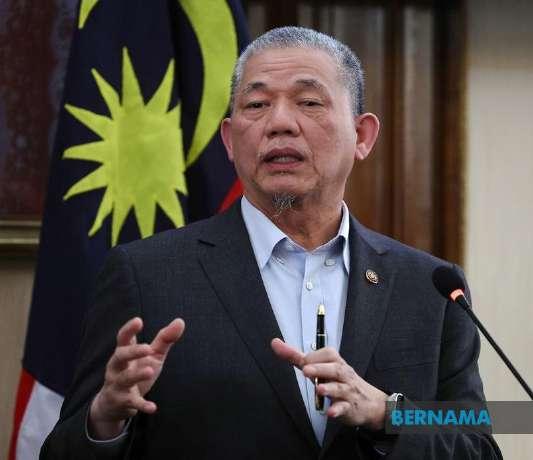
Before coming to the UK, Fadillah was in Brussels, Belgium, for the joint mission under the Council of Palm Oil Producing Countries (CPOPC). Indonesia was represented by its Coordinating Minister for Economic Affairs, Dr Airlangga Hartarto.
The leaders had meetings with Frans Timmermans, European Commission executive vice-president for the European Green Deal and Commissioner for Climate Action Policy; Josep Borrell-Fontelles, High Representative of the EU for Foreign Affairs and Security Policy; and Virginijus Sinkevičius, Commissioner for the Environment, Oceans and Fisheries. They also met Heidi Hautala, European Parliament vice-president and a member of the European Parliament (MEP) in the Greens/European Free Alliance group, as well as Bernd Lange, MEP and chair of the International Trade Committee. During the meetings, the Jakarta and Putrajaya leaders highlighted the impacts of the EU’s supply chain law and consistently emphasised the need for the EU to engage with the producing countries at the working and technical levels.
According to the CPOPC, the meetings were conducted in a cordial, frank and open manner. The feedback has been positive as the EU is open to engagement, while the CPOPC has proposed a task force involving all stakeholders. “What needs to be done now is more engagements. Most importantly, there is a need to follow up in ensuring the points raised and discussed are being addressed and reciprocated,” he said.
Malaysia and Indonesia contribute more than 80 per cent to global palm oil exports. At the same time, Fadillah said Malaysia needs to be prepared for more laws and regulations to be introduced by the EU. For instance, under the EU Renewable Energy Directive III (EU RED III), palm oil is still singled out by the EU regulators as the only biofuel feedstock having a high indirect land-use change (ILUC) risk, and therefore it will be phased out for the purpose of being counted towards the EU’s renewable energy target by 2030.
In addition, the proposed Corporate Sustainability Due Diligence Directive, as well as the Regulation Prohibiting Products Made with Forced Labour are also potential trade barriers and burden to operators along the supply chain, especially smallholders. In addition, the proposed Green Claims Directive compels companies to provide scientific evidence for their green labels. “However, this regulation on generic and unsubstantiated environmental claims could be an important ground to challenge ‘palm oil-free’ and ‘no palm oil’ claims made by products placed in the EU market that imply that the ingredient used as a palm oil replacement has less of a negative impact on the environment,” he said. “Overall, this mission to Brussels, Belgium, has been a success, especially as this was the first joint mission to the EU, and I believe the EU has heard us.” – Bernama
Palm Oil Today Indonesia July - September 2023 www.indopalmoil.com 20 WORLD NEWS
Palm oil mission concludes on high note with UK set to recognise MSPO
APAKAH HUKUM UNI EROPA YANG BERTUJUAN
UNTUK MENYELAMATKAN HUTAN HUJAN TROPIKA
BERPOTENSI MERUGIKAN PETANI KELAPA SAWIT ?
AREY ISLAND, MALAYSIA – Petani kelapa sawit Malaysia, Reta Lajah, adalah salah satu dari beberapa orang di desanya yang mendapatkan sertifikasi hijau dan etis setelah menjalani perjalanan selama setahun untuk bergabung dengan inisiatif global yang diharapkan dapat membantunya menghadapi hukum Uni Eropa baru untuk mengendalikan deforestasi.
Namun, meskipun lahan pertanian Reta di desa Sungai Judah di Pulau Carey, sekitar 60 kilometer dari Kuala Lumpur, akan melindungi satwa liar dan hutan, bertujuan untuk menyelesaikan sengketa lahan, dan menggunakan metode pertanian ramah lingkungan, tidak ada jaminan bahwa dia akan dapat menjual produknya kepada pembeli premium di Eropa di masa depan.
Hukum Uni Eropa yang disepakati pada bulan Desember dan akan berlaku dalam waktu dua tahun, akan memaksa pemasok global komoditas seperti kelapa sawit, kedelai, dan kakao untuk membuktikan bahwa rantai pasokan mereka tidak menyebabkan kerusakan hutan. Kelompok hijau memperingatkan bahwa ini dapat menyebabkan banyak petani skala kecil terpinggirkan karena persyaratan pelacakan yang rinci terhadap sumber produk, pengendalian kebakaran, dan pemetaan lahan, yang banyak petani akan kesulitan memenuhinya dengan sumber daya terbatas. Hal ini dapat mendorong pembeli kelapa sawit di Eropa yang menghindari risiko untuk beralih ke perkebunan yang lebih besar dengan sumber daya lebih kuat.
Namun, Reta, yang merupakan anggota suku Orang Asli atau “orang asli” pribumi di Semenanjung Malaysia, berharap dia akan menjadi salah satu dari yang beruntung, karena dia sudah mendapatkan sertifikasi hijau untuk lahan seluas 21 acre (8,5 hektar) miliknya. “Ini seperti akta kelahiran seorang anak,” kata Reta, sambil ayam dan anjing berkeliaran dengan santai membantu mengusir monyet di pohon kelapa di atasnya di pertanian tempat dia tinggal bersama suami nelayan, putrinya, dan lima cucu.
Minyak kelapa sawit adalah minyak makan yang paling banyak digunakan di dunia, ditemukan dalam segala hal mulai dari margarin hingga sabun, tetapi minyak ini telah menjadi sorotan aktivis lingkungan dan konsumen hijau yang menyalahkan produksinya atas kerusakan hutan hujan, kebakaran, dan eksploitasi pekerja. Sebagai respons, banyak penghasil kelapa sawit yang lebih besar di Indonesia dan Malaysia dua produsen kelapa sawit terbesar di dunia telah mencari sertifikasi dari Roundtable on Sustainable Palm Oil (RSPO), sebuah badan yang terdiri dari perusahaan perkebunan, kelompok konsumen, dan organisasi lingkungan.
Namun, petani kecil yang menghasilkan sekitar 40% dari produksi kelapa sawit di kedua negara itu, sejauh ini telah tertinggal dalam upaya hijau tersebut, kata pejabat industri. Hukum Uni Eropa baru tersebut mewajibkan perusahaan untuk menyediakan pernyataan kewajiban penelitian yang menunjukkan kapan dan di mana komoditas mereka diproduksi, serta memberikan informasi “verifikasi” bahwa mereka tidak ditanam di lahan yang ditebang setelah tahun 2020 atau berisiko dikenai denda besar.
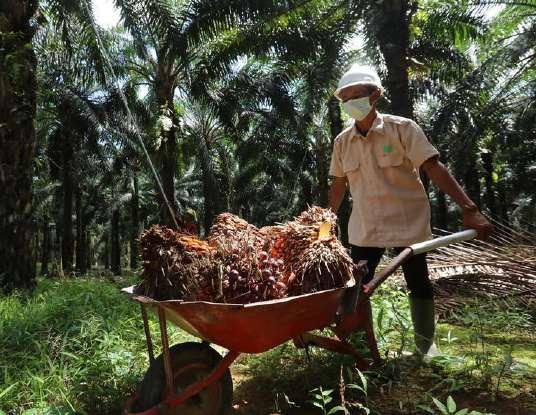
“Perkebunan kelapa sawit skala besar dan petani kecil yang bekerja dengan mereka adalah pemenang terbesar karena mereka memiliki sarana keuangan untuk melacak di mana kelapa sawit mereka ditanam,” kata Danny Marks, profesor muda dalam politik lingkungan dan kebijakan di Dublin City University di Irlandia. “Petani kecil akan menjadi pecundang terbesar kecuali mereka diberikan bantuan,” tambahnya.
SEDIKIT PETANI YANG MENDAPATKAN SERTIFIKASI
Reta telah menjadi petani kelapa sawit selama 35 tahun dan kini melakukan percobaan dengan pupuk alami, menggunakan lebih sedikit bahan kimia dan pestisida, serta membiarkan sebagian lahan ditumbuhi daun dan cabang untuk meningkatkan kualitas tanah dan lingkungan. Namun, hanya 18 dari 70 kebun kecil di desanya yang memiliki sertifikasi RSPO, dengan banyak yang tidak menyadari adanya hukum Uni Eropa yang akan datang, kata Reta. “(Sertifikasi) adalah bentuk asuransi bagi saya,” kata dia. “Namun, saya bukan satu-satunya petani kecil ... ada banyak yang mewakili Malaysia dari Sabah hingga Sarawak jadi Eropa juga perlu memahami kebutuhan mereka.”
Secara global, terdapat lebih dari 7 juta petani kelapa sawit skala kecil, di antaranya hanya sekitar 175.000 yang mendapatkan sertifikasi dari RSPO, menurut pengawas global. Penasihat keberlanjutan seperti Wild Asia, sebuah perusahaan sosial berbasis di Malaysia, bekerja dengan petani kecil seperti Reta untuk membantu mereka memenuhi standar RSPO, tetapi mereka juga khawatir tentang hukum Uni Eropa yang baru.
Pendiri Wild Asia, Reza Azmi, memperingatkan bahwa “banyak orang di berbagai wilayah yang berbeda” akan terkena dampaknya. Kesulitan dalam melacak asal komoditas membuat hukum ini menjadi “mimpi buruk” bagi industri yang mengolahnya, katanya, dengan memprediksi bahwa perusahaan yang mengimpor ke Uni Eropa dapat memutuskan untuk hanya membeli dari perusahaan perdagangan besar untuk meminimalkan risiko mereka. Diperkirakan hanya 20% hingga 30% dari lebih dari 400 pabrik kelapa sawit di Malaysia yang memiliki sertifikasi RSPO, kata Reza, sambil menambahkan bahwa para pedagang dan produsen skala kecil dan menengah yang memasok ke pabrik yang tidak bersertifikat akan terkena dampak.
Palm Oil Today Indonesia July - September 2023 www.indopalmoil.com
C 21 COMMENTARY
DIPLOMASI KELAPA SAWIT
Awal tahun ini, Indonesia dan Malaysia mengatakan mereka berencana mengirim utusan ke Uni Eropa untuk membahas dampak hukum tersebut terhadap sektor kelapa sawit mereka. Dan bulan lalu, petani kelapa sawit dan karet skala kecil Malaysia mengajukan petisi ke Uni Eropa untuk protes terhadap hukum baru tersebut. Namun, Serikat Petani Kelapa Sawit Indonesia (SPKS), yang memiliki lebih dari 70.000 anggota, mengeluarkan pernyataan tahun lalu yang mendukung hukum Uni Eropa terkait deforestasi. Ini bisa menjadi “kesempatan besar bagi jutaan petani kelapa sawit Indonesia untuk mendapatkan manfaat dari pasar Uni Eropa dengan menyediakan produk kelapa sawit yang bebas dari deforestasi dan dapat dilacak” , kata mereka.
Para ahli lingkungan setuju bahwa hukum ini dapat membantu petani kecil beralih ke praktik yang ramah lingkungan dan mendorong upaya penghentian deforestasi. Namun, mereka berpendapat bahwa ini akan membutuhkan bantuan dari negara-negara Uni Eropa dan investasi dari pembeli kelapa sawit untuk mendorong petani kecil memenuhi persyaratan hukum tersebut. Marks dari Dublin City University mengatakan bahwa Uni Eropa dapat menawarkan harga premium untuk kelapa sawit yang diproduksi secara berkelanjutan dan legal, serta menetapkan kuota minimum untuk bagian yang berasal dari petani kecil. Kelompok konservasi yang didanai oleh Uni Eropa juga dapat mendukung pelatihan pengendalian kebakaran dan pemetaan pertanian, sementara bisnis dapat berinvestasi lebih banyak pada petani kecil sehingga mereka dapat mengadopsi metode yang ramah lingkungan, tambahnya. “Hal ini akan memastikan bahwa petani kecil tidak dikesampingkan oleh hukum baru yang diundangkan dengan niat baik,” katanya. Petani skala kecil juga dapat membentuk koperasi dan bekerja untuk mematuhi peraturan Uni Eropa yang baru sebelum diberlakukan, kata Syahrul Fitra, seorang pembela hutan senior di Greenpeace Indonesia.
Antoine Gilbert, petugas kebijakan Uni Eropa di Forest Peoples Program (FPP), sebuah kelompok hak asasi manusia Eropa, mendorong RSPO untuk meningkatkan standarnya agar sejalan dengan ambisi hukum Uni Eropa. Standar RSPO untuk para produsen, yang ditinjau setiap lima tahun, akan diperbarui menjelang akhir tahun 2023, dan akan melihat peningkatan dalam implementasi dan auditnya, kata seorang juru bicara RSPO.
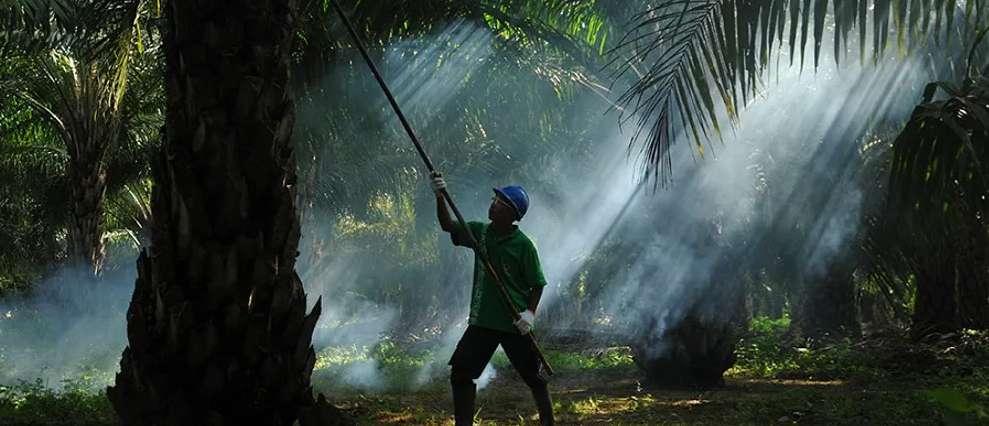
Saat ini, RSPO sedang mengevaluasi bagaimana proses dan standarnya dapat memberikan dukungan terbaik bagi anggotanya, termasuk petani kecil, untuk mematuhi peraturan Uni Eropa tersebut. Juru bicara tersebut juga menambahkan bahwa pelacakan digital di seluruh rantai pasok juga sedang diperkuat. Uni Eropa menolak untuk berkomentar.
MASA DEPAN YANG TERJAMIN
Gilbert dari FPP mendesak Uni Eropa untuk memastikan bahwa dalam mengimplementasikan hukum baru ini, kebutuhan dan hak-hak masyarakat adat, komunitas lokal, dan petani kecil seperti Reta dihormati dan bahwa mereka dapat berpartisipasi.
Reta, yang mulai menanam kelapa sawit pada tahun 1988 setelah menikah dan mendapatkan alokasi 3 hektar tanah dari lembaga urusan pribumi Malaysia, mengatakan bahwa pendapatannya dari bisnis ini telah memungkinkannya untuk membeli sepeda motor bagi anak-anaknya agar dapat pergi ke sekolah yang berjarak 13 km, serta memberikan uang saku kepada cucunya. “Kelapa sawit telah menjamin masa depan saya dan komunitas di sini. (Ini) membantu saya tidak khawatir tentang apa yang akan terjadi di masa depan,” tambahnya.
Sebagai seorang perempuan pribumi, Reta mengetahui nilai hutan dan ekosistem, dan melihat hukum baru Uni Eropa ini sebagai hal yang baik yang dapat memotivasi petani kecil lainnya untuk melindungi alam dan beradaptasi. Meskipun dia juga dapat menjual produknya kepada pembeli besar di tempat seperti China dan India, dia mendesak pemerintah untuk bernegosiasi agar akses ke pasar Uni Eropa tidak terputus bagi para produsen skala kecil.
Sementara itu, dia dengan senang hati memberikan panduan kepada tetangganya tentang bagaimana cara mendapatkan sertifikasi RSPO dengan harapan mereka dapat terus memasok ke negara-negara Eropa. “Penting bagi mereka untuk memulai secepat mungkin,” katanya.
Palm Oil Today Indonesia July - September 2023 www.indopalmoil.com 22 COMMENTARY
COULD AN EU LAW TO SAVE THE RAINFOREST DESTROY PALM OIL FARMERS?

CAREY
MALAYSIA – Malaysian palm oil farmer Reta Lajah is one of only a few in her village to be certified green and ethical, after a yearlong journey to join a global initiative that she hopes will help her navigate a new European Union law to curb deforestation.
Yet, while Reta’s farm in Sungai Judah village on Carey Island, about 60 kilometers from Kuala Lumpur, will protect wildlife and forests, aim to resolve any land disputes and use green growing methods, there is no guarantee she will be able to sell to Europe’s premium-paying buyers in the future.
Agreed in December and due to take effect within two years, the EU law will force global suppliers of commodities like palm oil, soy and cocoa to prove that their supply chains are not fueling forest destruction. Green groups warn it could leave many small-scale farmers out in the cold because of requirements for detailed tracing of a product’s source, fire controls and land mapping, which many will struggle to meet with limited resources. That could push risk-averse palm oil buyers in Europe to switch to larger plantations with deeper pockets.
But Reta, who belongs to the Orang Asli or “original people” indigenous to peninsular Malaysia, hopes she will be one of the lucky ones, as she has already earned green certification for her 21-acre (8.5-hectare) plot. “It is like the birth certificate of a child,” said Reta, as chickens and dogs roamed lazily helping warn off monkeys in the palm trees overhead on the farm where she lives with her fisherman husband, daughter and five grandchildren.
Palm oil is the world’s most widely used edible oil, found in everything from margarine to soap, but it has faced scrutiny from green activists and consumers, who have blamed its production for rainforest loss, fires and worker exploitation. In response, many larger growers in Indonesia and Malaysia the world’s top two palm oil producers have sought certification from the Roundtable on Sustainable Palm Oil (RSPO), a body of plantation firms, consumer groups and environmental organizations.
But smallholders, who produce about 40% of palm oil from those two countries, have so far been largely left behind in that green push, say industry officials. The new EU law requires companies to provide a due diligence statement showing when and where their commodities were produced and to give “verifiable” information that they were not grown on land deforested after 2020 or risk hefty fines.
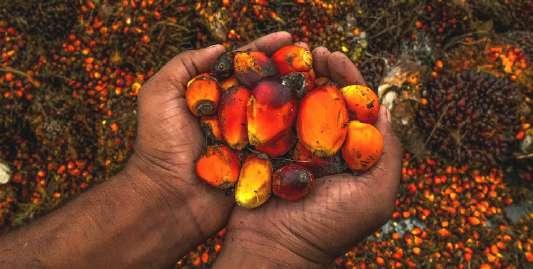
“Large-scale oil palm plantations and smallholders working with them are the biggest winners because they have the financial means to trace where their palm oil was grown,” said Danny Marks, assistant professor of environmental politics and policy at Dublin City University in Ireland. “The biggest losers will be smallholder farmers unless they are provided assistance,” he added.
FEW FARMERS CERTIFIED
Reta has been a palm oil grower for 35 years and now experiments with natural fertilizers, uses less chemicals and pesticides, and allows areas on her land to be overgrown with leaves and branches to improve soil quality and the environment. But only 18 out of 70 small farms in her village are RSPO-certified, with many unaware of the upcoming EU law, she said. “(Certification) is a form of insurance for me,” she said. “But I’m not the only smallholder… there are many representing Malaysia from Sabah to Sarawak so Europe needs to understand their needs too.”
Globally there are more than 7 million palm oil smallholders, of which only about 175,000 are certified by the RSPO, according to the global watchdog. Sustainability advisors such as Wild Asia, a Malaysia-based social enterprise, work with smallholders like Reta to help them meet RSPO standards but they, too, are worried about the new EU law.
Wild Asia founder Reza Azmi warned that “a hell of a lot of people in many different geographies” would be impacted. The difficulty of tracking the origin of commodities means the law is a “nightmare” for industries that process them, he noted, predicting companies importing into the EU could decide to buy only from large trading firms to minimize their risks. Of Malaysia’s more than 400 palm oil mills, only 20% to 30% are RSPO-certified, he estimated, adding that dealers and both small and medium-sized producers supplying the uncertified mills will be hit.
Palm Oil Today Indonesia July - September 2023 www.indopalmoil.com
23 COMMENTARY
ISLAND,
PALM OIL DIPLOMACY
Earlier this year, Indonesia and Malaysia said they planned to send envoys to the EU to discuss the law’s impact on their palm oil sectors. And Malaysian palm oil and rubber smallholders last month filed a petition to the EU to protest against the new law. However, Indonesia’s Union of Palm Oil Smallholders (SPKS), which has more than 70,000 members, issued a statement last year supporting the EU deforestation law. It could be “a great opportunity for millions of Indonesian palm oil farmers to benefit from the EU market by providing deforestation-free and traceable palm oil products” , they said.
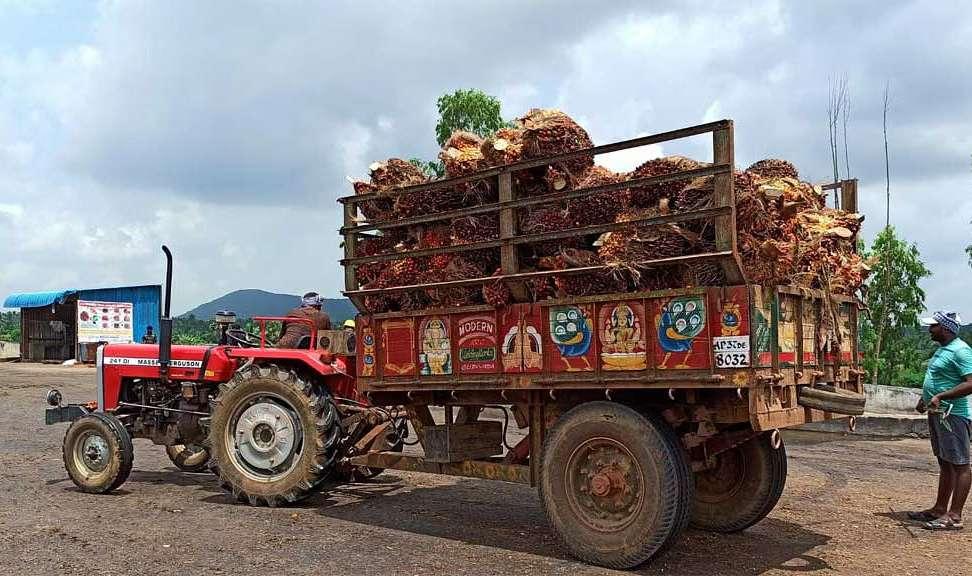
Environmentalists agree the law may help smallholders go green and lead a deforestation push but argue this will require aid from EU nations and investment from palm oil buyers to incentivize small farmers to meet the law’s requirements. Marks of Dublin City University said the EU could offer a premium price for palm oil produced sustainably and legally, and set a minimum quota for the share sourced from smallholders. Conservation groups funded by the EU could also support fire control training and farm mapping, while businesses could invest more in smallholders so they can adopt green methods, he added. “This would make sure that smallholders will not be left out by the new law which was enacted with good intentions,” he said. Small-scale growers could also form cooperatives and work to comply with the new EU regulation before it is introduced, said Syahrul Fitra, a senior forest campaigner at Greenpeace Indonesia.
Antoine Gilbert, EU policy officer at the Forest Peoples Program (FPP), a European human rights group, urged the RSPO to upgrade its standards to match the ambitions of the EU law. The RSPO standards for growers reviewed every five years will be updated by the end of 2023, and will see improvements in their implementation and audits, an RSPO spokeswoman said.
The RSPO is now assessing how its processes and standards can best support members, including smallholders, to comply with the EU regulation, she said, adding that digital traceability throughout the supply chain is also being strengthened. The EU declined to comment.

SECURE FUTURE
The FPP’s Gilbert urged the EU to ensure that, in implementing the new law, the needs and rights of Indigenous peoples, local communities and smallholders like Reta are respected and that they are able to participate.
Reta, who began growing oil palm in 1988 after getting married and being allocated 3 acres of land by Malaysia’s indigenous affairs agency said her income from the business had enabled her to buy motorbikes for her children to travel to school 13 km away and give pocket-money to her grandchildren. “Palm oil has secured my future and that of the community here. (It) helps me not worry about what the future holds,” added.
As an Indigenous woman, Reta knows the value in forests and ecosystems, and sees the new EU law as a good thing that can motivate other smallholders to protect nature and adapt. While she is also able to sell to major buyers in places like China and India, she urged governments to negotiate so that access to EU markets is not cut off for small-scale producers.
Meanwhile, she is happy to offer guidance to her neighbors on how to become RSPO-certified in the hope that they can keep on supplying to European countries. “It’s important they start as soon as they can,” she said.
Palm Oil Today Indonesia July - September 2023 www.indopalmoil.com 24 COMMENTARY


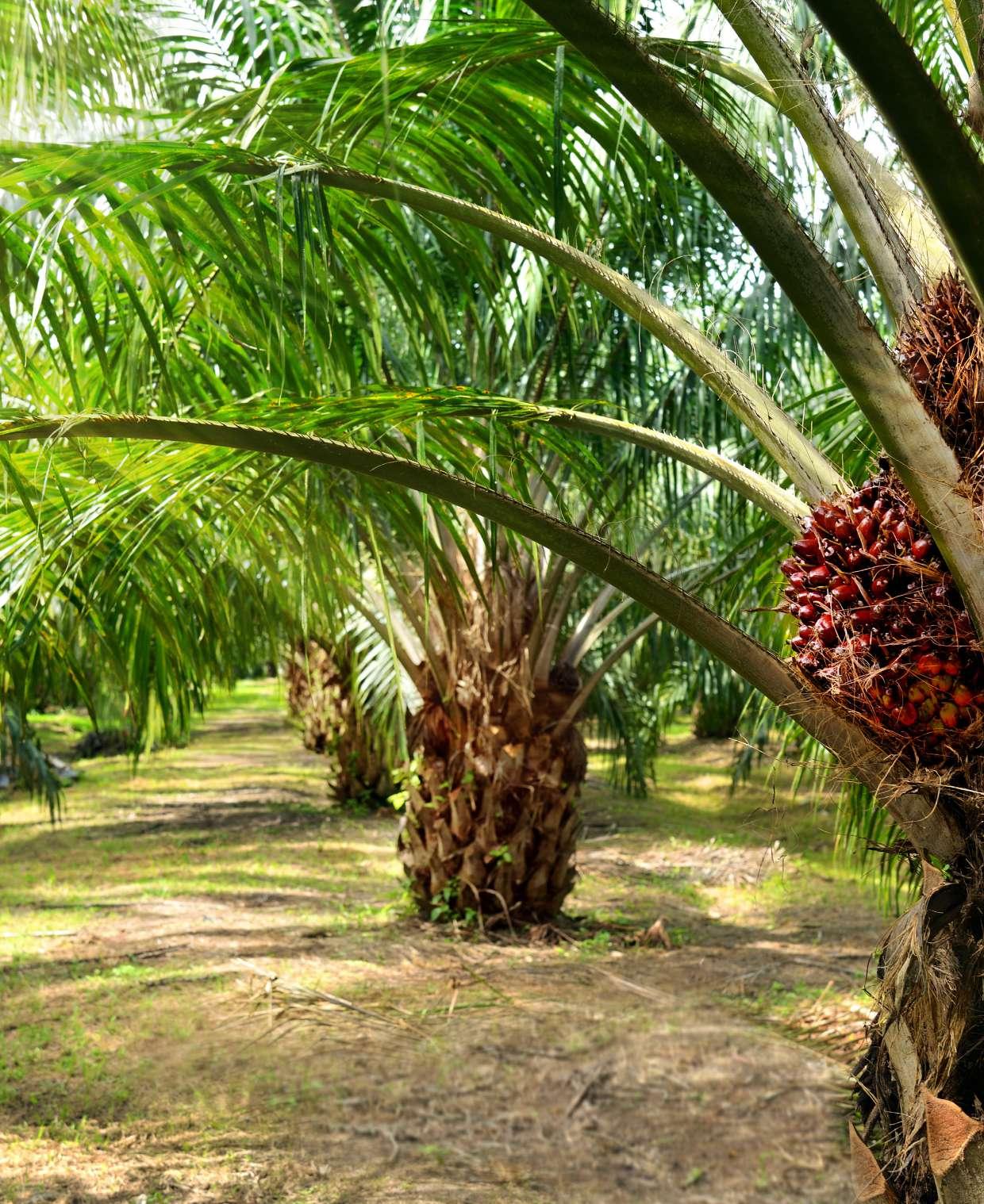

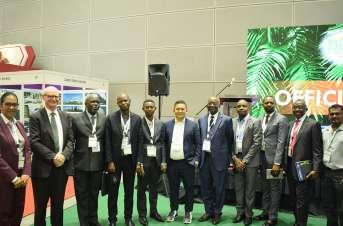

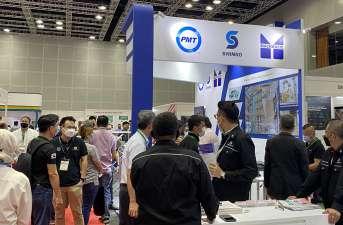
ORGANIZED BY: 2024 HALL 4 & 5, KLCC CONVENTION CENTRE, KUALA LUMPUR, MALAYSIA OFFICIAL MEDIA: info@ reworksmy.com EXHIBITION ENQUIRIES: (+603) 6151 9178 28-29 AUGUST 2024 WWW.ASIAPALMOIL.COM Malaysia's Largest Palm Oil Technology Exhibition! C ON F ERENCE 2 0 2 4 4th EDITION WORLD PALM CONFERENCE INDUSTRY BUSINESS MATCHING TECHNOLOGY SEMINARS HIGHLIGHTS OF THE EVENT




































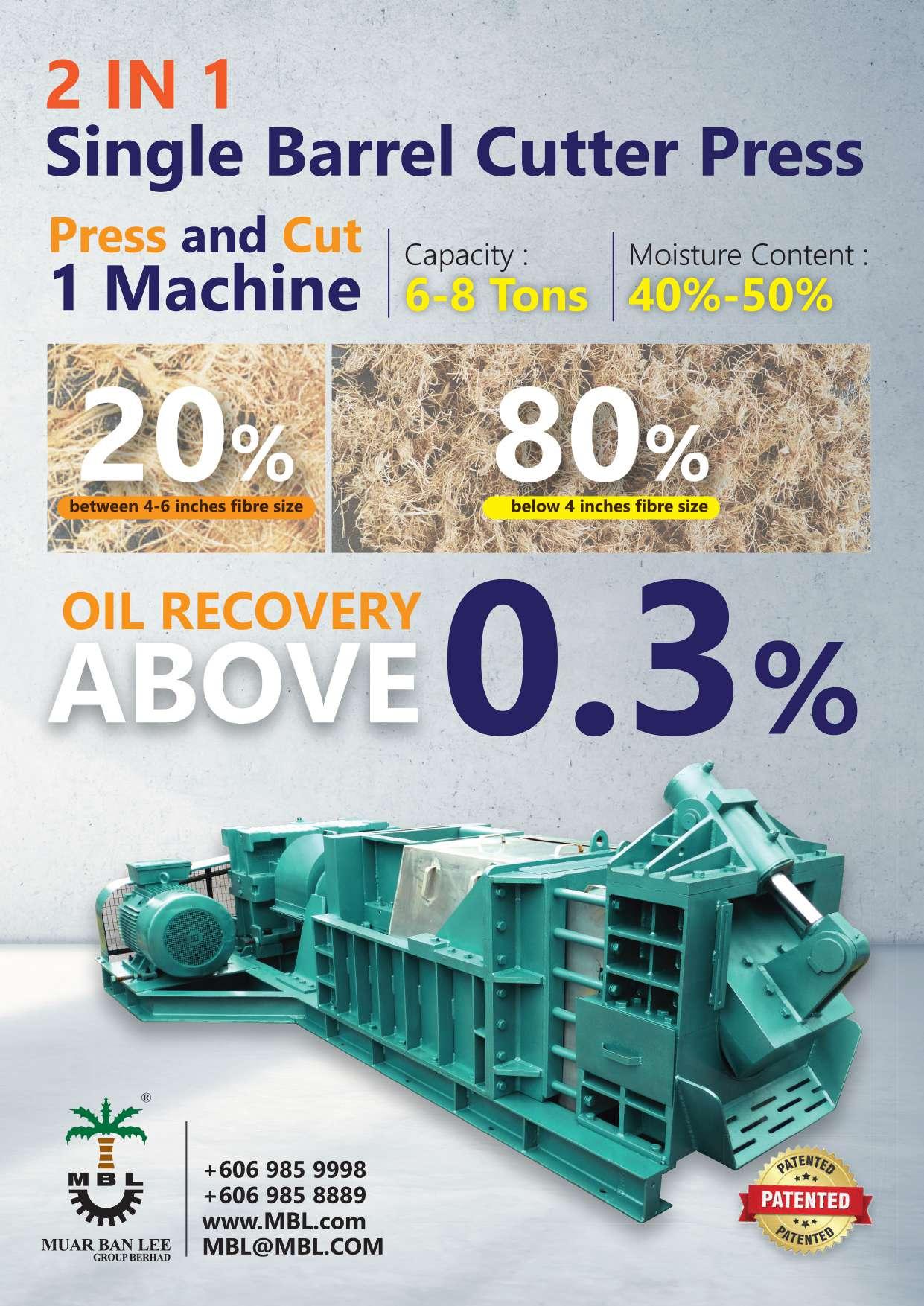
TANZANIA MENEMUKAN BIJI KELAPA SAWIT YANG
MENGHASILKAN
TINGGI YANG SIAP UNTUK
MENINGKATKAN PRODUKSI
Lembaga penelitian di Tanzania telah menemukan varietas baru biji kelapa sawit yang menghasilkan tinggi yang akan meningkatkan budidaya pohon kelapa sawit dan produksi minyak kelapa sawit di negara tersebut.
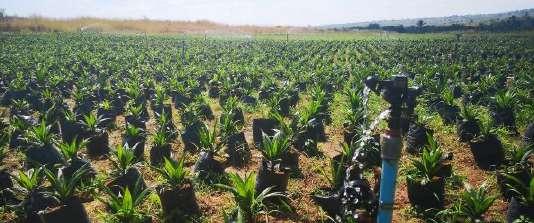
Varietas baru biji kelapa sawit yang disebut Terena telah diuji coba di beberapa daerah budidaya di negara tersebut seperti Kigoma, Kagera, Tabora, dan wilayah pesisir, dan menunjukkan hasil yang baik.
Mengumumkan kabar baik tersebut saat pengambilan sumpah pemimpin negara kemarin di Dodoma, perdana menteri Tanzania, Kassim Majaliwa, mengatakan bahwa penemuan ini adalah langkah besar yang dilakukan oleh lembaga penelitian dalam beberapa waktu terakhir untuk sektor pertanian.
“Pemerintah telah merencanakan strategi untuk meningkatkan produksi lokal biji kelapa sawit guna mengurangi ketergantungan pada impor dan mengakhiri fluktuasi harga, maka penemuan ini adalah terobosan besar bagi negara ini,” kata Majaliwa.
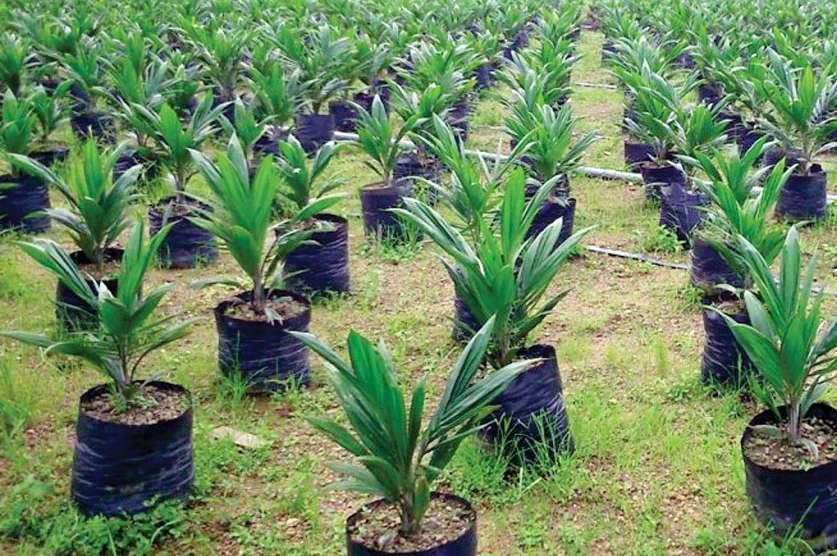
Dia juga mendorong Organisasi Pengembangan Industri Kecil (SIDOs) untuk terus mengembangkan teknologi penggilingan minyak kelapa sawit yang baik dan sederhana, yang dapat memungkinkan masyarakat Tanzania memproduksi lebih banyak minyak yang berkualitas di negara tersebut.
KARATERISTIK VARIETAS BIJI KELAPA
SAWIT TERENA
Menurut Buku Panduan Kelapa Sawit Petani Kecil Modul 1, dalam kelapa sawit, hasil terbaik dihasilkan oleh hibrida seperti Terena, yang merupakan persilangan antara dua jenis induk yang berbeda, yaitu kelapa dura dan kelapa pisifera.
Buah hibrida induk kelapa dura memiliki cangkang yang tebal sedangkan buah induk kelapa pisifera tidak memiliki cangkang sama sekali. Persilangan antara keduanya menghasilkan buah tenera yang merupakan hibrida dengan cangkang yang tipis.
Kelapa sawit Terena menghasilkan hingga 30 persen lebih banyak minyak dibandingkan dengan induknya dan buahnya memiliki serat berwarna coklat/hitam pada lapisan luar.
Palm Oil Today Indonesia July - September 2023 www.indopalmoil.com
28 PLANTATION NEWS
KONTRIBUSI PEMERINTAH
Dalam upaya mencapai target produksi minyak makan sebanyak 700.000 ton per tahun, pemerintah Tanzania memerintahkan Badan Benih Pertanian (ASA) untuk memproduksi 15.000 ton benih berkualitas yang akan didistribusikan kepada petani di berbagai wilayah pada tahun 2025.
“Kami memiliki strategi untuk meningkatkan luas lahan yang digunakan untuk perkembangbiakan benih dari 15.000 hektar menjadi 250.000 hektar guna meningkatkan jumlah benih yang diproduksi setiap tahun,” kata Anthony Mavunde, Wakil Menteri Pertanian Tanzania.
Dia mengatakan pemerintah meningkatkan anggaran kementeriannya dari Sh294 miliar menjadi Sh751 miliar pada tahun 2022/23, hal ini akan memungkinkan lembaga tersebut mencapai target perkembangbiakan benih dengan pertumbuhan 10 persen hingga mencapai tahun 2030.
Tanaman utama untuk produksi minyak makan di Tanzania adalah bunga matahari, kelapa sawit, kacang tanah, wijen, kedelai, dan kapas.
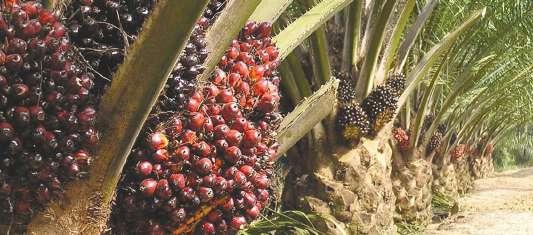
PERLINDUNGAN BAGI PETANI KECIL
Bapak Majaliwa juga menginstruksikan para komisioner di wilayah produksi minyak untuk memastikan bahwa mereka memperkenalkan timbangan standar untuk mengukur minyak kelapa sawit, bukan menggunakan wadah lokal yang dikenal sebagai Bidoo yang dirancang untuk mengeksploitasi petani kecil.
“Warga negara tidak boleh dieksploitasi oleh satuan pengukuran Bidoo yang tidak diatur oleh hukum, dan pembeli yang menggunakan ukuran tersebut harus dilaporkan dan tindakan diambil,” katanya.
Petani telah banyak dieksploitasi melalui penggunaan satuan pengukuran Bidoo, terutama dalam kasus di mana pembeli memperbesar wadah berkapasitas 20 liter menggunakan air panas sehingga kapasitasnya menjadi 25 liter dan akhirnya membayar harga 20 liter.
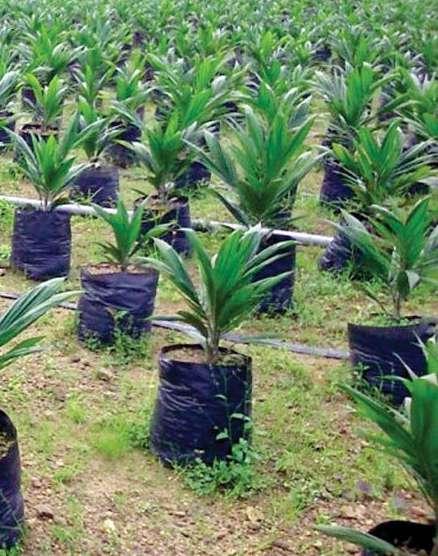
PRODUKSI MINYAK GORENG DI TANZANIA
Tanzania menghasilkan 205.000 ton minyak goreng per tahun melalui biji-bijian minyak, sementara permintaan mencapai 570.000 ton.
Defisit tersebut diimpor dari Malaysia, India, Singapura, dan Indonesia dengan biaya sebesar $204,7 juta per tahun. Kekurangan minyak goreng telah menyebabkan harga eceran naik dari $1,3 menjadi $2,8 per liter.
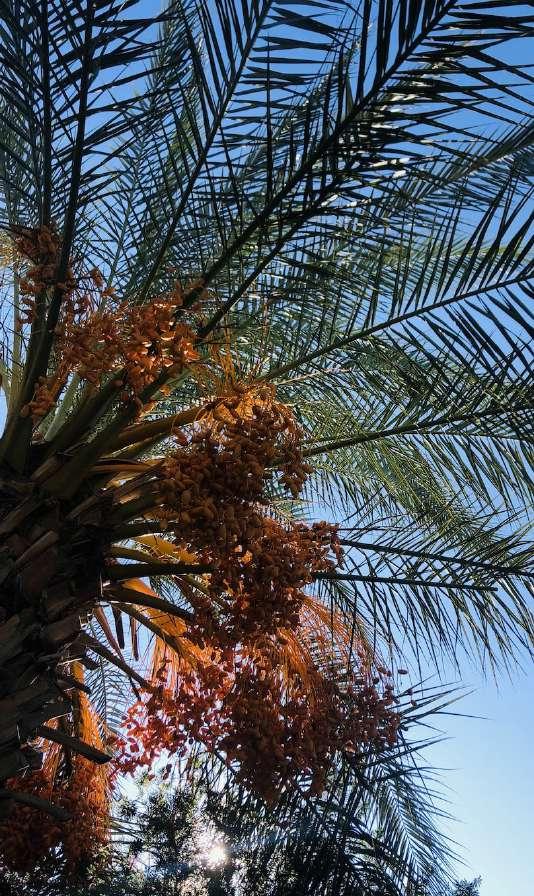
Palm Oil Today Indonesia July - September 2023 www.indopalmoil.com 29 PLANTATION NEWS
TANZANIA DISCOVERS HIGH YIELDING PALM OIL SEEDS POISED TO BOOST PRODUCTION
Tanzanian research institutes have discovered new high yielding palm oil seeds that is set to boost the cultivation of the trees and production of the edible oil in the country. The new variety of the palm oil seeds called Terena has gone through trials in some of the cultivation areas in the country such as Kigoma, Kagera, Tabora and Coastal regions and has shown good results.
Announcing the good news during a swearing in of state leaders yesterday in Dodoma, Tanzanian premier Kassim Majaliwa said that the discovery is a great step made by the research institutions in the recent past for the agricultural sector.
“The government has been strategizing with the view to increasing local production of palm oil seeds so as to reduce dependence on importation and end price fluctuations hence this discovery is a big breakthrough for the country,” said Majaliwa.
He has also urged Small Industries Development Organisations (SIDOs) to continue developing good and simple palm oil milling technologies, which can enable Tanzanians to produce more and better oil in the country.
CHARACTERISTICS OF TERENA PALM OIL SEEDS VARIETY
According to Smallholder Oil Palm Handbook Module1, in oil palm, the best yields are produced by hybrids like Terena , a cross between two different types of parents namely dura and pisifera palms.
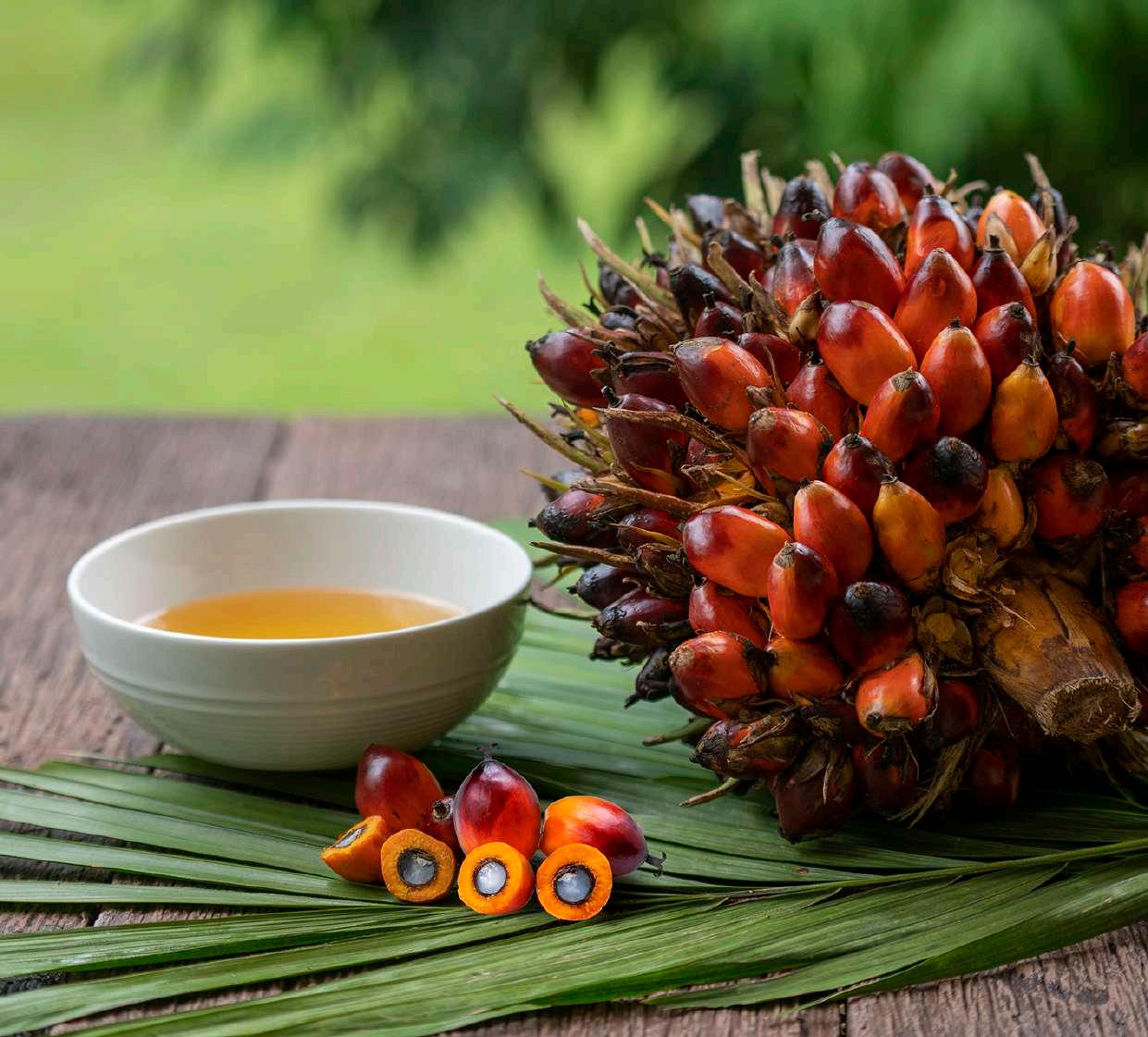
The mother palm hybrid dura fruits have a thick shell while the father palm pisifera fruits have no shell at all. A cross between the two results into hybrid tenera fruits with a thin shell.
Terena palms produce up to 30 percent more oil than their parents and their fruits have brown/black fibres in the outer covering.
www.indopalmoil.com
30 PLANTATION NEWS
GOVERNMENT INPUT
In a move to realise its target of producing 700,000 tonnes of edible oil a year, Tanzanian government instructed Agriculture Seeds Agency (ASA) to produce 15,000 tonnes of quality seeds for distribution to farmers in various regions by 2025.
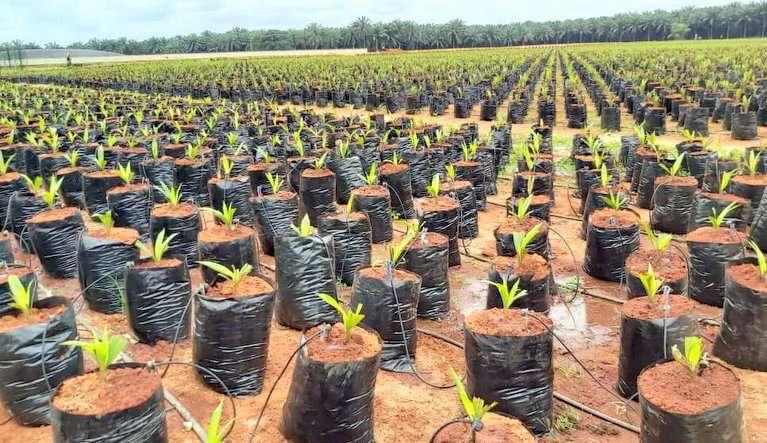
“We have a strategy to increase the size of land used for seeds multiplication from 15,000 hectares to 250,000 hectares in order to increase the quantity of seeds produced annually,” said Anthony Mavunde, Tanzania’s Deputy Minister for Agriculture.
He said the government increased the ministry’s budget from Sh294 billion to Sh751 billion in the 2022/23, something that will enable the agency to meet its seeds multiplication target of 10 percent growth reaching 2030.
The major crops for edible oil production in Tanzania are sunflower, palm oil, groundnuts, sesame, soya beans and cotton.
PROTECTING SMALLHOLDERS
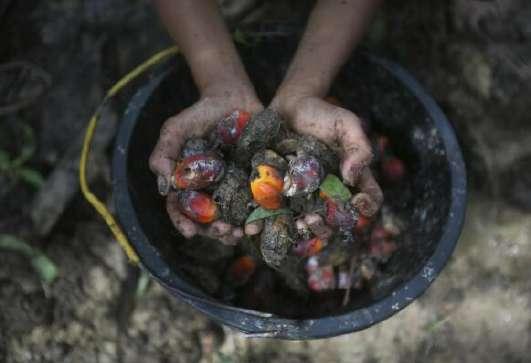

Mr. Majaliwa also instructed commissioners in the oils production regions to ensure that they introduce standard palm oil measuring scales instead of local containers known as Bidoo, designed to exploit smallholder farmers.
“Citizens should not be exploited by Bidoo measuring units which are not regulated by the law and a buyer using such measures should be reported and action taken,” he said.
Farmers have been exploited a lot through the use of Bidoo measuring units, especially in cases where buyers enlarge a 20 litres container using hot water to increase its capacity to 25 litres and end up paying the price of 20 litres.
EDIBLE OIL PRODUCTION IN TANZANIA
Tanzania produces 205,000 tonnes of cooking oil a year through oil seeds against a demand of 570,000 tonnes.
The deficit is imported from Malaysia, India, Singapore and Indonesia at a cost of $204.7 million per year. Shortage of edible oil has pushed retail prices from $1.3 to $2.8 per litre.
Palm Oil Today Indonesia July - September 2023 www.indopalmoil.com
31 PLANTATION NEWS
Seberapa Berkelanjutan Transisi Keberlanjutan di Sektor Kelapa Sawit Indonesia?
Kampanye Hitam : Apakah Semua Minyak Kelapa Sawit Buruk?
Keberlanjutan minyak kelapa sawit Indonesia pertama kali menjadi isu global pada awal tahun 2000-an ketika organisasi non-pemerintah (NGO) yang sebagian besar berbasis di negara-negara global Utara meluncurkan kampanye untuk mendorong konsumen agar menghindari produk yang mengandung minyak kelapa sawit. Dengan menggunakan penderitaan spesies yang karismatik seperti orangutan yang kehilangan habitat hutan tropisnya, mereka mempromosikan gagasan bahwa minyak kelapa sawit adalah minyak “kotor”. Tekanan dari konsumen begitu besar sehingga beberapa pembeli minyak kelapa sawit besar seperti Burger King, Unilever, dan Nestle harus membatalkan kontrak mereka dengan pemasok minyak kelapa sawit di belahan Selatan dunia.
Pemerintah Indonesia merespons boikot ini dengan keras, menggambarkannya sebagai “kampanye hitam” oleh agen asing di belahan Utara dunia yang ingin menjaga negara-negara Selatan seperti Indonesia tetap miskin dan terbelakang sambil melindungi pasar biji-bijian minyak mereka sendiri.
Perubahan saat ini menuju produksi minyak kelapa sawit yang lebih adil secara sosial dan ramah lingkungan di Indonesia nampaknya lebih dipicu oleh tekanan eksternal daripada kekhawatiran keberlanjutan internal yang tulus. Membuat transisi keberlanjutan menjadi permanen dan nyata daripada sementara dan permukaan masih merupakan tantangan yang berkelanjutan.
Minyak kelapa sawit adalah minyak nabati termurah, paling banyak diproduksi, dan paling banyak dikonsumsi di dunia. Namun, produksi minyak kelapa sawit telah dikaitkan dengan berbagai praktik lingkungan dan sosial yang tidak berkelanjutan. Karena perkebunan kelapa sawit tumbuh dengan baik di iklim tropis, pusat produksi utamanya terletak di negara-negara yang banyak ditumbuhi hutan di belahan selatan global. Ledakan produksi minyak kelapa sawit baru-baru ini telah bersamaan dengan periode deforestasi yang intens. Selain itu, ada kasus-kasus pekerja anak dan penyalahgunaan tenaga kerja di perkebunan yang sangat dipublikasikan.
Indonesia adalah produsen minyak kelapa sawit terbesar di dunia, menghasilkan sekitar 59 persen dari total produksi minyak kelapa sawit di dunia. Indonesia juga merupakan konsumen minyak kelapa sawit terbesar di dunia. Dari total produksi minyak kelapa sawit Indonesia sebesar 51,3 juta ton pada tahun 2022, sekitar 35 persen dikonsumsi di dalam negeri, dan 65 persen diekspor. Negara tujuan utama ekspor minyak kelapa sawit Indonesia adalah India, China, dan Pakistan. Namun, sebagai kelompok, Uni Eropa merupakan importir terbesar kedua minyak kelapa sawit Indonesia.
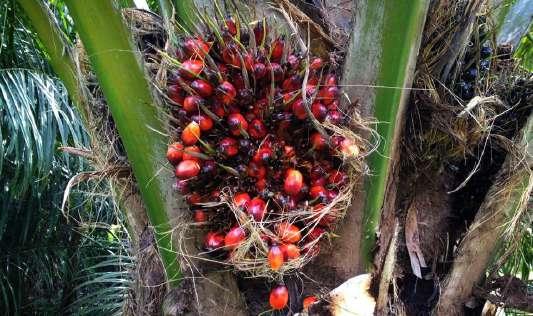
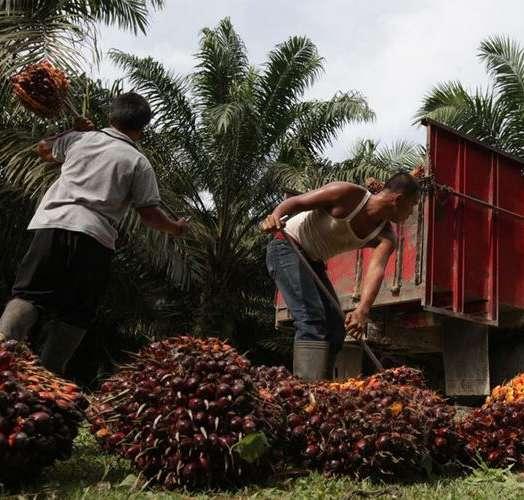
Di Indonesia, berbagai kelompok masyarakat sipil telah mencoba menarik perhatian terhadap dampak negatif lokal sektor ini, seperti polusi asap transboundary dari kebakaran gambut dan konflik atas tanah adat. Namun, isu-isu ini sering kali terlupakan oleh semangat nasionalistik yang didukung oleh kampanye domestik seperti “Sawit Baik” yang mempromosikan minyak kelapa sawit sebagai “tanaman emas” Indonesia sebagai mekanisme untuk mengurangi kemiskinan di kalangan penduduk pedesaan dan sebagai sumber penting GDP.
Seiring berjalannya waktu, organisasi non-pemerintah seperti Greenpeace dan World Wide Fund menyempurnakan kampanye mereka untuk hanya menargetkan minyak kelapa sawit yang diproduksi secara tidak berkelanjutan. Mereka menyadari bahwa boikot bukanlah strategi yang baik karena minyak kelapa sawit adalah minyak nabati yang paling efisien untuk penggunaan lahan. Pergantian dari minyak kelapa sawit hanya akan memindahkan deforestasi dan tekanan lahan ke tempat lain ke biji-bijian minyak lain yang kurang efisien dalam penggunaan lahan seperti bunga matahari dan rapeseed.
Mengakui konsepsi ini, Indonesia mulai menyelaraskan industri minyak kelapa sawit dengan gerakan minyak kelapa sawit berkelanjutan, yang dapat dianggap sebagai awal yang sebenarnya dari transisi keberlanjutan di sektor ini. Asosiasi industri Indonesia, GAPKI, bergabung dengan Roundtable for Sustainable Palm Oil, dan Indonesia menciptakan sistem sertifikasi mandatori sendiri, yaitu Indonesian Sustainable Palm Oil (ISPO). Jakarta juga membuat beberapa keputusan kebijakan drastis yang mengubah industri, seperti mendeklarasikan moratorium izin perkebunan kelapa sawit baru dan perubahan penggunaan lahan gambut (jenis penggunaan lahan yang erat kaitannya dengan minyak kelapa sawit) untuk memberikan waktu dan ruang bagi sektor ini untuk beralih ke mode produksi yang lebih berkelanjutan.
Palm Oil Today Indonesia July - September 2023 www.indopalmoil.com 32 SUSTAINABILITY NEWS
Mengkonviksi Dunia Utara : Minyak Kelapa
Sawit Bisa Baik
Namun, kampanye sebelumnya telah sangat merusak reputasi minyak kelapa sawit di seluruh dunia, dan banyak konsumen masih beranggapan bahwa semua minyak kelapa sawit itu “buruk”. Oleh karena itu, meskipun pembeli perusahaan menuntut minyak kelapa sawit berkelanjutan bersertifikat, mereka seringkali tidak dapat membenarkan membayar harga premium yang diminta karena minat konsumen yang rendah. Akibatnya, banyak minyak kelapa sawit berkelanjutan bersertifikat dijual dengan harga non-premium, yang berarti produsen harus menanggung biaya lebih tinggi yang terkait dengan mode produksi yang lebih berkelanjutan. Hal ini dan faktor lainnya menyebabkan keputusan GAPKI untuk keluar dari RSPO pada tahun 2011.
Sentimen anti-minyak kelapa sawit juga merembes ke ruang pengambilan kebijakan. Uni Eropa menerapkan beberapa peraturan seperti Renewable Energy Directive II (RED II) dan European Union Deforestation-Free Regulation (EUDR), yang, meskipun tidak secara eksplisit menargetkan minyak kelapa sawit, membuat semakin sulit bagi minyak kelapa sawit untuk diimpor ke Uni Eropa.
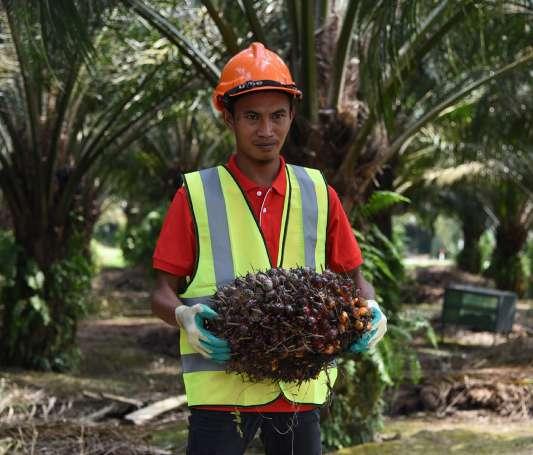
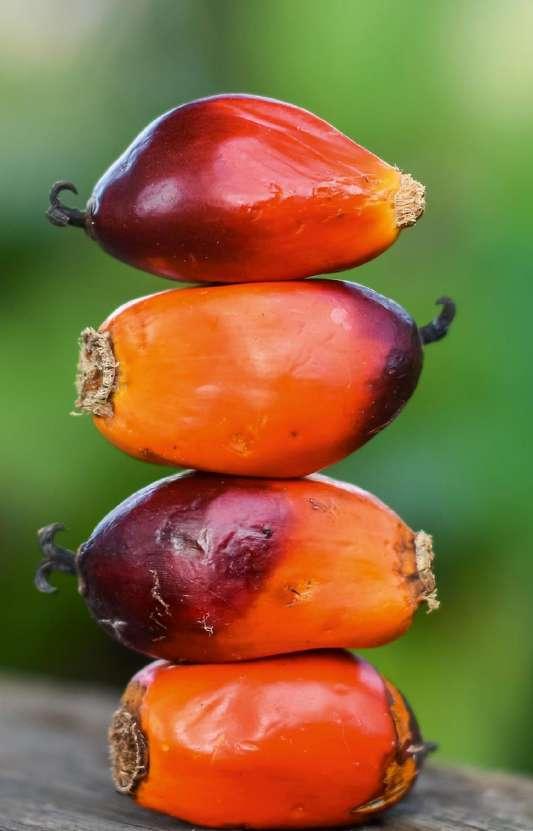
Indonesia kembali merespons secara kritis terhadap perkembangan ini. Indonesia mengajukan gugatan WTO terhadap Uni Eropa terkait RED II, yang mereka anggap diskriminatif. Gugatan tersebut masih menunggu keputusan. Indonesia juga mendirikan, bersama dengan Malaysia, Dewan Negara Produsen Minyak Kelapa Sawit (CPOPC) untuk, antara tujuan lainnya, melawan hambatan perdagangan semacam itu secara terkoordinasi.
Mendukung Perjalanan Keberlanjutan Indonesia
Keberlanjutan adalah perjalanan yang tidak terjadi dalam semalam. Sangat menantang bagi negara sebesar Indonesia untuk memfasilitasi transisi keberlanjutan dalam sektor kelapa sawit yang begitu besar, terutama karena transisi tersebut bertentangan dengan prerogatif pembangunan tradisional. Namun, konsumen dan pemerintah di dunia Utara tetap curiga terhadap upaya dan pencapaian Indonesia dalam mencapai mode produksi yang lebih berkelanjutan di sektor kelapa sawit dan terus mengubah tujuan keberlanjutan. Akses pasar tetap terancam.
Faktanya adalah pasar-pasar tersebut bukanlah satu-satunya, dan juga bukan yang paling penting, importir minyak kelapa sawit Indonesia. Importir utama lainnya di Indonesia yang (seringkali lebih besar) - Tiongkok, India, dan Pakistan jauh lebih sedikit peduli tentang keberlanjutan. Kurangnya dukungan dari dunia Utara berisiko membuat produsen Indonesia akhirnya kehilangan minat dalam mengejar pasar-pasar ini dan beralih fokus pada pasar-pasar lain yang kurang memperhatikan keberlanjutan. Tindakan penarikan diri sudah mulai terjadi dalam kebijakan industri minyak kelapa sawit di negara ini, seperti moratorium minyak kelapa sawit yang berakhir pada tahun 2022 tanpa perpanjangan atau pengganti yang jelas. Selain itu, Indonesia telah lebih fokus pada penguatan pasar minyak kelapa sawit dalam negeri melalui kebijakan perdagangan dalam negeri dan biofuel untuk mengantisipasi masalah akses pasar global.
Importir yang peduli terhadap keberlanjutan, seperti Uni Eropa dan Amerika Serikat, memiliki peran penting dalam mendukung Indonesia dalam perjalanan keberlanjutannya. Dukungan pasar eksternal sangat penting karena akan memberikan insentif finansial untuk memperkuat transisi dalam jangka pendek. Dukungan semacam itu juga dapat membantu mendorong Indonesia untuk benar-benar menginternalisasi kekhawatiran tentang keberlanjutan untuk keuntungan jangka panjang Indonesia dan dunia.
Dr. Helena Varkkey adalah Profesor Asosiasi Politik Lingkungan dan Tata Kelola di Universiti Malaya, Malaysia. Bidang keahliannya meliputi tata kelola kabut lintas batas di Asia Tenggara dan politik kelapa sawit global. Ia memperoleh gelar PhD dari University of Sydney, Australia, pada tahun 2013. Monograf PhD-nya, “The Haze Problem in Southeast Asia: Palm Oil and Patronage”
Palm Oil Today Indonesia July - September 2023 www.indopalmoil.com 33 SUSTAINABILITY NEWS
How Sustainable Are Sustainability Transitions in the Indonesian Palm Oil Sector?
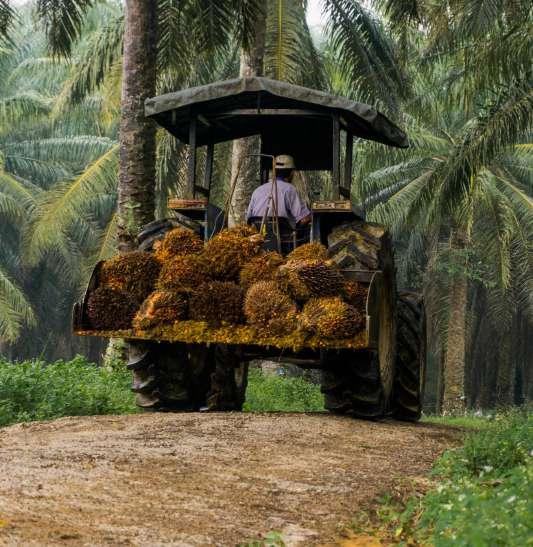
Current shifts towards more socially equitable and environmentally friendly modes of palm oil production in Indonesia seem to be motivated by external pressure rather than genuine internal sustainability concerns. Making the sustainability transition permanent and tangible rather than temporary and superficial is an ongoing challenge.
Palm oil is the cheapest, most produced, and most consumed vegetable oil in the world. However, palm oil production has been linked to various unsustainable environmental and social practices. As palm oil plantations grow well in tropical climates, major production centres are located largely in heavily forested countries in the global South. The recent palm oil boom has therefore coincided with periods of intense deforestation. In addition, there have been highly publicised cases of child labour and worker abuse on plantations.
Indonesia is the world’s largest palm oil producer, producing around 59 percent of all palm oil in the world. It is also the world’s largest consumer of palm oil. Out of the 51.3 million tonnes of palm oil produced in Indonesia in 2022, around 35 percent was consumed domestically, and 65 percent was exported. The major destination countries of Indonesian palm oil are India, China, and Pakistan. However, as a group, the European Union is the second largest importer of Indonesian palm oil.
Within Indonesia, various civil society groups have tried to bring attention to local negative externalities of the sector like transboundary haze pollution from peat fires and native customary land conflicts. However, these issues are often overshadowed by nationalistic creeds supported by domestic campaigns like “Sawit Baik” (Palm Oil is Good), which promote palm oil as Indonesia’s “golden crop” a mechanism for poverty alleviation among rural populations and an important source of GDP
Black Campaigns: Is All Palm Oil Bad?
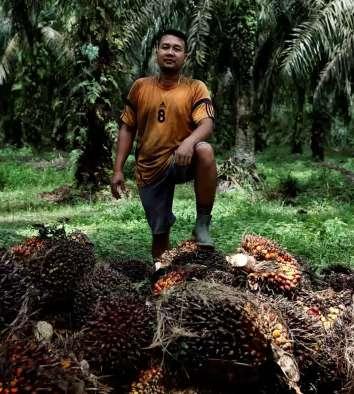
The sustainability of Indonesia’s palm oil first became a global issue in the early 2000s when mainly global North-based non-governmental organisations (NGOs) launched campaigns to encourage consumers to boycott products that contained palm oil. Using the plight of charismatic species like the orangutan losing their tropical forest homes, they promoted the idea that palm oil was a “dirty” oil. The consumer pressure was so great that several major palm oil buyers like Burger King, Unilever, and Nestle had to cancel their contracts with palm oil suppliers in the global South.
The Indonesian government responded harshly to these boycotts, describing them as “black campaigns” by foreign agents in the global North who were set on keeping Southern countries like Indonesia poor and underdeveloped while protecting the markets of their own oilseeds.
Over time, NGOs like Greenpeace and World Wide Fund refined their campaigns to target only unsustainably produced palm oil. Boycotts, they realised, were not a good strategy as palm oil is the most efficient vegetable oil for land use. Moving away from palm oil would only shift deforestation and land pressures elsewhere; to other less land-efficient oilseeds like sunflower and rapeseed.
In recognition of this concession, Indonesia began to align its industry with the sustainable palm oil movement in what can be regarded as the real beginning of its sustainability transition in this sector. Indonesia’s industry association, GAPKI, joined the Roundtable for Sustainable Palm Oil, and Indonesia created its own mandatory certification system, the Indonesian Sustainable Palm Oil (ISPO). Jakarta also made several drastic industry changing policy decisions, like declaring a moratorium on new palm oil plantation permits and peat land use change (a land use type closely associated with palm oil) to give the sector time and space to shift towards more sustainable modes of production.
Palm Oil Today Indonesia July - September 2023 www.indopalmoil.com 34 SUSTAINABILITY NEWS
Convincing the North: Palm Oil Can Be Good!
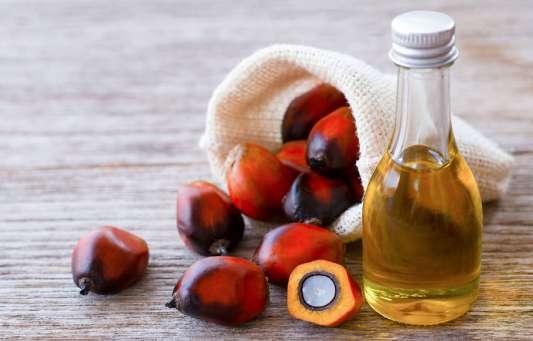

However, earlier campaigns had already severely soiled the reputation of palm oil worldwide, and many consumers remain under the impression that all palm oil is “bad.” Hence, even though corporate buyers were demanding certified sustainable palm oil, they often could not justify paying the premium asking price due to low consumer interest. As a result, a lot of certified sustainable palm oil is sold at non-premium prices, which means producers have to absorb the higher costs associated with more sustainable modes of production. This and other factors led to the decision of GAPKI to quit RSPO in 2011.
Anti-palm oil sentiments also trickled upwards into the policy making space. The European Union put in place several regulations like the Renewable Energy Directive II (RED II) and the European Union Deforestation-Free Regulation (EUDR), which, while do not explicitly target palm oil, make it increasingly difficult for palm oil to be imported into the European Union.
Indonesia again responded critically to these developments. It filed a WTO lawsuit against the European Union on RED II, which it describes as discriminatory. The lawsuit is still pending a decision. Indonesia also founded, together with Malaysia, the Council of Palm Oil Producing Countries (CPOPC) to, among other objectives, push back against such trade impediments in a coordinated manner.
Supporting Indonesia’s Sustainability Journey
Sustainability is a journey and does not happen overnight. It is extremely challenging for a huge country like Indonesia to facilitate sustainability transitions in such a massive sector, especially since such transitions work against traditional developmental prerogatives. However, consumers and governments in the global North remain suspicious of Indonesia’s efforts and achievements towards more sustainable modes of production in the palm oil sector and continue to shift sustainability goalposts. Market access remains threatened.
The fact remains that such markets are not the only, nor the most important, importers of Indonesian palm oil. Indonesia’s other (often bigger) major importers China, India, and Pakistan are notably less concerned about sustainability. Lack of support from the global North runs the risk of Indonesian producers eventually losing interest in pursuing these markets and shifting to focus on other, less sustainability-concerned markets. Clawbacks are already beginning to occur within the country’s palm oil industry policy space, like the palm oil moratorium, which expired in 2022 without a clear extension or replacement. Furthermore, Indonesia has been focusing more on shoring up the domestic palm oil market through domestic trade and biofuel policies to hedge against global market access issues.
Sustainability-conscious importers, like the European Union and the USA, thus have an important role to play in supporting Indonesia on its sustainability journey. External market support is extremely important as it will provide the financial incentive to bolster the transition in the immediate term. Such support may also help to encourage Indonesia to genuinely internalise sustainability concerns to the long-term benefit of Indonesia and the world.
Dr Helena Varkkey is an Associate Professor of Environmental Politics and Governance at Universiti Malaya, Malaysia. Her areas of expertise include transboundary haze governance in Southeast Asia and global palm oil politics. She was conferred a PhD from the University of Sydney, Australia, in 2013. Her PhD monograph, “The Haze Problem in Southeast Asia: Palm Oil and Patronage”
www.indopalmoil.com
35 SUSTAINABILITY NEWS
MODEL PENGEMBANGAN KELAPA SAWIT YANG BERKELANJUTAN UNTUK PAPUA
Jakarta - Karena perkebunan kelapa sawit dapat menjadi kontributor signifikan bagi mata pencaharian masyarakat pedesaan di Indonesia, pemerintah telah memanfaatkan komoditas ini dan memperkuat posisi Indonesia sebagai produsen minyak kelapa sawit terbesar di dunia dengan memperluas perkebunan. Karena lahan untuk investasi perkebunan baru semakin langka di Kalimantan dan Sumatera, para pengembang perkebunan melirik Papua sebagai sumber tanah. Minat yang semakin meningkat dalam pengembangan perkebunan kelapa sawit di Papua menawarkan peluang yang berpotensi, namun juga tantangan.
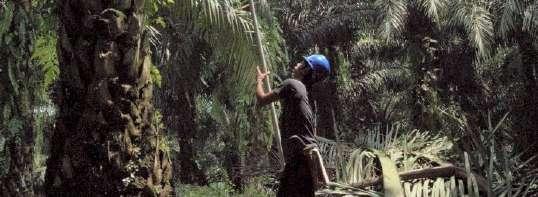
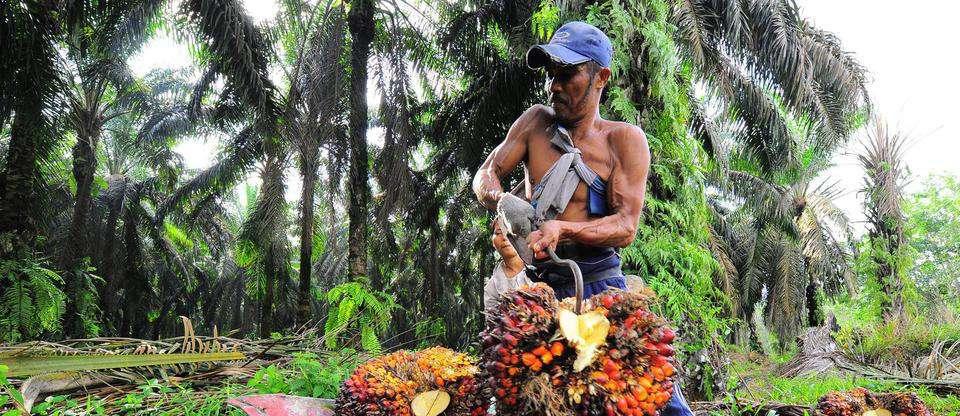
Pengembangan perkebunan di Papua telah membuka daerah-daerah terisolasi, mendorong pembangunan infrastruktur, menciptakan lapangan kerja, dan meningkatkan pendapatan pekerja. Namun, ketergantungan masyarakat adat terhadap hutan sebagai sumber kehidupan subsisten dan kurangnya pemahaman tentang kelapa sawit sebagai tanaman komersial menjadi hambatan besar dalam perekrutan dan keterlibatan mereka secara efektif dalam industri ini.
Selain itu, keengganan perusahaan untuk menerapkan skema perkebunan inti dan plasma (Nucleus Estate and Smallholder/NES) juga telah membatasi keterlibatan masyarakat lokal, meningkatkan kesenjangan dan seringkali menyebabkan ketegangan dalam proses perolehan lahan dan ketidakpuasan terhadap kompensasi yang rendah. Banyaknya pekerja migran yang dibawa untuk bekerja di perkebunan juga menjadi sumber konflik dengan penduduk setempat.
Perluasan perkebunan di Papua, yang semakin dipercepat dan sering kali berlebihan di bawah otonomi daerah sejak Papua sekarang terbagi menjadi enam administrasi provinsi, telah menyebabkan deforestasi dan dampak lingkungan negatif lainnya, seperti kualitas air yang buruk, polusi udara, dan erosi tanah. Kurangnya pengawasan oleh publik dan media utama terhadap perkembangan di Papua, serta jarak wilayah tersebut dari pengawasan Jakarta, dapat membuat situasi menjadi tidak terkendali.
Sebelum kerusakan menjadi tidak terkendali, pemerintah pusat harus melakukan intervensi untuk memperkenalkan rencana pengembangan berkelanjutan yang holistik sejajar dengan wilayah lain di Indonesia. Papua, wilayah yang paling tertinggal di negara ini, membutuhkan program pengembangan sosial ekonomi yang teruji dengan baik di mana kelapa sawit dapat memberikan manfaat bagi penduduk Papua yang besar dan menjaga perdamaian yang berlangsung lama di wilayah tersebut.
Menurut data tahun 2021 dari World Resource Institute (WRI), luas total Papua adalah 41,3 juta hektar, yang mencakup 36 juta hektar kawasan hutan, atau 87 persen dari luas tanah di wilayah tersebut. Kawasan hutan dominan di Papua berarti wilayah ini dianggap sebagai kawasan khusus dengan tutupan hutan tinggi (High Forest Cover Landscape/HFCL), sebuah istilah yang dicetuskan oleh Pendekatan Persediaan Karbon Tinggi (High Carbon Stock Approach/HCSA) untuk wilayah dengan tutupan hutan lebih dari 80 persen.
Menurut Kementerian Pertanian, terdapat 29 kontrak perkebunan kelapa sawit aktif di Papua dengan total luas 225.000 hektar, atau 0,5 persen dari luas total Papua, bagian yang tidak signifikan dari total perkebunan nasional sekitar 16 juta hektar. Luas kawasan konsesi yang telah diizinkan sekitar 1 juta hektar dan akan lebih besar jika tidak diambil langkah-langkah drastis pada tahun 2021, ketika pemerintah Provinsi Papua Barat mencabut 16 izin konsesi yang mencakup luas 340.000 hektar. Namun, karena hampir semua perkebunan kelapa sawit di wilayah ini dikelola oleh perusahaan, produksi kelapa sawit rata-rata di Papua 20 persen lebih tinggi daripada di bagian lain Indonesia. Ini berarti Papua memiliki tingkat produktivitas tertinggi dan lokasi terbaik untuk pengembangan kelapa sawit di dunia. Papua perlu diberikan kesempatan yang sama untuk berkembang dan tumbuh secara ekonomi. Peluang pengembangan Papua dapat sepenuhnya dimanfaatkan jika industri kelapa sawit lokal dikembangkan dengan cara yang berkelanjutan, dengan memperhatikan karakteristik sosial budaya unik wilayah ini.
Franki Samperante dari Yayasan Pusaka, sebuah organisasi non-pemerintah terkemuka di Papua, mencatat bahwa pengembangan kelapa sawit di Papua harus dilakukan dengan sangat menghormati hukum adat dan melindungi kepentingan masyarakat adat Papua, pekerja, dan keberlanjutan lingkungan. Pengembangan kelapa sawit juga harus mengurangi dampak sosial dan lingkungan yang negatif. Ia menekankan perlunya perubahan kebijakan untuk mencakup program pengembangan berbasis masyarakat yang memberikan prioritas pada keputusan dan mata pencaharian masyarakat Papua.
www.indopalmoil.com 36 SUSTAINABILITY NEWS
“Berbeda dengan Sumatra dan Kalimantan yang telah mengalami perkembangan berlebihan, Papua masih menawarkan peluang luas untuk perkebunan baru, asalkan dilakukan secara berkelanjutan dengan mengambil pelajaran dari kesalahan masa lalu.”
Berbeda dengan Sumatera dan Kalimantan yang telah mengalami perkembangan berlebihan pada perkebunan kelapa sawit, tanah yang subur di Papua masih menawarkan peluang luas untuk perkebunan baru, asalkan dilakukan secara berkelanjutan dan mengambil pelajaran dari kesalahan masa lalu. Oleh karena itu, pemerintah harus memastikan bahwa penerapan legislasi Uni Eropa tentang deforestasi tidak seketat dan keras seperti di Sumatera dan Kalimantan jika tidak, Papua akan semakin tertinggal dalam pengembangan.
Sebaliknya, pemerintah perlu mengawasi dengan cermat pengembangan platform pengembangan berkelanjutan di Papua sebagai HFCL untuk menjaga keseimbangan antara perlunya melestarikan hutan di wilayah tersebut tanpa mengorbankan tujuan keberlanjutan. Konsep pengembangan kelapa sawit di HFCL bukanlah hal baru. HCSA telah mencoba mengembangkan kerangka kerja, tetapi belum diuji atau diadopsi.
Mengingat urgensi yang muncul untuk strategi pembangunan baru di Papua guna mempercepat pembangunan wilayah tersebut menuju kemakmuran dan perdamaian yang baru, pemerintah harus proaktif dalam merumuskan kerangka kerja regional tentang pengembangan kelapa sawit berkelanjutan untuk Papua sebagai opsi pembangunan yang paling layak, yang mencakup tiga strategi.
Pertama, melakukan penilaian ulang penggunaan lahan di Papua secara menyeluruh yang mencakup wilayah dan lanskap, dibagi menjadi dua kategori utama yaitu stok karbon
dan kawasan konservasi hutan dan pembangunan berkelanjutan dengan ketentuan-ketentuan khusus, di mana beberapa tingkat pengembangan yang terkendali dapat diizinkan sambil tetap menjaga stok karbon tinggi (HCS) dan nilai konservasi tinggi (HCV).
Kedua, merancang dan mengadopsi rencana pengembangan kelapa sawit berkelanjutan untuk Papua sebagai HFCL. Kerangka kerja ini harus memuat kondisi-kondisi untuk budidaya kelapa sawit yang berkelanjutan yang mencakup tujuan konservasi lingkungan, pembangunan wilayah, dan kesetaraan sosial.
Ketiga, mengevaluasi ulang dan membatasi budidaya kelapa sawit agar sepenuhnya mematuhi standar keberlanjutan. Pengembangan kelapa sawit baru di kawasan konsesi yang ada seluas 1 juta hektar harus dipantau dengan ketat, dengan memberikan prioritas kepada petani kelapa sawit kecil.
Terakhir, kita perlu mendidik dan meyakinkan pasar bahwa pengembangan kelapa sawit yang seimbang dan berkelanjutan di Papua untuk kemakmuran wilayah tersebut harus diizinkan, dan bahwa perubahan tutupan lahan yang terkendali harus dikecualikan dari label deforestasi.
A SUSTAINABLE PALM OIL DEVELOPMENT MODEL FOR PAPUA
“Unlike Sumatra and Kalimantan, which have seen excessive development, Papua still offer wide opportunities for new plantations, as long as they are undertaken sustainably that take lessons from past mistakes.”
JAKARTA – As oil palm plantations can be a significant contributor to rural livelihoods in Indonesia, the government has been capitalizing on this commodity and strengthening Indonesia’s position as the global leader in palm oil production by expanding plantations. As land for new plantation investment has become scarce in Kalimantan and Sumatra, plantation developers are looking east to acquire land in Papua. The growing interest in developing oil palm plantations in Papua presents potential opportunities, but also challenges.
Plantation development in Papua has opened up isolated areas, stimulated infrastructure development, generated employment and improved workers’ incomes. However, the indigenous communities’ reliance on forests for subsistence and their lack of familiarity with oil palm as a cash crop have proven to be a major barrier to their employment and effective engagement in this industry.
Moreover, hesitation among companies to implement the nucleus estate and smallholder (NES) scheme has further limited the involvement of local communities, widening inequality and often causing tension over land acquisition processes and resentment over low compensation. The large number of migrant workers brought in to work at plantation estates is also a source of conflict with the local population.
Plantation expansion in Papua, which has been accelerated further and has often been excessive under regional autonomy since Papua is now administratively divided into six provincial administrations, has caused deforestation and other negative environmental impacts, such as poor water quality, air pollution and soil erosion. Lack of scrutiny by public and mainstream media on Papua development, and the region’s distance from Jakarta’s oversight, could make things go out of control.
Before the damage becomes uncontrollable, the central government should intervene to introduce a holistic sustainable development plan on a par with other regions in Indonesia. Papua, the least developed region on the country, needs a well-tested socioeconomic development program through which palm oil can bring benefits to the large Papuan population and maintain lasting peace in the region.
According to 2021 data from the World Resource Institute (WRI), Papua’s total landmass is 41.3 million hectares, which includes 36 million hectares of forest area, or 87 percent of the region’s landmass. Papua’s dominant forest area means it is considered as a special region of high forest cover landscape (HFCL), a term coined by the High Carbon Stock Approach (HCSA) for regions with more than 80 percent forest cover.
Palm Oil Today Indonesia July - September 2023 www.indopalmoil.com
37 SUSTAINABILITY NEWS
According to the Agriculture Ministry, there are 29 active palm oil concessions in Papua totaling 225,000 hectares, or 0.5 percent of Papua’s landmass, an insignificant portion of the national plantation acreage of around 16 million ha. Licensed concession areas total around 1 million ha and would have been larger if no drastic measures were taken in 2021, when the West Papua administration revoked 16 concession permits totaling 340,000 ha.
But since virtually all oil palm plantations in the region are managed by companies, average palm oil production is 20 percent higher than in other parts of Indonesia. This means Papua has one of the highest productivity rates and the best sites for palm oil development in the world.
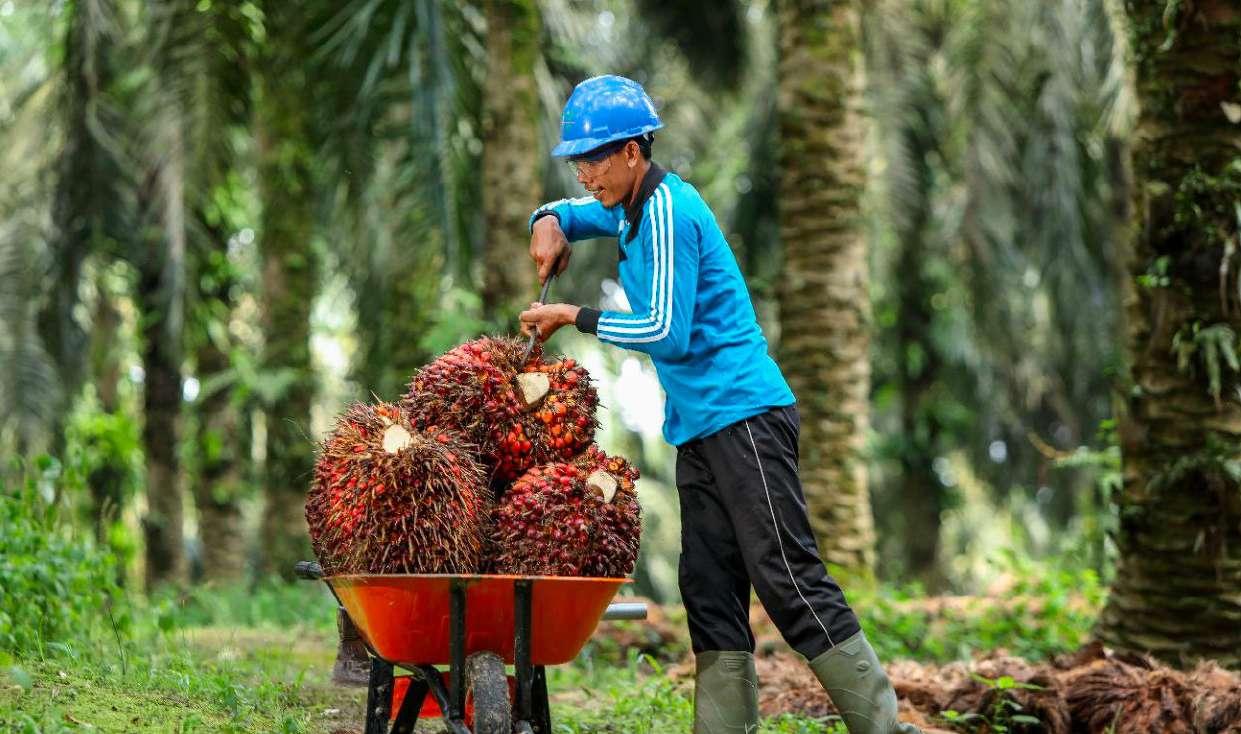
Papuans need to be given equal opportunity to develop and thrive economically. Its development opportunity can be fully tapped if the local palm oil industry is developed in a sustainable manner, taking into account the region’s unique sociocultural characteristics.
Franki Samperante of Yayasan Pusaka, a prominent nongovernmental organization in Papua, noted that oil palm development in Papua must be conducted in a way that highly respects customary laws and protects the interest of indigenous Papuans, workers and environmental sustainability. Palm oil development must also mitigate negative social and environmental impacts. He highlighted the need for policy changes to include community-based development programs that prioritized the decisions and livelihood of the Papuan people.
Unlike Sumatra and Kalimantan, which have seen excessive development of oil palm estates, Papua’s rich lands still offer wide opportunities for new plantations, as long as they are undertaken in a sustainable manner that take lessons from past mistakes. The government should therefore see to it that the upcoming enforcement of the European Union’s deforestation legislation should not be as rigid and tough as in Sumatra and Kalimantan; otherwise, Papua would be left behind even further in development.
The government instead needs to closely oversee the development of a sustainable development platform in Papua as an HFCL to balance the need for conserving the region’s forests without compromising the sustainability goals. The concept of palm oil development in HFCL is not new. The HCSA has been attempting to develop a framework, but it has been neither tested nor adopted.
In view of the emerging urgency for a new Papua development strategy to accelerate the region’s development toward prosperity and rebuilding peace, the government must be proactive in formulating a regional framework on sustainable palm oil development for Papua as the most viable development option, and which includes three strategies.
First, conduct a region- and landscape-wide reassessment of land use in Papua, to be divided into the two main categories of carbon stock and forest conservation and sustainable development areas with specific provisions, where some level of controlled development can be permitted while maintaining high carbon stock (HCS) and high conservation value (HCV).
Second, design and adopt a sustainable palm oil development plan for Papua as an HFCL. The framework should lay out the conditions for sustainable oil palm cultivation that incorporates the goals of environmental conservation, regional development and social equity.
Third, reevaluate and restrict oil palm cultivation so it is in full compliance with sustainability standards. New oil palm developments at the existing concession areas covering 1 million ha must be monitored strictly, with priority given to oil palm smallholders.
Finally, we need to educate and convince the market that balanced and sustainable palm oil development in Papua for the region’s prosperity must be allowed, and that controlled land cover change should be exempted from the deforestation label.
www.indopalmoil.com
38 SUSTAINABILITY NEWS

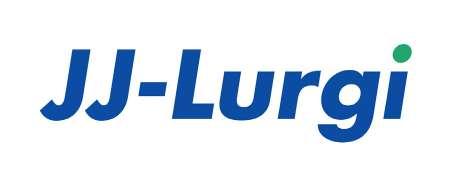
Palm Oil Today Indonesia July - September 2023 www.indopalmoil.com
Meskipun Terdapat Laporan tentang Tren Positif, Industri Minyak Kelapa Sawit Masih Berjuang
Dengan kurang dari setahun menuju target 2024 untuk mencapai swasembada minyak kelapa sawit di Nigeria, menjadi tidak realistis bagi sebuah negara yang pernah menduduki posisi unggul sebagai eksportir utama produk tersebut untuk kembali ke posisi yang membanggakan yang telah dicapainya, mengingat kapasitas produksi saat ini. Bahkan para pemangku kepentingan di industri ini menyatakan keraguan bahwa proyeksi tersebut hanya merupakan pernyataan politik, akademis, dan tidak realistis, mengingat faktor-faktor yang mengelilingi perkembangan kelapa sawit di negara ini.
Gubernur Bank Sentral Nigeria (CBN), Godwin Emefiele, yang membuat pernyataan kebijakan tersebut pada tahun 2019 dalam pertemuan pemangku kepentingan mengenai Rantai Nilai Minyak Kelapa Sawit di Abuja, menunjukkan kemungkinan untuk mencapai swasembada minyak kelapa sawit di negara ini antara tahun 2022 dan 2024, dan pada akhirnya melampaui Thailand dan Kolombia untuk menjadi produsen terbesar ketiga. Beliau berjanji untuk mendukung peningkatan produksi minyak kelapa sawit untuk memenuhi kebutuhan pasar domestik dan juga meningkatkan ekspor untuk meningkatkan pendapatan devisa.
Saat ini, Nigeria menduduki posisi kelima dalam daftar negara produsen minyak kelapa sawit, dengan 1,5 persen atau 1,03 juta metrik ton dari total produksi dunia, menurut Departemen Pertanian Amerika Serikat (USDA). Nigeria menjatuhkan sebagai produsen minyak kelapa sawit terbesar di dunia oleh Malaysia dan Indonesia pada tahun 1966. Dari posisinya yang unggul sebagai eksportir utama produk tersebut, negara ini sekarang menjadi pengimpor bersih, sangat bergantung pada negara lain untuk memenuhi defisit pasokan yang besar selama bertahun-tahun.
Saat ini, Nigeria adalah konsumen terbesar produk tersebut di benua Afrika, dengan konsumsi sekitar 2,5 juta metrik ton setiap tahunnya, sementara produksi domestik hanya sekitar 1,3 juta metrik ton, meninggalkan defisit lebih dari 1,2 juta metrik ton, menurut Presiden Asosiasi Produsen Minyak Kelapa
Sawit Nasional Nigeria (NPPAN), Alphonsus Inyang.
Saat ini, Nigeria adalah konsumen terbesar produk tersebut di benua Afrika, dengan konsumsi sekitar 2,5 juta metrik ton setiap tahunnya, sementara produksi domestik hanya sekitar
1,3 juta metrik ton, meninggalkan defisit lebih dari 1,2 juta metrik ton, menurut Presiden Asosiasi Produsen Minyak Kelapa Sawit Nasional Nigeria (NPPAN), Alphonsus Inyang. “Beberapa statistik menyatakan bahwa kami mengkonsumsi lebih dari tiga juta metrik ton, tetapi yang kami tahu adalah impor kelapa sawit berkisar antara $500 hingga $600 juta setiap tahun,” ujar Inyang kepada The Guardian.
Jika sinyal saat ini mengenai kapasitas produksi dalam negeri menjadi acuan, ada indikasi bahwa narasi tersebut mulai berubah karena produksi minyak kelapa sawit di negara ini sedang meningkat berkat kebijakan integrasi ke belakang.
Penelitian mengungkapkan bahwa sebagian besar produsen kelapa sawit terkemuka, yang sebelumnya hanya melakukan pengolahan, kini berinvestasi dan mengembangkan perkebunan besar, memanfaatkan kebijakan integrasi ke belakang.
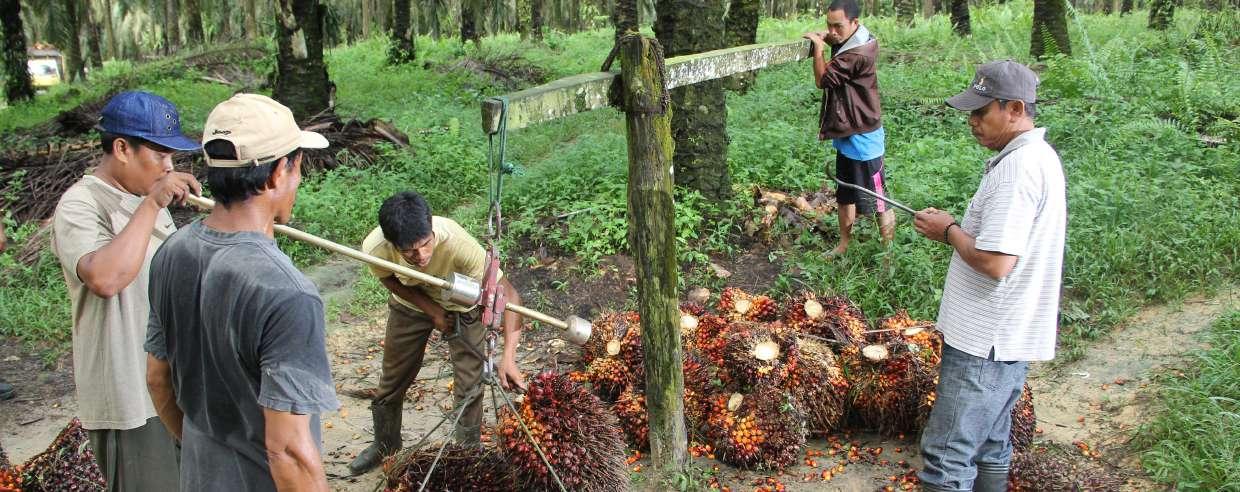
Menurut mantan sekretaris eksekutif Forum Pemilik Perkebunan Nigeria (POFON), Fatai Afolabi, para pemain yang sudah ada di industri ini juga telah melipatgandakan perkebunan mereka dan meningkatkan produksi hingga 100 persen dibandingkan dengan status mereka lima tahun yang lalu. Harapan baru ini muncul berkat laporan bahwa impor minyak kelapa sawit mentah Nigeria dari Malaysia salah satu produsen kelapa sawit terbesar kedua di dunia mengalami penurunan sebesar 34,7 persen, sementara produksi lokal meningkat berkat peningkatan investasi. Menurut data dari Dewan Minyak Kelapa Sawit Malaysia (MPOC), impor minyak kelapa sawit mentah (CPO) Nigeria dari Malaysia turun dari 262.065 metrik ton pada sembilan bulan pertama tahun 2021 menjadi 171.011 metrik ton pada periode yang sama di tahun 2022.
Mantan Presiden Nasional NPPAN, Henry Olatujoye, yang mengkonfirmasi tren positif ini kepada The Guardian, mengatakan bahwa kondisi saat ini di industri ini adalah positif. Ia mengaitkan perkembangan ini dengan kebijakan Pemerintah Federal yang bertujuan untuk mengubah ekonomi negara dari ketergantungan berat pada ekspor minyak menjadi sektor non-minyak. “Nigeria melihat perlunya untuk mengembangkan lebih banyak perkebunan. Saat ini, laju konversi hutan menjadi perkebunan kelapa sawit telah meningkat secara signifikan, dan saya dapat dengan tegas mengatakan bahwa kita telah menambah sekitar 100.000 hektar lagi untuk konversi hutan menjadi perkebunan, terutama di negara bagian Edo dan Ondo. “Ondo telah memberikan sekitar 75.000 hektar area hutan yang telah ditebang untuk pengembangan perkebunan dalam kebijakan Red Gold-nya. Edo State juga melakukan hal yang sama, sekitar 50.000 hektar tanah telah disediakan untuk pengembangan perkebunan. Jadi, secara umum, laju pengembangan perkebunan kelapa sawit di Nigeria tinggi dan itu akan meningkatkan produksi minyak kelapa sawit. Jadi, jika kita mendapatkan data dengan benar, kita akan segera mencapai dua juta ton produksi minyak kelapa sawit di Nigeria.”
www.indopalmoil.com
40 COVER STORY
Selain negara bagian Edo dan Ondo, minyak kelapa sawit umumnya ditemukan di Nigeria bagian selatan, terutama di negara bagian Rivers, Cross River, Akwa Ibom, Imo, Anambra, Ebonyi, Abia, Enugu, Ebonyi, Delta, dan negara-negara di Sabuk Savana, antara lain. Minyak kelapa sawit juga ada di bagian basah Nigeria Tengah, seperti Southern Kaduna, Kogi, Kwara, Benue, Niger, Plateau, Taraba, Nasarawa, dan juga di Wilayah Ibukota Federal.
Namun, sementara belum terlalu banyak kabar dari negara-negara bagian di utara, rekan-rekan mereka di selatan, terutama gubernur-gubernur di Tenggara dan pemangku kepentingan, telah meningkatkan upaya mereka untuk menjadikan minyak kelapa sawit sebagai sumber pendapatan dan pemain utama dalam penerimaan devisa. Sebagai contoh, di negara bagian Ebonyi, para petani, penggiling, dan pengolah dari 13 dewan lokal yang memproduksi minyak kelapa sawit telah meningkatkan upaya untuk meningkatkan aktivitas pengolahan kelapa sawit mulai dari pembibitan, perkebunan, penggilingan minyak, pemasaran, dan rantai nilai kelapa sawit terkait lainnya.
Laporan menyebutkan bahwa negara-negara bagian lain di wilayah tersebut juga mengikuti jejak tersebut, terutama sekarang ketika sebagian besar negara bagian tersebut melihat ke arah mengurangi ketergantungan total pada alokasi dari Pemerintah Federal. Namun, meskipun tren positif ini di sektor tersebut, harga komoditas tersebut telah melonjak secara astronomis, sehingga beberapa rumah tangga saat ini kesulitan untuk membelinya.
Berdasarkan survei pasar The Guardian di negara bagian Lagos, Ogun, Oyo, dan Osun, harga satu liter minyak kelapa sawit saat ini lebih tinggi daripada satu liter Premium Motor Spirit (PMS). Sementara satu liter PMS berada antara N184 dan N350, satu liter minyak kelapa sawit berada di kisaran N1.160 dan N1.200. Di Pasar Ile-Epo yang terkenal, Oke-Odo, Agege, Lagos, sebotol minyak kelapa sawit berukuran 75cl sekarang dijual antara N1.000 dan N1.200, sedangkan pada tahun 2018, harganya berkisar antara N400 dan N500. Selain itu, galon berukuran lima liter saat ini dijual antara N5.800 dan N6.600, dibandingkan dengan harga sebelumnya sekitar N2.500 dan N3.000. Harga yang sama juga terlihat di Pasar Mile 12, Agege, Ojuwoye, dan Oja Oba. Di negara bagian Ogun, mulai dari pasar Ifo, Arigbajo, Itori, Wasinmi, Lafenwa hingga pasar Kuto, sebotol minyak kelapa sawit saat ini dijual seharga N1.000, sementara sebuah galon dijual antara N5.800 dan N6.000, sama seperti di pasar di negara bagian Oyo dan Osun.
Kepala Program IDH NISCOPS Minyak Kelapa Sawit Nigeria, Dr. Chris Okafor, yang mengatakan bahwa keseimbangan antara permintaan dan pasokan bertanggung jawab atas kenaikan harga, menyatakan bahwa kesenjangan yang besar antara pasokan dan permintaan adalah masalah besar, dan selama permintaan melebihi pasokan, harga masih akan mencerminkan hal tersebut. Dalam hal ini, Olatujoye juga menghubungkan peningkatan harga dengan defisit pasokan yang diperparah oleh ledakan populasi, serta peningkatan penggunaan industri. “Minyak kelapa sawit selalu memiliki harga yang lebih tinggi dibandingkan produk petroleum hal ini disebabkan oleh populasi, yang menyebabkan peningkatan penggunaan industri dan konsumsi. “Melihat perang Ukraina-Rusia dan era pandemi COVID-19, yang mengganggu rantai pasokan begitu banyak komoditas dan menurunkan nilai naira terhadap dolar, jelas mengapa kita mengalami kenaikan harga. Apa yang kita nikmati saat ini adalah keuntungan lokal, yang tidak berkelanjutan. “Jika produksi meningkat, harga pasti akan turun. Saat ini, situasinya tidak seperti itu, ada kesenjangan antara populasi dan konsumsi. Saat ini, produksi rendah, konsumsi tinggi. Tentu saja pasokan akan rendah dan itu akan meningkatkan harga produk.”
Menurut Inyang, harga komoditas yang penting ini tinggi karena minyak kelapa sawit sangat dibutuhkan di negara untuk konsumsi domestik dan penggunaan industri. “Tidak ada Unilever tanpa minyak kelapa sawit, tidak akan ada mie tanpa minyak kelapa sawit - ada lebih dari 10 merek mie instan di negara ini, minyak kelapa sawit membentuk lebih dari 45 persen bahan baku yang dibutuhkan untuk industri mie instan. “Semua orang membutuhkan minyak kelapa sawit termasuk Presiden, tetapi ketika datang ke pembuatan kebijakan tentang produk ini, terdengar seperti komoditas dari satu desa, tetapi mereka mengonsumsinya setiap hari. Tidak ada cokelat yang bisa dijual di rak tanpa minyak kelapa sawit, bahkan kosmetik, semua perusahaan ini dipasok dari Indonesia, Malaysia, dan Kolombia, kesenjangan ada di sana, sekitar 50 persen impor masuk ke negara.”

Untuk secara paksa menutup kesenjangan defisit, penelitian The Guardian menunjukkan bahwa beberapa pedagang minyak kelapa sawit telah resort ke pemalsuan. Minyak palsu tersebut dilaporkan lebih murah. Dipahami bahwa pelaku telah mulai mencampur minyak kelapa sawit asli dengan bahan-bahan lain untuk memaksimalkan keuntungan, dengan mengorbankan kesehatan pembeli yang tidak curiga. Seperti yang dikumpulkan, ketika pewarna dicampur dengan air dan ditambahkan ke minyak kelapa sawit asli, hal itu meningkatkan warna merahnya, menciptakan kesan bahwa kualitasnya lebih baik daripada minyak lain di pasaran. Selanjutnya diketahui bahwa permintaan untuk ‘minyak berbahaya’ ini meningkat karena warnanya yang kaya dan daya tariknya, karena pembeli lebih memilihnya daripada minyak asli.
Mantan Presiden NPPAN mengatakan setidaknya 60 persen minyak kelapa sawit di pasar di seluruh negeri dicampur. “Pencampuran minyak kelapa sawit masih terus berlanjut di seluruh Nigeria. Mereka bahkan telah melampaui pencampuran magenta pewarna merah tua, dengan minyak kelapa sawit untuk meningkatkan warnanya. Orang sekarang bahkan memperbaiki dengan mencampur bahan kimia dan menuangkannya ke dalam minyak kelapa sawit agar terlihat lebih berminyak. “Ada beberapa tingkat pencampuran di mana orang mencampur lumpur minyak industri yang digunakan untuk membuat sabun. Ini tidak dibuat untuk dikonsumsi tetapi orang masih mencampurnya dan mencampurnya dengan minyak kelapa sawit untuk meningkatkan volumenya. Jadi, jika Anda tidak tahu, Anda hanya akan membelinya dan mulai memakannya. Jadi, tingkat adopsi dan penggunaannya saat ini sangat tinggi.”
Palm Oil Today Indonesia July - September 2023 www.indopalmoil.com
41 COVER STORY
Pada tahun 2017, Korps Keamanan dan Pertahanan
Sipil Nigeria (NCDSC) menangkap beberapa pemasok minyak kelapa sawit di Potiskum dan Jos, Yobe dan Plateau, masingmasing, karena diduga mencampur minyak kelapa sawit dengan pewarna. Penangkapan mereka mengungkap lebih banyak fakta dan penyitaan sampel, yang setelah diuji di laboratorium oleh Badan Nasional Pengawas Obat dan Makanan (NAFDAC), menunjukkan adanya jejak asam tinggi, saponifikasi tinggi, dan densitas relatif tinggi. Kemudian, koordinator NAFDAC di negara bagian itu, Lawal Musa Dadingelma, mengonfirmasi bahwa sampel minyak kelapa sawit yang dicampur mengandung pewarna, yang mampu menyebabkan kanker ketika terendap di dalam tubuh manusia.
Melanjutkan, Olatujoye mengatakan: “Anda tahu dalam setiap lingkungan bisnis, selalu ada sisi gelapnya. Satu-satunya hal yang dapat kita lakukan adalah meningkatkan kesadaran di kalangan konsumen dan melakukan lebih banyak pelatihan agar orang memahami bahwa saat mencari minyak kelapa sawit berkualitas tinggi, ini adalah parameter-parameternya.
“Pertama-tama, salah satu parameter adalah melihat botolnya. Jika itu adalah botol PET, setelah Anda mengocoknya dengan baik dan biarkan mengendap, jika itu adalah minyak kelapa sawit yang baik, maka akan mengalir lancar tanpa noda residu di botol. Tetapi jika palsu, Anda akan melihat beberapa noda pada botol, menunjukkan bahwa itu sebenarnya adalah minyak kelapa sawit yang buruk. Jadi, kita perlu meningkatkan kesadaran, pelatihan, dan pengulangan pelatihan bagi orangorang, dan kemudian memberikan informasi lebih banyak kepada konsumen agar mereka memahami cara mendeteksi minyak kelapa sawit palsu dan yang baik.”
Sambil menyesali penurunan nasib industri selama bertahuntahun, Inyang menyalahkan Pemerintah Federal dan Bank Sentral (CBN) karena kurang mengembangkan industri tersebut. “Mereka di antara kami yang telah dengan sungguhsungguh mengembangkan modal, sumber daya, dan dinamika untuk mengembangkan sektor ini tidak mendapatkan dukungan dari para pembuat kebijakan, CBN, dan Pemerintah Federal, dalam menjadikan minyak kelapa sawit sebagai tanaman prioritas di negara ini. “Setiap kali pemerintah mengumpulkan orang, mereka mengumpulkan mereka untuk membicarakan Malaysia dan Indonesia mereka telah melupakan bahwa negaranegara ini mengembangkan industri minyak kelapa sawit mereka. Di sana, minyak kelapa sawit adalah perekonomian, tetapi di sini, minyak kelapa sawit adalah industri bagi beberapa perempuan desa, yang mengolah dan menjual di pasar. Jadi, pemerintah perlu fokus pada industri ini. Ini adalah tanaman berpohon. Pada tanggal 2 Januari 2023, Ghana meluncurkan Otoritas Pengembangan Tanaman Pohon (TCDA) dipromosikan oleh pemerintah, tetapi sebagian besar dioperasikan atau dilaksanakan oleh sektor swasta. TCDA bertujuan untuk merawat lima tanaman pohon Kelapa, kelapa sawit, mentega shea, kacang mete, dan karet. Ini terjadi setelah keberhasilan Otoritas Pengembangan Kakao.membersihkan lahan.”
Di Nigeria, semua yang kita miliki hanya peduli pada tanaman pangan RUU Dewan Beras mungkin akan ditandatangani oleh presiden sebelum dia meninggalkan jabatan. Ada juga RUU Dewan Pengembangan Gula, kita tidak benar-benar memahami pentingnya minyak kelapa sawit sebagai pasar global. Ini adalah perekonomian global, yang merupakan tulang punggung ekonomi Indonesia ekonomi terbesar di Asia Tenggara, dan merupakan tulang punggung ekonomi Malaysia, ekonomi teratas lainnya, dan mereka menjadi pengusaha terbesar di kedua negara tersebut. “Anda akan terkejut mengetahui bahwa kedua negara tersebut sekarang tidak lagi menekankan pada minyak kelapa sawit mereka sekarang menekankan pada Biomassa Kelapa Sawit limbah yang dihasilkan dari pohon kelapa sawit itu sendiri, serat kelapa sawit, cangkang biji kelapa sawit, dan bagian-bagian lain dari pohon kelapa sawit yang telah diubah menjadi komoditas, karena pohon kelapa sawit adalah 90 persen biomassa dan 10 persen minyak kelapa sawit.”
Dia menyesalkan bahwa sementara orang Nigeria masih membicarakan minyak kelapa sawit, negara-negara itu telah melangkah lebih maju. “Jika Anda pergi ke kementeriankementerian, mereka bertindak seolah-olah mereka telah menanam satu pohon kelapa sawit dan akan membicarakan komoditas-komoditas yang belum ditanam. Mereka akan mengatur diri mereka sendiri dan pergi ke Malaysia, CBN akan melakukan hal yang sama dan kami para pemangku kepentingan, tidak terlibat dalam apa yang mereka lakukan. “CBN tidak pernah memberikan bantuan pembiayaan atau intervensi pengembangan ke sektor minyak kelapa sawit, meskipun telah ada berbagai perwakilan dan pertemuan dengan mereka. Mereka tampaknya membandingkan minyak kelapa sawit dengan beras, sorgum, kacang-kacangan, dan lain sebagainya, dengan mengatakan bahwa masa gestasi kita terlalu lama.”
“Kami mendengar bahwa Komite Bankir mengatakan bahwa mereka tidak dapat meninggalkan uang mereka di luar selama enam hingga tujuh tahun. Saya memimpin lebih dari 300 petani kelapa sawit skala kecil dan kami belum pernah melihat dukungan dari CBN. Sebagai bagian dari upaya mandiri, kami telah mengembangkan inisiatif satu keluarga, satu pohon kelapa sawit, untuk memiliki sesuatu yang dapat dijual di pasar; kami membutuhkan dorongan untuk mencapai kesuksesan yang diinginkan.”
Mengenai langkah ke depan, Olatujoye mengatakan negara perlu menggandakan upayanya dalam mengubah hutanhutan yang tidak produktif menjadi keuntungan ekonomi, seperti mengembangkan lebih banyak perkebunan dan meningkatkan produksi dan hasil. “Ini adalah teori ekonomi, begitu pasokan cukup di pasar, harga akan disesuaikan dengan kemampuan daya beli masyarakat. Satu-satunya hal yang bisa kita lakukan adalah memastikan bahwa kita meningkatkan kapasitas produksi kita.”
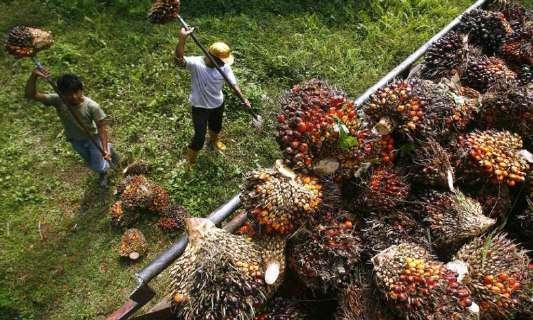
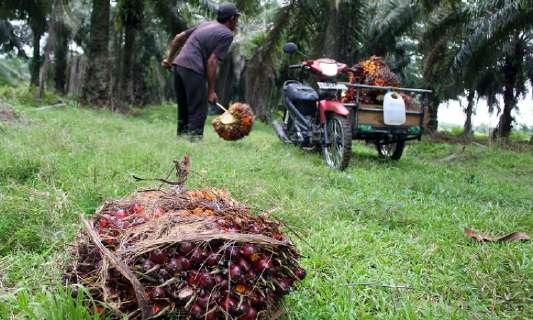
Palm Oil Today Indonesia July - September 2023 www.indopalmoil.com
42 COVER STORY
Pada bagian Inyang, ia menyerukan pendirian Dewan
Pengembangan Kelapa Sawit Nasional dan kebijakan untuk mendorong industri tersebut. “Saat ini, kami telah mencoba bertemu dengan Kementerian Perindustrian, Perdagangan, dan Investasi Federal untuk mengembangkan kebijakan dalam hal ini. Jadi, kami membutuhkan kerjasama pemerintah untuk mendapatkan arah kebijakan untuk menghidupkan kembali industri ini. “Kami tidak mengatakan jangan melakukan impor, ya lakukan impor, tetapi berikan beban, pungutan tambahan sebesar minimal 25 persen pada impor minyak kelapa sawit dan biarkan uang itu dialihkan kepada kami untuk digunakan dalam mengembangkan setidaknya 250.000 hektar kelapa sawit, sehingga uangnya akan kembali diarahkan ke integrasi kebelakang.”
Okafor mengatakan nasib industri bergantung pada investasi. “Apakah kita berinvestasi dalam pengembangan produksi kelapa sawit? Pertanian kelapa sawit di negara ini masih didominasi oleh petani skala kecil, apa yang mereka dapat untuk mengembangkan apa yang mereka lakukan? Mereka tidak dapat memperoleh pinjaman untuk menanam kembali kebun-kebun yang sudah tua, mereka tidak dapat memperoleh pinjaman mikro untuk pemeliharaan, baik untuk pendirian baru maupun penanaman kembali, sebagian besar dari mereka menghadapi tantangan besar karena tidak ada bank yang bersedia memberikan pinjaman selama 18 tahun. “Ketika manajer bank Anda bahkan tidak ingin memberikan
pinjaman selama lima tahun jadi, harus ada upaya yang disengaja dari pemerintah untuk mengembangkan sektor ini, dengan memberikan insentif kepada petani skala kecil untuk menanam kembali dan tentu saja ketika mereka menanam kembali hasilnya akan meningkat, produksi akan meningkat. “Kedua, saya telah berbicara tentang peningkatan hasil dan peningkatan produksi, bagaimana dengan pemrosesan untuk mendapatkan CPO. Petani kita masih menggunakan pabrikpabrik tua yang memberikan mereka kurang dari 10 persen minyak dan sisanya terbuang. Jadi, ini masalah investasi. Ini bukan masalah peningkatan harga ini adalah masalah di mana kekuatan pasar akan terus berlaku,” katanya.
Mantan Ketua Pertanian, Lagos State Chamber of Commerce and Industry (LCCI), Pangeran Wale Oyekoya, menyarankan pemerintah di semua tingkatan untuk membantu petani dan pemangku kepentingan dengan menyediakan lingkungan yang kondusif dengan infrastruktur yang lebih baik. “Dengan populasi yang meledak, kita perlu beralih ke pertanian mekanisasi, jika tidak, kita akan terus memperdaya diri bahwa semuanya baik-baik saja, padahal tidak. “Lebih banyak lembaga penelitian dengan pendanaan yang lebih baik akan meningkatkan produksi kita. Lebih banyak lahan pertanian untuk petani akan meningkatkan produksi kita yang didukung oleh peralatan modern dan buldoser untuk membersihkan lahan.”
DESPITE REPORTED POSITIVE TREND, PALM OIL INDUSTRY STILL STRUGGLING
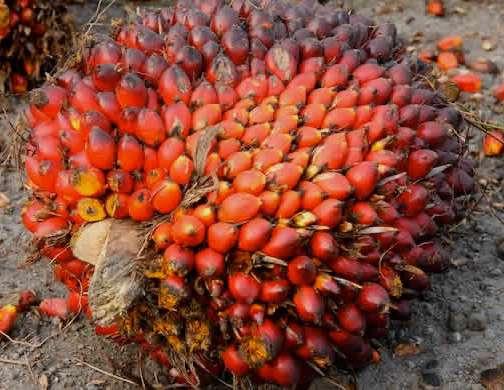
With less than a year to the 2024 target for Nigeria to attain self-sufficiency in palm oil, it is becoming unrealistic for a country, which once occupied the vantage position as the leading exporter of the produce to return to that enviable position it relinquished, going by the current production capacity. Even stakeholders in the industry have expressed reservations that the projection is a mere political statement, academic and unrealistic, considering factors surrounding oil palm development in the country.
The Governor of the Central Bank of Nigeria (CBN), Godwin Emefiele, who made the policy statement in 2019, at a stakeholders’ meeting on the Palm Oil Value Chain, in Abuja, pointed towards the possibility of making the country self-sufficient in palm oil between 2022 and 2024 and ultimately overtake Thailand and Columbia to become the third largest producer. He promised support for improved production of palm oil to meet not only the needs of the domestic market, but to also increase exports to improve Forex earnings.
Currently, Nigeria occupies the fifth position in the league of palm oil producing countries, with 1.5 per cent or 1.03 million metric tonnes of the world’s total output, according to the United States Department of Agriculture (USDA). Nigeria was overthrown as the world’s largest palm oil producer by Malaysia and Indonesia in 1966. From its vantage position as the leading exporter of the produce, the country is now a net importer, depending largely on other countries to meet the huge supply gap over the years.
Currently, Nigeria is the largest consumer of the produce in the continent, consuming approximately 2.5 million metric tonnes yearly, while domestic production stands at less than 1.3 million metric tonnes, leaving a deficit of over 1.2 million metric tonnes, according to the President of the National Palm Oil Produce Association of Nigeria (NPPAN), Alphonsus Inyang. “Some statistics will say we are consuming over three million metric tonnes, but all we know is that oil palm import is hovering between $500 to $600m yearly,” Inyang told The Guardian.

Palm Oil Today Indonesia July - September 2023 www.indopalmoil.com
43 COVER STORY
If the current signal concerning the domestic production capacity is anything to go by, there are indications that the narration seems to be changing as the country’s palm oil production is on the rise owing to the backward integration policy.

Investigations revealed that most top palm producers, who started by refining, are now investing and developing large plantations, taking advantage of backward integration policy.
According to the former executive secretary, Plantation Owners Forum of Nigeria (POFON), Fatai Afolabi, existing players in the industry have also doubled their plantations and increase production by 100 per cent when compared with their status five years ago. What gives hope to fresh expectations was a report that the country’s crude palm oil imports from Malaysia the second top grower of the crop have declined by 34.7 per cent, as local production rises on increased investments. According to data from the Malaysian Palm oil Council (MPOC), Nigeria’s crude palm oil (CPO) import from Malaysia declined from 262,065 metric tonnes in the first nine months in 2021 to 171,011 metric tonnes in the same period in 2022.
The immediate past National President of NPPAN, Henry Olatujoye, who confirmed the positive trend to The Guardian, said the current state of the industry is positive. He attributed the development to the advent of Federal Government’s policy geared at reversing the country’s economy from heavy reliance on oil export to non-oil. “Nigeria has seen the need to grow more plantations. Currently, the rate at which forests are being converted to oil palm plantations has grown astronomically and I can say authoritatively we have added up to another 100,000 hectares to the forest conversion to plantation, most especially in Edo and Ondo states. “Ondo has given out close to 75,000 hectares of deforested area for plantation development in its Red Gold policy. Edo State has equally done the same, about 50,000 hectares of land has been released for plantation development. So, by and large, the rate at which plantation is being developed in Nigeria is high and that will increase the oil palm production. So, if we get our data correctly, we will be moving to two million tonnes of oil palm production in Nigeria soon.”
Aside Edo and Ondo States, palm oil is found predominantly in southern Nigeria, especially Rivers, Cross River, Akwa Ibom, Imo, Anambra, Ebonyi, Abia, Enugu, Ebonyi, Delta and Savanna Belt states, among others. It also exists in the wet parts of North Central Nigeria, in areas like Southern Kaduna, Kogi, Kwara, Benue, Niger, Plateau, Taraba and Nasarawa, as well as the Federal Capital Territory.
But while much has not been heard from the northern states, their southern counterparts, especially the Southeast governors and stakeholders have stepped up their games, to make the produce their source of revenue and a dominant player in foreign exchange earnings. For instance, in Ebonyi State, the farmers, millers and processors from the 13 palm oil producing local councils have intensified efforts at boosting palm processing activities ranging from nursery, plantation, oil milling, marketing and other related palm value chains.
Reports have it that other states in the region are also toeing that line, especially now that majority of the states are looking away from total reliance on allocation from the Federal Government. But despite this positive trend in the sector, the price of the commodity has risen astronomically, to the extent that several households are currently finding it difficult to afford it.
Based on The Guardian market survey in Lagos, Ogun, Oyo and Osun states, the price of a litre of palm oil is currently higher than a litre of Premium Motor Spirit (PMS). While a litre of PMS is between N184 and N350, a litre of plam oil hovers around N1, 160 and N1, 200. At the popular Ile-Epo Market, Oke-Odo, Agege, Lagos, a bottle of 75cl is now between N1, 000 and N1, 200 as against N400 and N500 in 2018. Also, a five-litre gallon currently sells for between N5, 800 and N6, 600 against its previous price of N2, 500 and N3, 000. It was the same price tag at Mile 12, Agege, Ojuwoye and Oja Oba markets. In Ogun State, from Ifo, Arigbajo, Itori, Wasinmi, Lafenwa to Kuto markets, a bottle is currently pegged at N1, 000, while a gallon is between N5, 800 and N6, 000, same as in markets in Oyo and Osun states.
The Lead, IDH NISCOPS Oil Palm Programme Nigeria, Dr. Chris Okafor, who said the balance between the demand and supply is responsible for the price hike, noted that the huge gap between supply and demand is a big issue, adding that as long as demand outweighs supply, there will be need for it to still reflect on price. On his part, Olatujoye also attributed the development to supply deficit, aggravated by population explosion, as well as increase in industrial utilisation. Palm oil has always been higher in price when compared to petroleum products this is because of population, which leads to increase in industrial utilisation and consumption. “Looking at the Ukraine-Russian war and the COVID-19 pandemic era, which distorted the supply chain of so many commodities and dropped the value of naira to dollar, it is clear why we have price increase. What we are enjoying today is home advantage, which is not sustainable. “If production increases, definitely price will go down. As at now, it is not like that, there is disparity between population and consumption. Right now, production is low, consumption is high. Definitely supply will be low and that will increase the price of the product.”
To Inyang, the cost of the essential commodity is high because palm oil is highly needed in the country for domestic consumption and industrial use. “There’s no Unilever without palm oil, there can never be noodles without palm oil there are over 10 brands of noodles in the country today, palm oil forms more than 45 per cent of raw materials that is needed for the noodles industry. “Everybody needs palm oil including the President, but when it comes to making policy about the produce, it sounds to them like one village commodity, but they consume it every day. No chocolate can be on the shelf without palm oil, even the make ups, all these companies are being supplied from Indonesia, Malaysia and Columbia, the gap is there, about 50 per cent is being imported into the country.” To forcefully bridge the deficit gap, The Guardian research showed that some palm oil dealers have resorted to adulteration. The adulterated oil is reportedly cheaper. It was learnt that the culprits have taken to diluting original palm oil with substances to maximise profit, at the expense of health of unsuspecting buyers.
Palm Oil Today Indonesia July - September 2023 www.indopalmoil.com
44 COVER STORY
As gathered, when the colourant is mixed with water and added to original palm oil, it increases its redness, creating the impression that it is better in quality than other oil in the market. It was further learnt that the demand for the ‘killer oil’ is increasing due to its rich colour and attractiveness, as buyers prefer it to the original oil.
The former NPPAN president said at least 60 per cent of the palm oil in markets across the country is adulterated. “The adulteration of palm oil is still persistent all over Nigeria. They have even gone beyond mixing magenta a deep red-like dye, with the palm oil to improve its coloration. People have now improved by mixing chemicals and pouring it into the palm oil to look more oily. “There are some levels of adulteration whereby people mix sludge an industrial oil use in making soap. It’s not made for consumption but people still mix it and blend it with palm oil to increase their volume. So, if you don’t know, you’ll just buy it and start to eat. So, the level of its adoption and usage currently is very high.”
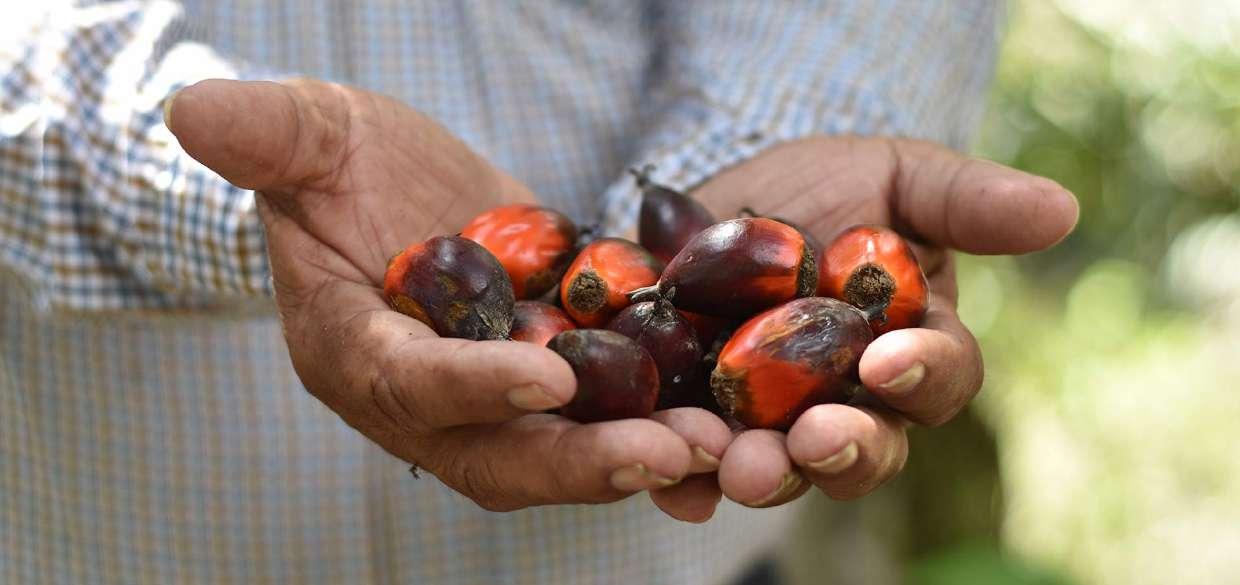
In 2017, the Nigeria Security and Civil Defence Corps (NCDSC) arrested some palm oil suppliers in Potiskum and Jos, Yobe and Plateau states, respectively, for allegedly adulterating palm oil with dye. Their arrests led to more revelations and the confiscation of samples, which after lab tests conducted by the National Agency for Food Drug Administration and Control (NAFDAC), showed traces of high acid, high saponification and high relative density. Then, the state’s coordinator of NAFDAC, Lawal Musa Dadingelma, confirmed that the adulterated palm oil samples tested contained dye, which is capable of causing cancer when deposited in human body.
Continuing, Olatujoye said: “You know in every business environment, there is always the dark side of it. The only thing we can do is to create more awareness among consumers and do more training for people to understand that when looking for high-grade palm oil, these are the parameters. “Firstly, one of the parameters is to look at the bottle, if it’s a pet bottle, once you shake it very well and allow it to settle, if it’s a good palm oil, it will have a free flow down without stains of residue on the body, but if it’s fake, you’ll see some patches on the bottle, showing that it’s actually a bad palm oil. So, we need to increase awareness, training and retraining of people and then get more information across to consumers for them to understand how to discover fake and good palm oil.”
While regretting the dwindling fortune of the industry over the years, Inyang blamed the Federal Government and the CBN for under-developing the industry. “Those of us that have seriously exposed our capitals, resources and dynamics to develop the sector are not being encouraged by policy makers, the CBN and the Federal Government, in making palm oil priority crop in the country. Whenever government gathers people, they gather them to talk about Malaysia and Indonesia they have forgotten that these countries developed their palm oil industries. There, palm oil is an economy but here, palm oil is for some village women industry, who process and sell in the market. So, the industry needs to be focused on by government. It is a tree crop. On January 2, 2023, Ghana launched the Tree Crop Development Authority (TCDA) promoted by government, but largely operated or implemented by the private sector. The TCDA is to cater for five tree crops Coconut, oil palm, shea butter, cashew nut and rubber. This came after the success of the Cocoa Development Authority”
In Nigeria, all the ones we have only takes care of food crops Rice Council Bill may be signed by the president before he leaves office. There’s Sugar Development Council Bill, we don’t really understand the importance of palm oil as a global market. It is a global economy, that is the backbone of the economy of Indonesia the largest economy in Southeast Asia, that is the backbone of the economy of Malaysia, another top economy, and they constitute the largest employers of labour in these countries. “You’ll be surprised to know that the two countries no longer lay much emphasis on palm oil they are now laying emphasis on palm Biomas the waste that comes out from the palm trees the palm fronts itself, the fibre, palm kernel shell, and many other parts of the palm tree that have been turned into commodities, because the palm tree is 90 per cent biomas and then 10 per cent palm oil.”
He lamented that while Nigerians are still talking about palm oil, those countries have moved on. “If you go to ministries, they behave as if they have planted one palm tree and will be talking about the commodities that have not been planted. They’ll organise themselves and go to Malaysia, the CBN will do the same thing and none of us the stakeholders are involved in what they are doing. “The CBN has never extended any funding assistance or development intervention to the oil palm sector, despite various representation and meetings with them. They seem to be comparing oil palm with rice, sorghum, cowpea and the rest of them, saying our gestation period is too high.
www.indopalmoil.com
45 COVER STORY
“We learnt that the Bankers Committee say they cannot leave their money outside for up to six to seven years. I am leading over 300 smallholder palm oil farmers and we have never seen any support from the CBN. As part of self-help, we have come up with one family, one palm tree initiative, to have something to take to the market; we need encouragement to achieve the desired success.”
On the way forward, Olatujoye said the country needs to double its efforts in converting idle forests to economic gains, such as developing more plantations and increase production and yield. “It’s an economic theory, once there is enough supply in the market, prices will filter around the capacity of the purchasing power of people. The only thing we can do is to ensure that we increase our production capacity.”
On his part, Inyang called for the establishment of National Oil Palm Development Council and a policy to drive the industry. “ Currently, we have been trying to meet with the Federal Ministry of Industry, Trade & Investment on developing a policy on this. So, we need the cooperation of government to get a policy direction to revive this industry.
“We are not saying don’t import, yes import, but place a levy, a surcharge of a minimum of 25 per cent on importation of palm oil and let that money be channelled to us to use to develop at least 250,000 hectares of oil palm, so that the money will be ploughed back into backward integration.”

Okafor said the fortune of the industry is dependent on investment. “Are we investing in oil palm production development? The country’s palm oil farming is still dominated by smallholder farmers, what are they getting to develop what they are doing? They can’t get loans to replant their ageing farms, they can’t get microfinance loan for maintenance, both for new establishment, and replanting, most of them have huge challenges because no bank is willing to give loan of 18 years. “When your bank manager doesn’t even want to give a loan of five years; so, there has to be a deliberate effort from the government to develop the sector, by providing incentives to smallholder farmers to replant and of course when they replant the yield will increase, production will increase. “Two, I have been talking about yield increase and production increase, what about the processing to get the CPO. Our farmers are still using old mills that are giving them less than 10 per cent of oil and the rest is wasted. So, it’s an issue of investment. It’s not a question of price increase; it’s a matter in which the market forces will continue to apply,” he said.
A former Chairman of Agriculture, Lagos State Chamber of Commerce and Industry (LCCI), Prince Wale Oyekoya, advised the government at all levels to assist farmers and stakeholders by providing an enabling environment with better infrastructure. “With our exploding population, we need to go into mechanised farming, else, we will keep on deceiving ourselves that all is well, when it’s not. “More research institutes with better funding will increase our production. More farmlands to the farmers will increase our production backed by modern tools and bulldozers to clear the land.”
Palm Oil Today Indonesia July - September 2023 www.indopalmoil.com
46 COVER STORY
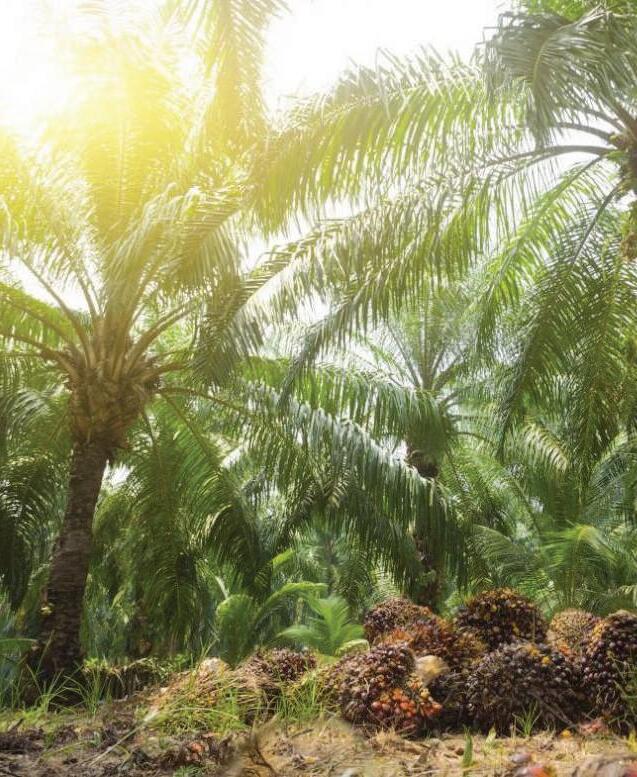






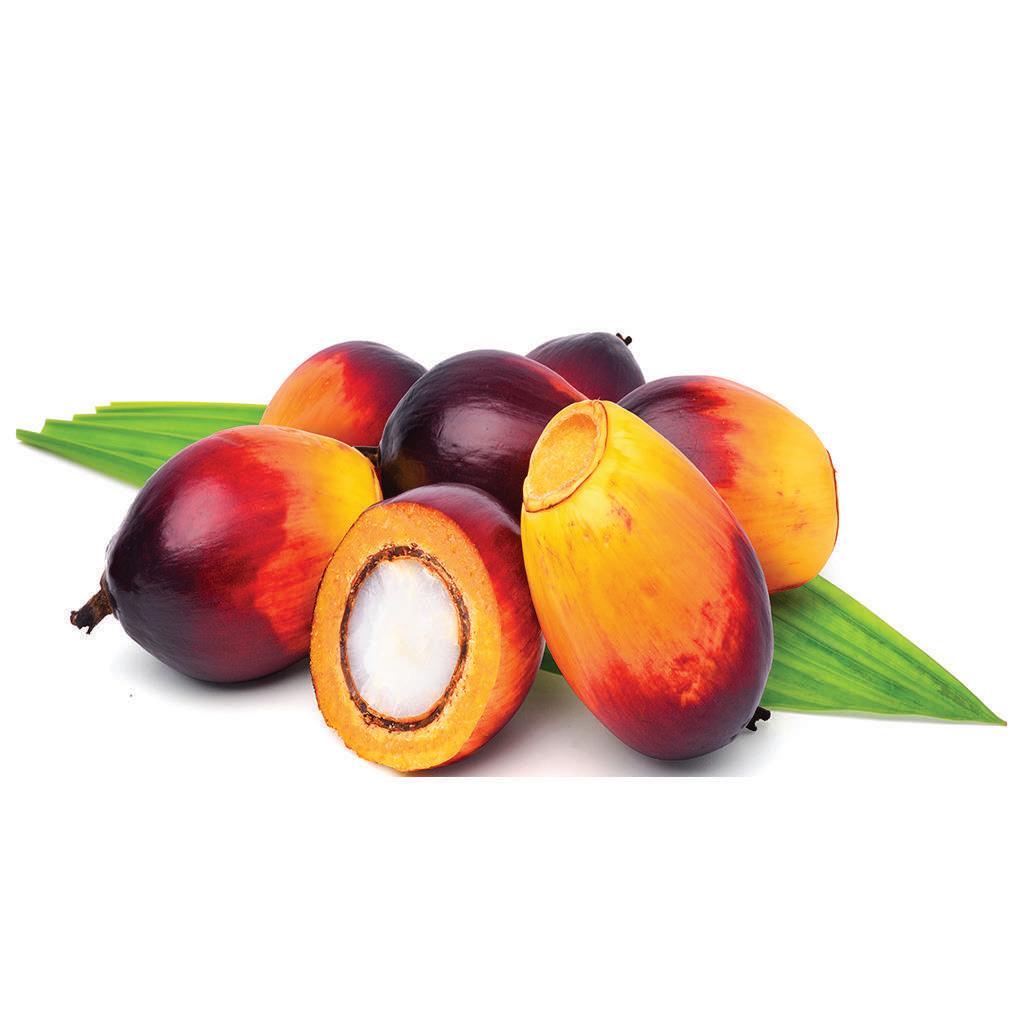
SCAN QR CODE Asia Palm Oil Magazine JuzTalk Thailand OFFICIAL MEDIA : CONFERENCE BY : Fireworks Media (Thailand) Co., Ltd. Part of The Fireworks Trade Media Group ORGANIZED BY : ENDORSED BY : Thai Palm Oil Refinery Association Thai Palm Oil Crushing Mill Association Asia Palm Oil Technology Association Thai Biodiesel Producer Association Thai Oil Palm & Palm Oil Association HOSTED BY Contact us : Tel: (+66) 2 513 1418 | Email: thai@asiafireworks.com THAILAND’S LARGEST PALM OIL TECHNOLOGY EVENT! 17-18 AUGUST 2023 CO-OP EXHIBITION CENTRE, SURATTHANI, THAILAND www.thaipalmoil.com www.palmoil-conference.com
Dabeeo telah menandatangani nota kesepahaman (MOU) untuk memantau perkebunan kelapa sawit di Malaysia
- Dabeeo memasuki pasar analisis tanaman dengan mengembangkan penggunaan gambar satelit
- Berencana untuk bekerjasama dengan perkebunan di Malaysia untuk mengelola pohon kelapa sawit dan meningkatkan produktivitas minyak kelapa sawit
Seoul, Korea Selatan (ANTARA/Business Wire) - Dabeeo Inc., sebuah perusahaan teknologi informasi geospasial berbasis kecerdasan buatan (AI), telah memutuskan untuk memperluas penggunaan gambar satelit dalam analisis tanaman, sebagai langkah awal masuk ke pasar ini. Perusahaan berencana untuk bekerjasama dengan perkebunan di Malaysia guna mengelola pohon kelapa sawit dan meningkatkan produktivitas minyak kelapa sawit.
Dabeeo telah menandatangani nota kesepahaman (MOU) dengan perusahaan GIS Malaysia, Saba Legend, pada tanggal 28 April 2023. Kolaborasi ini bertujuan untuk memantau secara berkala kondisi kesehatan pohon dan secara cepat mengidentifikasi pohon kelapa sawit yang kekurangan nutrisi melalui pemanfaatan teknologi AI yang dimiliki oleh Dabeeo.

Perkebunan kelapa sawit yang akan bekerjasama dengan Saba Legend memiliki luas sekitar 300km2, setara dengan sekitar 42.000 lapangan sepak bola. Dabeeo dan Saba Legend akan bersama-sama mencari peluang untuk meningkatkan efisiensi pengelolaan perkebunan skala besar dengan menggunakan teknologi AI dari Dabeeo. Tujuan utamanya adalah untuk meningkatkan produktivitas minyak kelapa sawit dan mengurangi biaya dan waktu yang diperlukan dalam pengelolaan perkebunan tersebut.
Dabeeo sebelumnya telah melakukan analisis pada beberapa area perkebunan dengan menggunakan band khusus (Red-NIR) dari gambar satelit untuk mendapatkan NDVI (Normalized Difference Vegetation Index), sebuah indikator representatif dari kondisi vegetasi.
Berdasarkan pengalaman ini, Dabeeo bertujuan untuk menggunakan teknologi analisis AI-nya dalam kolaborasi di masa depan untuk menganalisis indeks vegetasi pohon kelapa sawit berdasarkan gambar satelit berkepresisian ultra-tinggi pada tingkat 30 sentimeter dengan interval teratur, memvisualisasikan data terkait, dan mengirimkannya ke perkebunan, untuk membantu operasional perkebunan kelapa sawit.
Mohamed Ishaber Hassan, CEO Saba Legend, mengatakan, “Mengelola dan memantau perkebunan kelapa sawit skala besar membutuhkan banyak tenaga kerja dan waktu. Kami sangat optimis dengan kerja sama bersama Dabeeo, terutama karena Sabah adalah negara bagian di Malaysia yang 68% wilayahnya ditutupi hutan. Pengelolaan yang efisien dengan menggunakan teknologi Dabeeo dan gambar satelit akan sangat membantu dalam pengelolaan produktivitas minyak kelapa sawit. Kami berharap ini juga dapat membuka pembicaraan lebih lanjut tentang pasar karbon.”
Dalam acara penandatanganan MOU, Wakil Presiden Dabeeo, Victor Choi, berkomentar, “Teknologi AI Dabeeo dapat mengungkapkan potensinya sepenuhnya saat menggunakan gambar satelit dengan berbagai cara, seperti mengidentifikasi jenis pohon yang berbeda di Saba. Melalui kesepakatan ini, kami berharap dapat menciptakan kasus yang baik di mana teknologi Dabeeo berhasil digunakan dalam bidang lingkungan vegetasi.”
Palm Oil Today Indonesia July - September 2023 www.indopalmoil.com 48 INNOVATIONS & TECHNOLOGY
Dabeeo Signs MOU for Monitoring Palm Oil Plantation in Malaysia
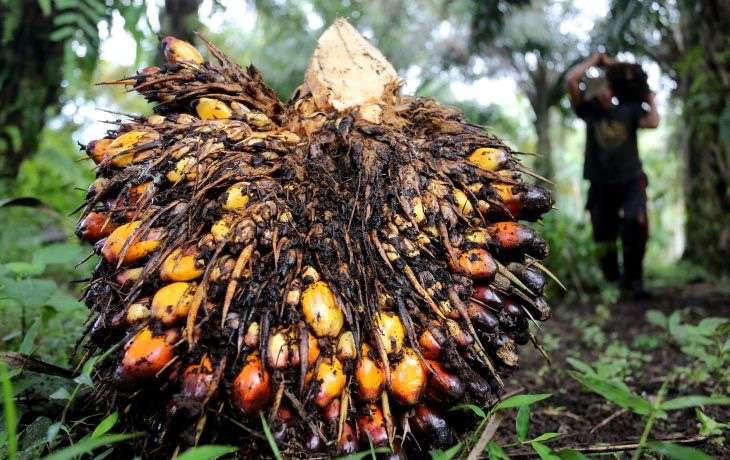
Seoul, South Korea (ANTARA/Business Wire) - Dabeeo Inc., a geospatial information technology company based on AI, has announced its plan to introduce AI analysis technology using ultra-precision (30cm-level) satellite images to monitor palm tree plantations in Malaysia.
Dabeeo concluded a memorandum of understanding (MOU) with Saba Legend, a Malaysian GIS company, on April 28, 2023, with the aim of periodically monitoring the health of trees and promptly identifying undernourished palm trees through technical collaboration.
The palm oil plantation that has corporated with Saba Legend covers an area of about 300km2, the size of about 42,000 football fields. The two companies will jointly seek opportunities to explore precision farming in order to save the time and cost spent for managing a large-scale farm by leveraging Dabeeo’s AI technology.
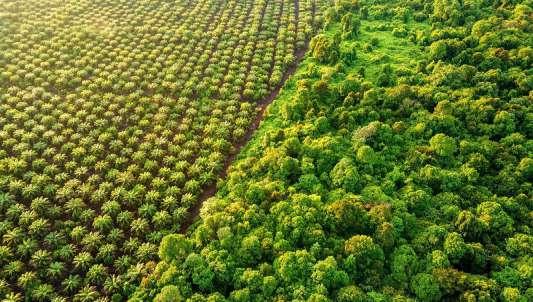
Dabeeo previously conducted an analysis of certain plantation areas by using a specific band (Red-NIR) of satellite images to derive NDVI (Normalized Difference Vegetation Index), a representative indicator of vegetation status.
Based on this experience, Dabeeo aims to use its AI analysis technology in future collaboration to analyze the vegetation indices of palm trees based on 30 centimeter level ultra-precise satellite images at regular intervals, visualize the related data, and deliver it to the farm, contributing to the operations of palm oil plantations.
Mohamed Ishaber Hassan, CEO of Saba Legend, said, “Managing and monitoring a large palm oil farm requires a great amount of labor and time. We are very optimistic with Dabeeo corporations, given that Sabah is a land mass state in Malaysia where 68% is covered with forest. The efficient management using Dabeeo’s technology and satellite images will be highly conducive to the management of palm oil productivity. We hope that it can also lead to further discussions for the carbon markets.”
At the MOU ceremony, Dabeeo’s Vice President Victor Choi commented, “Dabeeo’s AI technology can realize its full potential when using satellite images in various manners, such as identifying different types of trees in Saba. Through this agreement, we hope to establish a good case in which Dabeeo’s technology is successfully used in the vegetation environment field.”
Palm Oil Today Indonesia July - September 2023 www.indopalmoil.com 49 INNOVATIONS & TECHNOLOGY
- Dabeeo sets its foot onto the crop analysis market by diversifying the use of satellite images
- Plans to collaborate with Malaysian plantations to manage palm trees and increase palm oil productivity
PEMERINTAH DUKUNG TEKNOLOGI PENGOLAHAN SAWIT, PENGEMBANGAN SDM
GOVT SUPPORTING PALM PROCESSING TECHNOLOGY, HR DEVELOPMENT
Jakarta (ANTARA) - Pemerintah Indonesia mendukung pengembangan teknologi dan sumber daya manusia di pabrik pengolahan kelapa sawit.
Selama seratus tahun, teknologi pengolahan kelapa sawit tidak mengalami perubahan, dan fokus utamanya adalah produksi lemak, demikian yang diungkapkan oleh Direktur Jenderal Industri Agro Kementerian Perindustrian, Putu Juli Ardika, dalam pernyataan tertulis yang diterima di sini pada hari Rabu. “Sekarang, kondisinya berubah. (Pengolahan kelapa sawit) tidak lagi hanya untuk makanan, tetapi juga untuk bahan bakar di masa depan, baik itu untuk biodiesel hijau, bahan bakar jet hijau, bensin hijau, yang dapat segera diadopsi untuk menggantikan bahan bakar berbasis fosil,” katanya. Generasi masa depan akan hidup di dunia yang sangat didukung oleh bahan bakar yang dihasilkan dari kelapa sawit, seperti biofuel, biopolimer, dan biomassa oleh karena itu, Kementerian Perindustrian sangat mendukung pengembangan teknologi pengolahan kelapa sawit, katanya.

Salah satu bentuk dukungan tersebut melibatkan perubahan Peraturan Pemerintah Nomor 1 tentang devisa ekspor, jelasnya. Peraturan tersebut menyatakan bahwa devisa harus tersedia di Indonesia dalam jangka waktu tertentu agar dapat digunakan untuk pengembangan teknologi dan komersialisasi. Ardika juga menyebutkan dukungan lainnya, termasuk pembentukan Standar Nasional Indonesia (SNI) untuk minyak kelapa sawit mentah dan minyak goreng kelapa sawit. Untuk mengembangkan industri apapun, sumber daya manusia yang kompeten diperlukan, tambahnya. Untuk memastikan hal ini, kementerian telah mengeluarkan Standar Kompetensi Kerja Nasional untuk industri seperti minyak kelapa sawit mentah (CPO), minyak goreng kelapa sawit, oleokimia, dan biodiesel. Standar tersebut mencakup keahlian mulai dari aspek operasional hingga manajemen. Institusi pendidikan di bawah kementerian telah mendapatkan akreditasi untuk mengeluarkan sertifikasi standar kerja profesional.
Kementerian telah meminta Badan Pengelola Dana Perkebunan Kelapa Sawit Nasional (BPDPKS) untuk mengalokasikan dana beasiswa bagi mahasiswa yang mengikuti institusi pendidikan kementerian tersebut guna memenuhi permintaan seribu pekerja setiap tahun di industri pengolahan kelapa sawit. Seorang anggota penelitian dan pengembangan di BPDPKS, Jenny Elisabeth, menekankan perlunya perusahaan pengolahan kelapa sawit untuk menghasilkan minyak kelapa sawit mentah yang memenuhi standar kualitas guna memastikan daya saing industri. Pernyataan tersebut disampaikannya saat acara “Technology & Talent Palm Oil Conference and Exhibition” yang diselenggarakan oleh Asosiasi Nasional Profesional dan Praktisi Perkebunan pada hari Selasa (7 Maret 2023). “Demand pasar yang terus meningkat terhadap kualitas produk olahan harus dipenuhi oleh perusahaan pengolahan kelapa sawit dengan menghasilkan CPO berkualitas tinggi. Mulai dari perkebunan, pengolahan kelapa sawit, hingga transportasi CPO, semuanya harus dijaga (kualitas yang baik),” ujarnya.

Jakarta (ANTARA) - The Indonesian Government is supporting the development of technology and human resources at palm processing factories.
For as long as one hundred years, the palm processing technology has remained unchanged, and it has mainly focused on fat production, Director General of Agro Industry at the Industry Ministry Putu Juli Ardika highlighted in a written statement received here on Wednesday. “Now, the condition has changed. (Palm processing) is no longer only for food, but also for fuel in the future, whether it is for green biodiesel, green jet fuel, green gasoline, which can be adopted right away to replace fossil-based fuel,” he informed. The future generation will live in a world that is greatly powered by fuel generated from palm, such as biofuel, biopolymer, and biomass therefore, the Industry Ministry is showing great support for the development of palm processing technology, he said.
One such support has involved the amendment of Government Regulation Number 1 on export foreign exchange, he pointed out. The regulation states that foreign exchange must be available in Indonesia within a certain period of time so that it can be used for technological development and commercialization. Ardika also outlined other supports, including the establishment of the National Standards (SNI) for crude palm oil and palm cooking oil. To develop any industry, competent human resources are necessary, he added. To ensure this, the ministry has issued the National Competency Standard of Work for industries such as crude palm oil (CPO), palm cooking oil, oleochemical, and biodiesel. The standard covers expertise ranging from operational to management aspects. Educational institutions under the ministry have been accredited for issuing certification for the professional work standard.
The ministry has requested the National Palm Oil Plantation Fund Management Agency (BPDPKS) to allocate scholarship funding for students attending the ministry’s educational institutions to meet the demand for one thousand workers each year in the palm processing industry. A member of research and development at BPDPKS, Jenny Elisabeth, highlighted the need for palm processing companies to produce crude palm oil that meets the quality standards in order to ensure the competitiveness of the industry. She delivered the statement during the “Technology & Talent Palm Oil Conference and Exhibition” hosted by the National Association of Plantation Professionals and Practitioners on Tuesday (March 7, 2023). “Ever-growing market demand for the quality of processed items must be met by palm processing companies by producing high-quality CPO. From the plantation, palm processing, and CPO transport, all (good quality) must be maintained,” she said.
Palm Oil Today Indonesia July - September 2023 www.indopalmoil.com 50 INNOVATIONS & TECHNOLOGY
TEKNOLOGI AI DALAM PRODUKSI MINYAK SAWIT DISIAPKAN UNTUK BERKEMBANG
AI TECH FOR PALM OIL PRODUCTION SET TO GROW
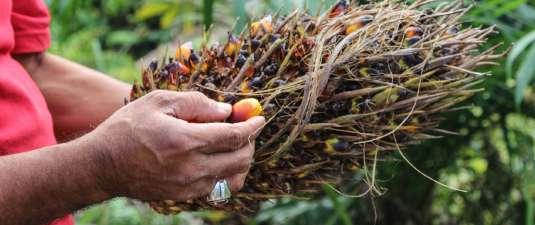
Sebuah solusi teknologi pertanian yang mengubah perkebunan kelapa sawit dengan pertanian presisi berhasil mengumpulkan dana sebesar £250.000. Putaran pendanaan pra-benih untuk Permia Sensing, sebuah perusahaan spinout dari Imperial College, dipimpin oleh perusahaan modal ventura yang berfokus pada tahap awal, Jenson Funding Partners. Dana yang terkumpul akan digunakan untuk melanjutkan misi Permia Sensing dalam mengubah cara pengelolaan perkebunan kelapa sawit melalui penggunaan teknologi pemantauan dan robotika.
Perkebunan kelapa sawit memainkan peran penting dalam pertanian global karena mereka menghasilkan minyak, kelapa, dan kurma. Minyak kelapa sawit sendiri dapat ditemukan dalam sekitar 50% semua produk kemasan di Amerika Serikat saja, termasuk kosmetik, pakaian, furnitur, dan lainnya. Kelapa sawit merupakan tanaman yang lebih efisien dibandingkan tanaman lain karena hanya membutuhkan sebagian kecil lahan dibandingkan dengan tanaman lainnya. Misalnya, kelapa sawit menghasilkan 40% dari total produksi minyak nabati dengan hanya menggunakan 6% dari lahan. Namun, karena faktor seperti kekurangan nutrisi, kekeringan, atau penyakit, perkebunan kelapa sawit rata-rata hanya menghasilkan setengah dari potensi hasilnya.
Sensor akustik Permia Sensing dirancang khusus untuk mendeteksi kumbang kelapa merah, hama berbahaya bagi pohon kelapa yang diketahui merusak sekitar 10% hasil kelapa secara global. Sensor akustik ini, yang memiliki akurasi 97%, juga memantau kesehatan pohon untuk hal-hal seperti kadar nutrisi dan irigasi. Data sensor ini dapat digunakan bersamaan dengan citra dan platform AI Permia Sensing untuk membantu petani menganalisis data tingkat pohon di seluruh perkebunan kelapa sawit dan memberikan saran untuk meningkatkan hasil panen. Perusahaan saat ini sedang mencoba solusinya di perkebunan korporat di Sri Lanka. Minyak kelapa sawit telah menghadapi kritik dari kelompok lingkungan karena menjadi pendorong deforestasi di beberapa hutan paling beragam hayati di dunia, tetapi perusahaan ini mengatakan bahwa mereka membantu memecahkan masalah ini. Selain membuat pertanian kelapa sawit lebih efisien dan memungkinkan penggunaan lahan yang lebih sedikit, Permia Sensing juga menyediakan pendekatan yang lebih ramah lingkungan untuk mengatasi hama seperti kumbang kelapa merah. Dengan upaya pertanian presisi yang berfokus pada keberlanjutan dan net-zero, Permia Sensing sejalan dengan Tujuan Pembangunan Berkelanjutan PBB, demikian pernyataan perusahaan. “Banyak penelitian telah menunjukkan bahwa kita belum bekerja pada perkebunan kelapa sawit dengan cara yang paling efektif, terutama ketika kita mempertimbangkan seberapa besar kelapa sawit yang diperlukan untuk penggunaan global,” kata Efrem de Paiva, CEO Permia Sensing. “Dengan teknologi Permia, kami berharap dapat membantu petani di seluruh dunia menghasilkan hasil yang paling berkelanjutan dari pohon-pohon yang sehat. Dengan meminimalkan beberapa input yang diperlukan, kami dapat mengurangi emisi CO2, tak terkecuali dampak sosial dari menghasilkan lebih banyak pendapatan dalam rantai pasok.”
Sarah Barber, CEO Jenson Funding Partners, menambahkan:
“Dengan kelapa sawit yang sangat banyak digunakan dalam produk di seluruh dunia, penting bagi petani untuk memiliki akses ke alat yang diperlukan untuk menghasilkan hasil yang paling tinggi. “Permia adalah solusi yang serba guna, memberikan wawasan tentang sumber daya dan panen kelapa sawit, serta data untuk mendukung kesehatan pohon, hasil yang lebih tinggi, dan dampak lingkungan. Data ini tidak hanya berguna bagi petani, tetapi juga perkebunan kelapa sawit di masa depan.”
An agricultural tech solution transforming palm plantations with precision farming has secured £250,000. The pre-seed round of funding into Permia Sensing, an Imperial College spinout, has been led by early-stage focused venture capital firm Jenson Funding Partners. The funding will be used to continue its mission to change the way palm plantations are managed via the use of monitoring technologies and robotics.
Palm plantations play a significant role in global agriculture as they produce oil, coconuts, and dates. Palm oil itself can be found in approximately 50% of all packaged goods in the US alone, including cosmetics, clothing, furniture, and more. Palm is a more efficient crop than others as it requires the use of a fraction of the land that other crops utilise. For example, palm produces 40% of total vegetable oil output while using only 6% of the land. But due to factors such as lack of nutrients, drought or disease, palm plantations on average produce just half of their potential yield.
Permia Sensing’s acoustic sensor was designed primarily to detect red palm weevil, a harmful pest for coconut palm trees that is known to damage an estimated 10% of the coconut yield globally. The acoustic sensor, which has 97% accuracy, also monitors tree health for the likes of nutrient and irrigation levels. The sensor data can then be utilised alongside imagery and Permia Sensing’s AI-powered platform to help growers analyse tree-level data across an entire palm plantation and suggest ways to improve yields. The company is currently piloting its solutions in corporate plantations in Sri Lanka. Palm oil has faced criticism from environmental groups due to it being a driver of deforestation of some of the world’s most biodiverse forests, but the company says it is helping to solve this problem. Along with its solution making palm farming more efficient, thus enabling the usage of less land, it also provides a less toxic approach to getting rid of pests such as the red palm weevil. With these sustainability and net-zero focused precision farming efforts, Permia Sensing is aligned with the UN’s Sustainable Development Goals, it says. “Much research has shown us that we are not working palm plantations in the most effective way possible, particularly when we consider just how much palm is required for global use,” said Efrem de Paiva, CEO of Permia Sensing. “With Permia’s technology, we hope to help farmers globally generate the most sustainable yield from the healthiest trees. By minimising some required input we can reduce CO2 emissions, not to mention the social impact of generating more income within the supply chain.”
Sarah Barber, CEO of Jenson Funding Partners, added: “With palm being so prominent in products across the globe, it’s important farmers have access to tools required to generate the highest yield. “Permia is a solution that is multifaceted, providing insights on resources and palm harvest, as well as data to support tree health, higher yields and environmental impact. This data is not only useful for farmers, but future palm plantations.”
Palm Oil Today Indonesia July - September 2023 www.indopalmoil.com 51 INNOVATIONS & TECHNOLOGY
ADVERTISERS’ INDEX


PALM OIL TODAY INDONESIA

INSIDE FRONT COVER YKL Group www.yklgroup.com.my
PAGE 5
Monash University Malaysia www.monash.edu.my/mipo
PAGE 39
JJ-Lurgi Engineering Sdn Bhd www.jj-lurgi.com
PAGE 1
Nee Soon Teknik Sdn Bhd www.neesoonteknik.com.my
PAGE 13
PMT Industries Sdn Bhd www.pmt-grp.com
PAGE 3
Jasa Aman Engineering Sdn Bhd www.jasaaman.com
PAGE 26-27
Muar Ban Lee Group Berhad www.mbl.com
INSIDE BACK COVER PT ABB Sakti Industri www.new.abb.com/id
BACK COVER PT Altrak 1978 www.altrak1978.co.id
INDONESIA ADDRESS :

Jakarta :
Batam :
Komplek Kota Baru Bandar Kemayoran Blok D No. 308, Jakarta Utara 14410
Gedung AMP (Lantai 2, Ruang G)
Jl. Raja H. Fisabilillah No.5, Kel. Teluk Tering, Kec. Batam Kota, Batam, Kepulauan Riau 29444, Indonesia
TO A DVERTISE OR
O
PLEASE CONTA CT US
T
SUBSCRIBE,
c/o PT . Fi reworks Indonesia
BUSINESS INFORMATION
INDONESIA
fireworks business information Indonesia
FIREWORKS
(FBI)
www.indopalmoil.com indo@asiafbi.com
+62 778 4173 552 - Office +62 812 7562 8281 - Whatsapp Hotline
A plant that connects to everything.
Talk to us.
Are you thinking about digitalization but don’t know where to start? Our comprehensive portfolio and consultative approach runs from power management to palletizing, and from automation to digitalization. So whether you need to start collecting data or analyze complete processes, we have the answer. Discover the possibilities at new.abb.com/food-beverage

—





























































































































































































































































